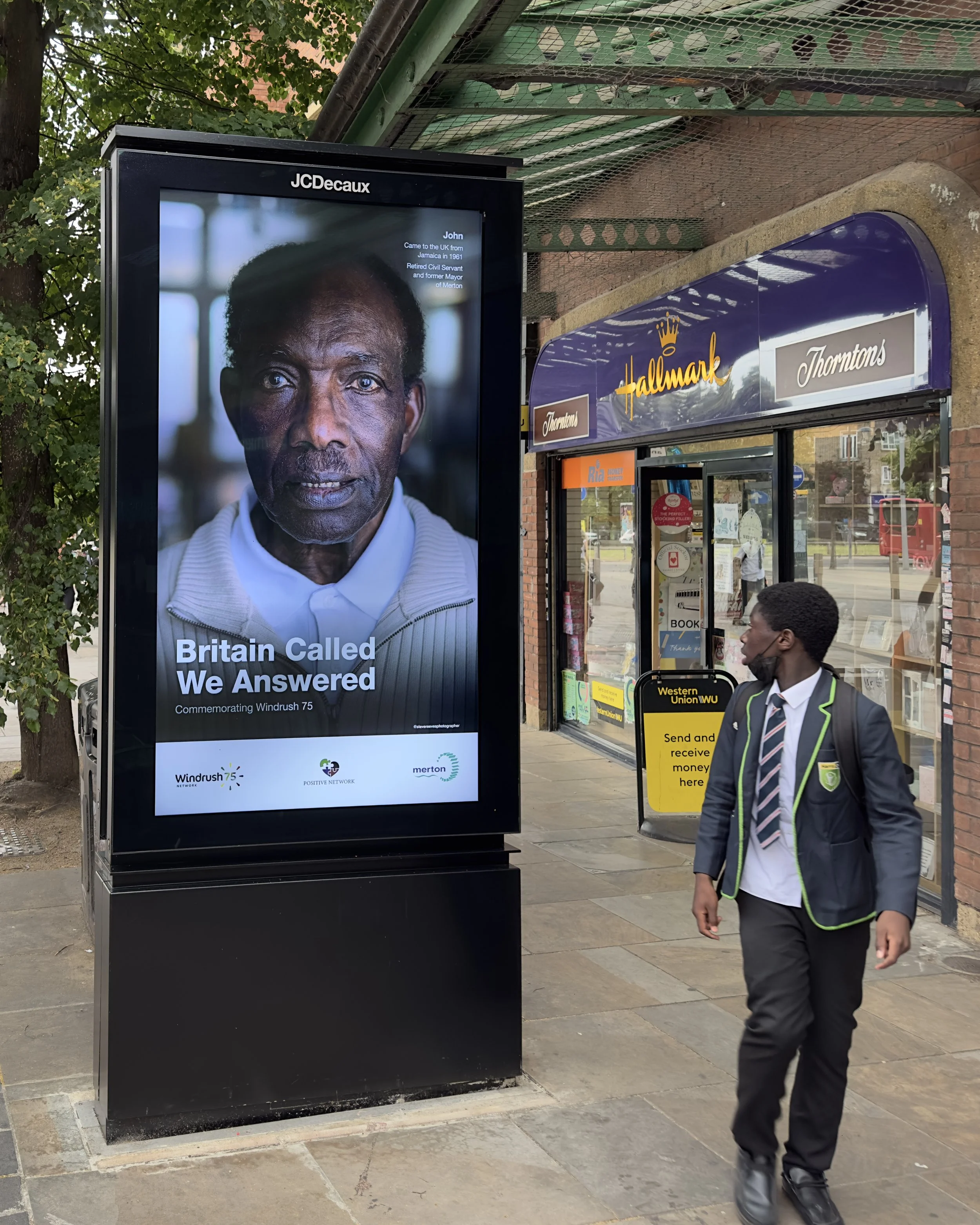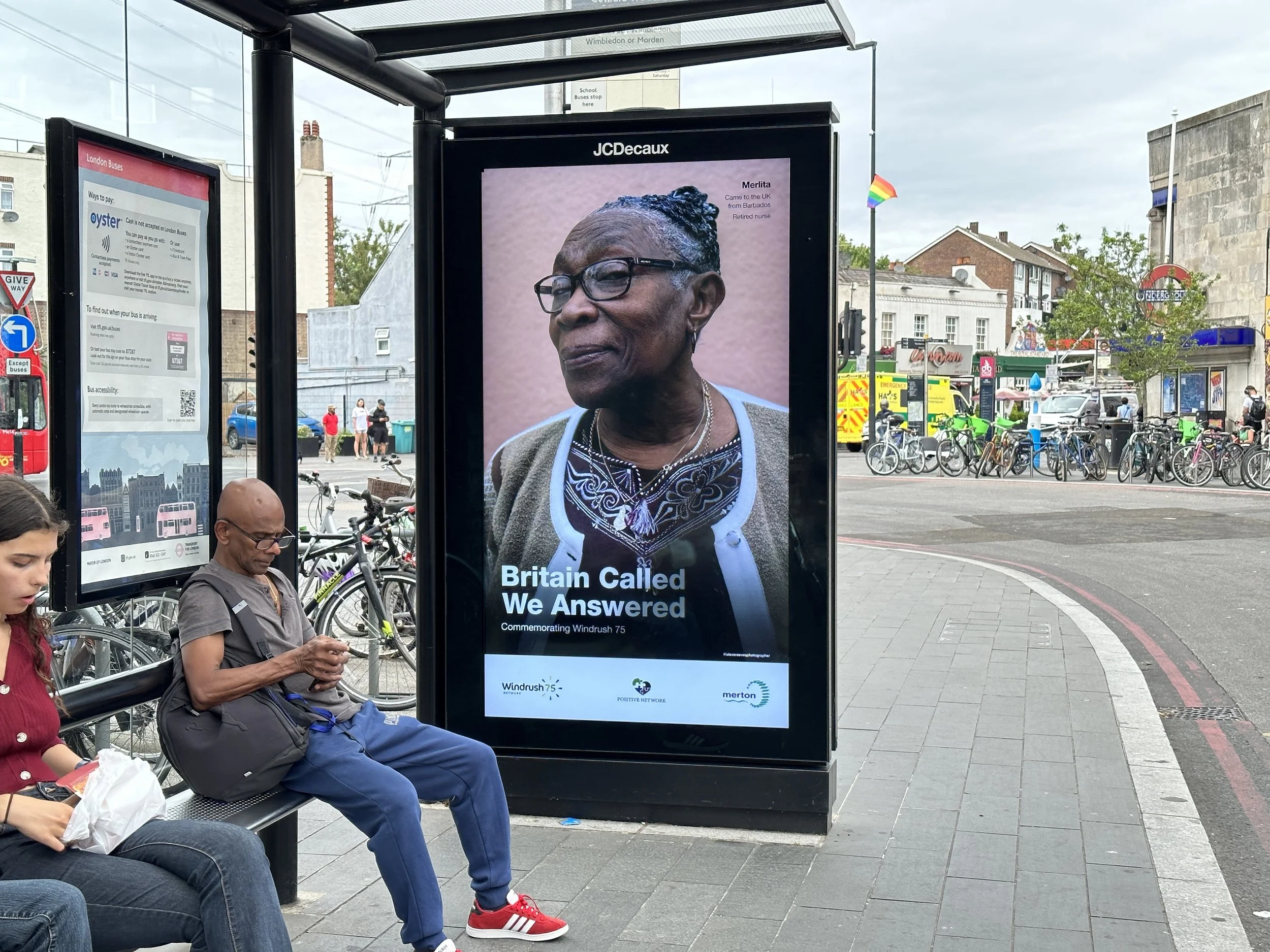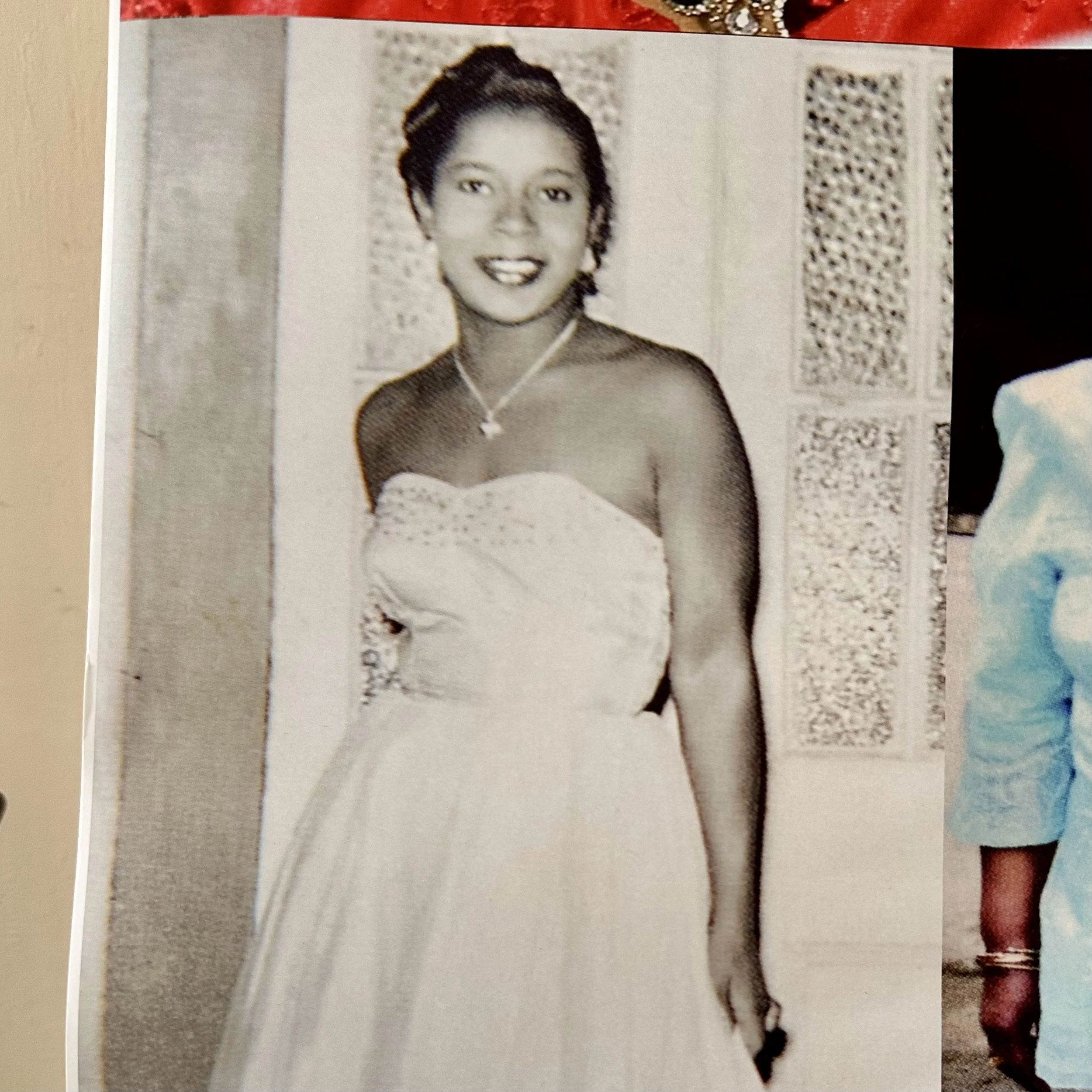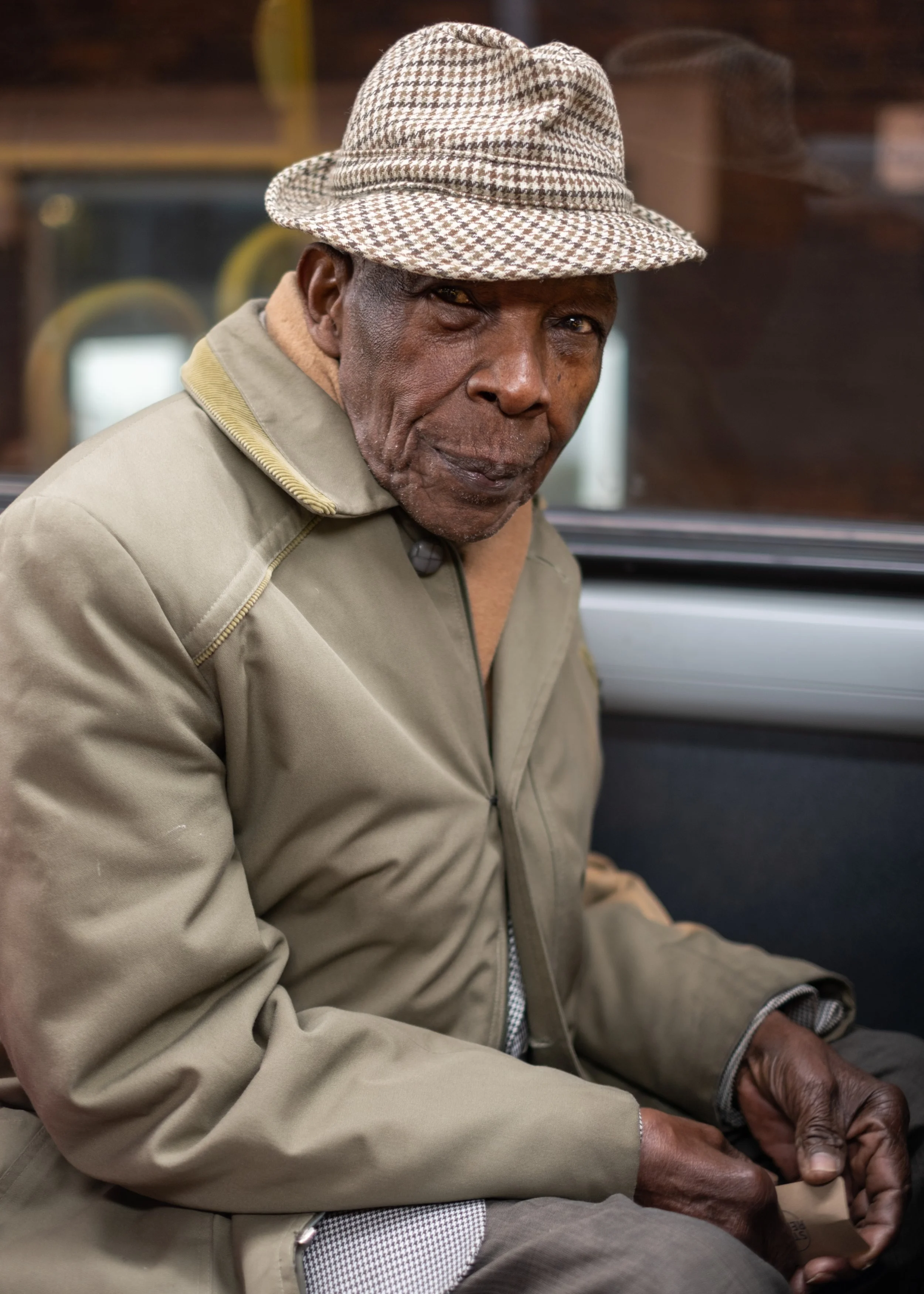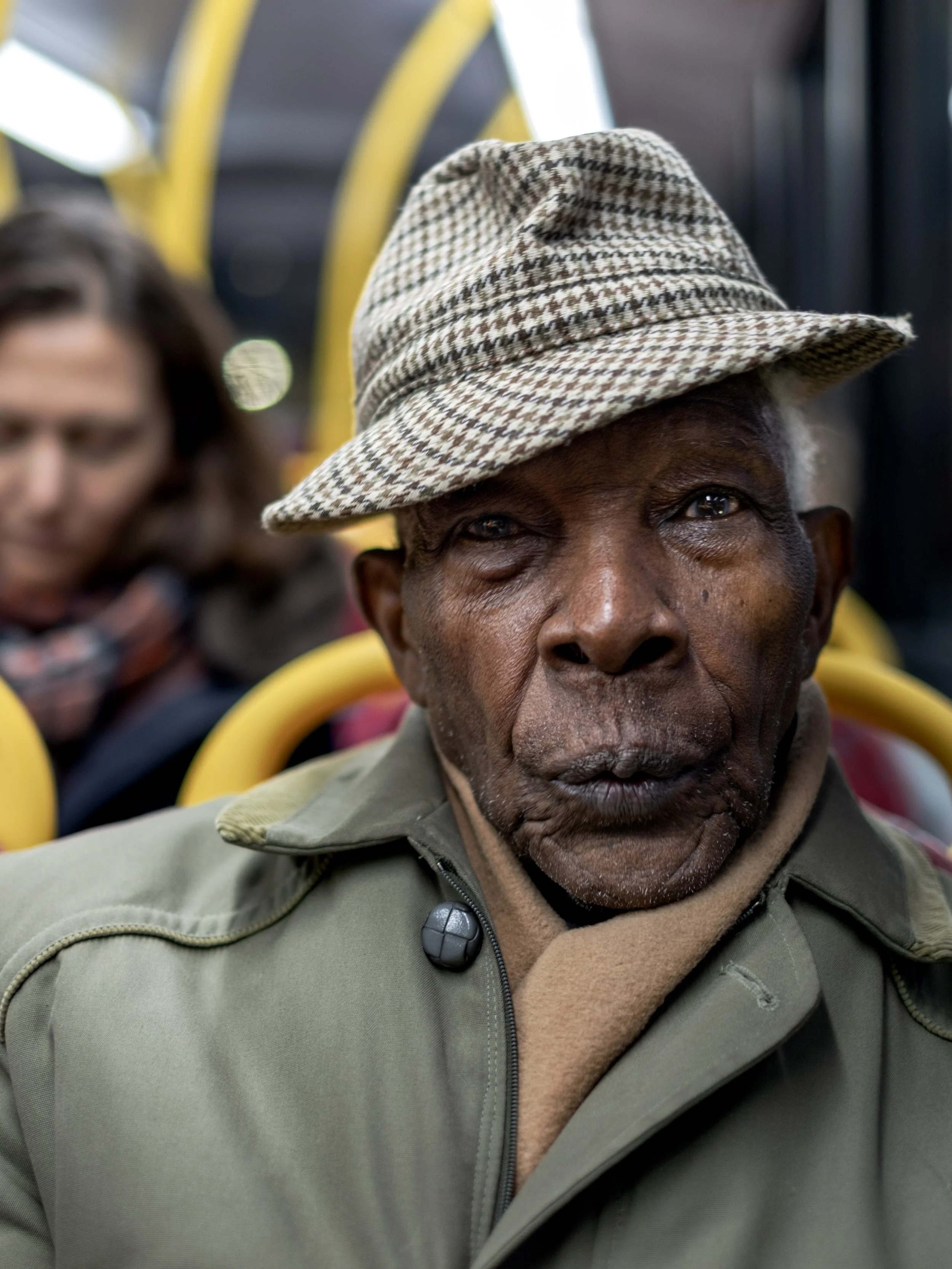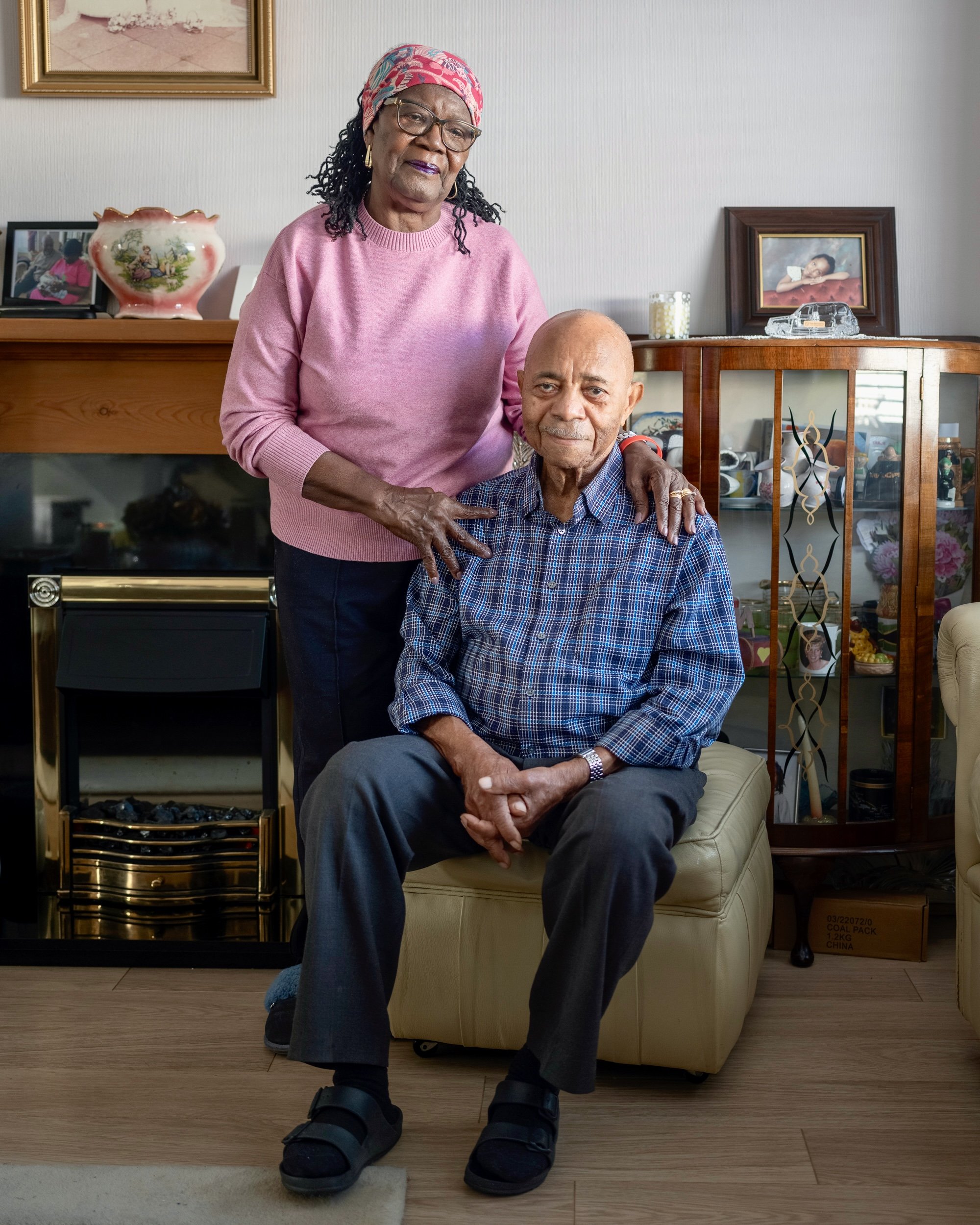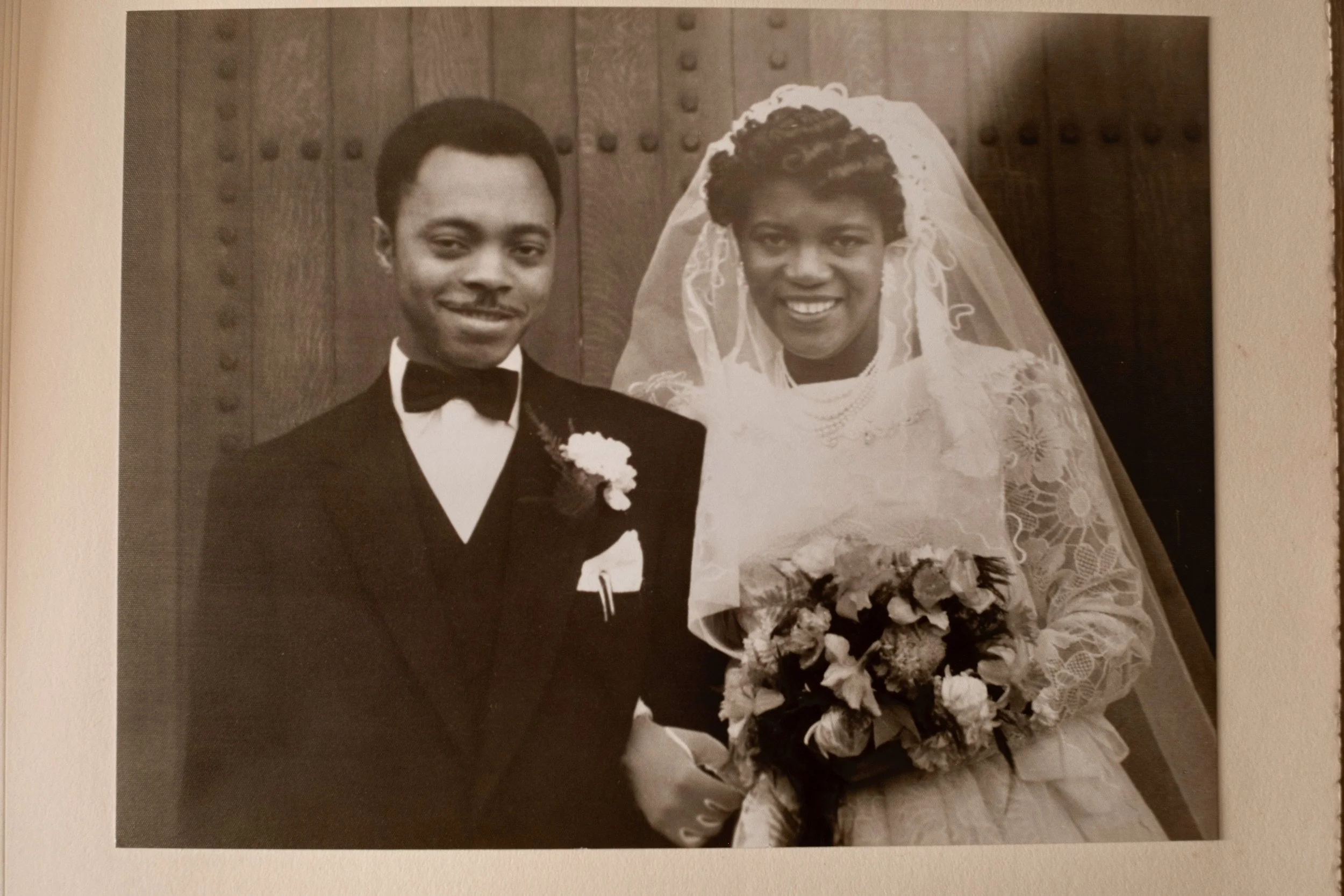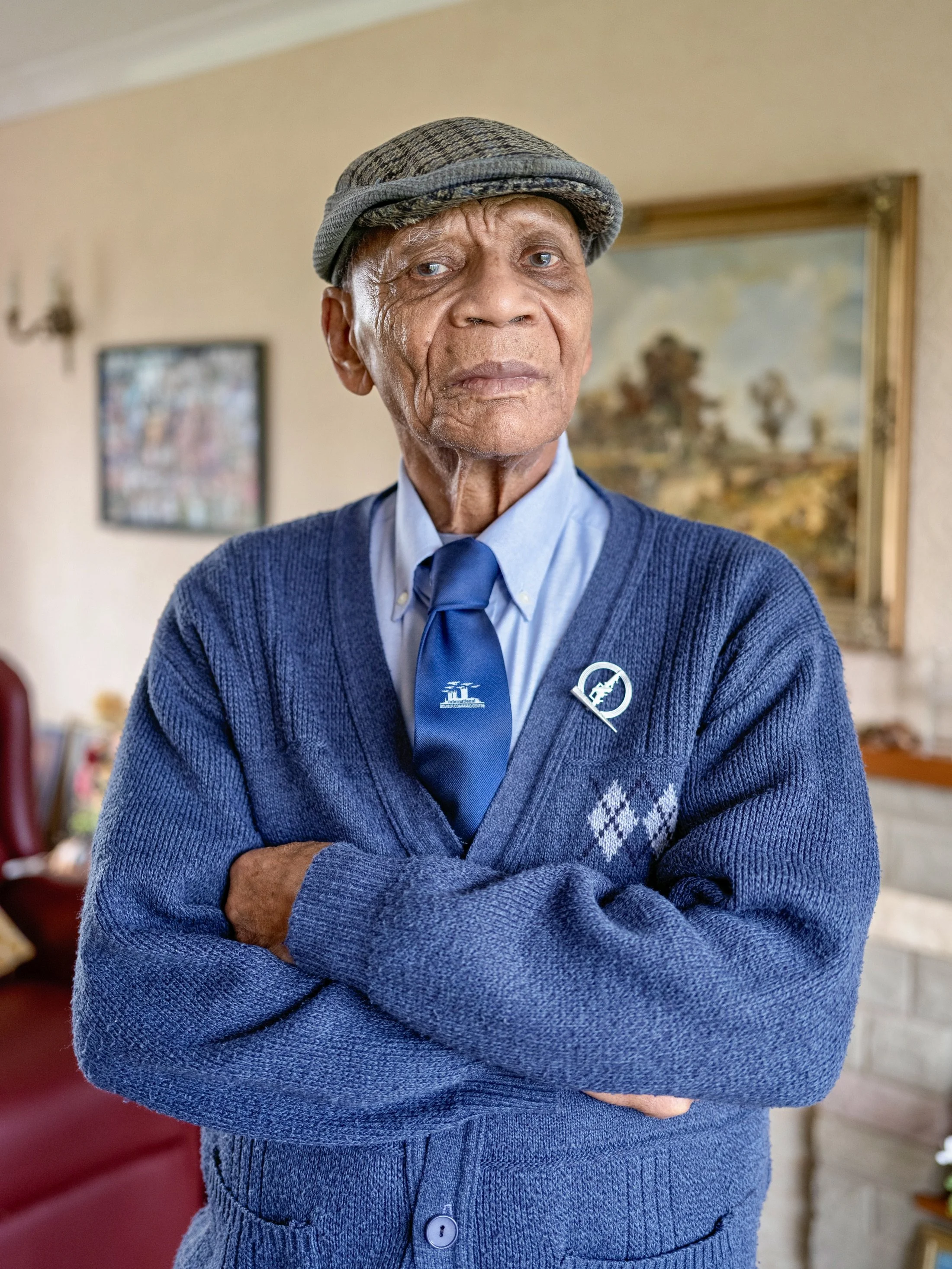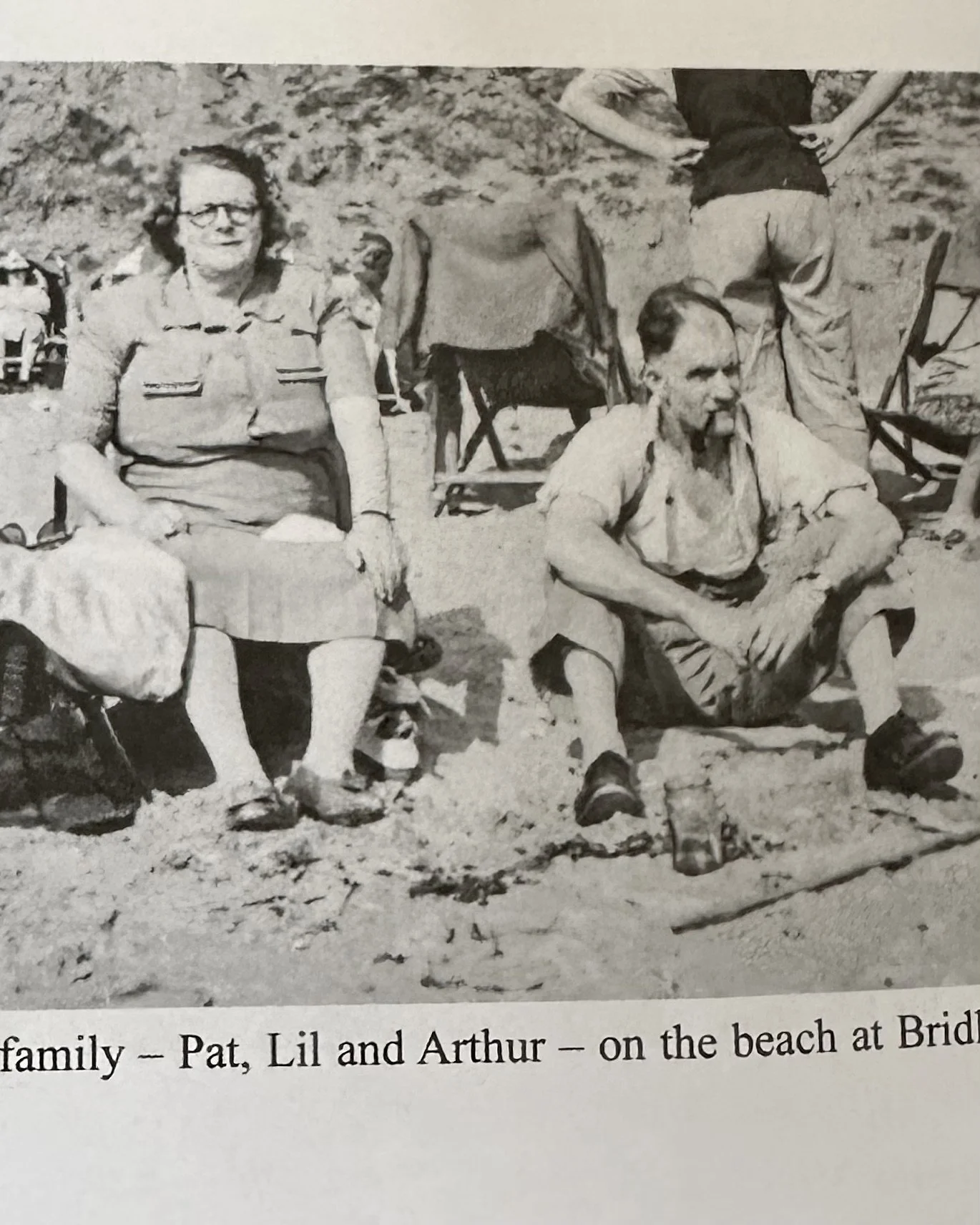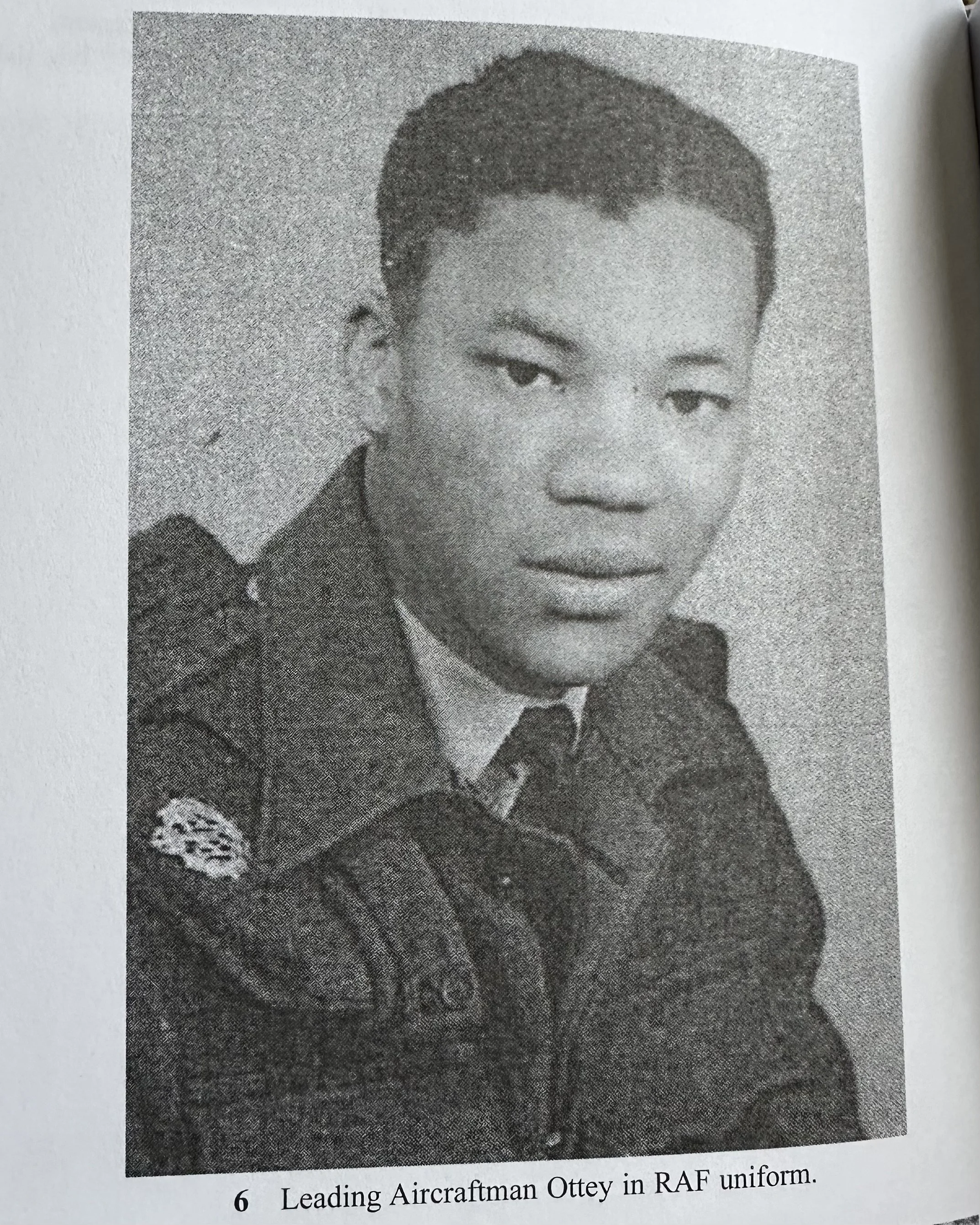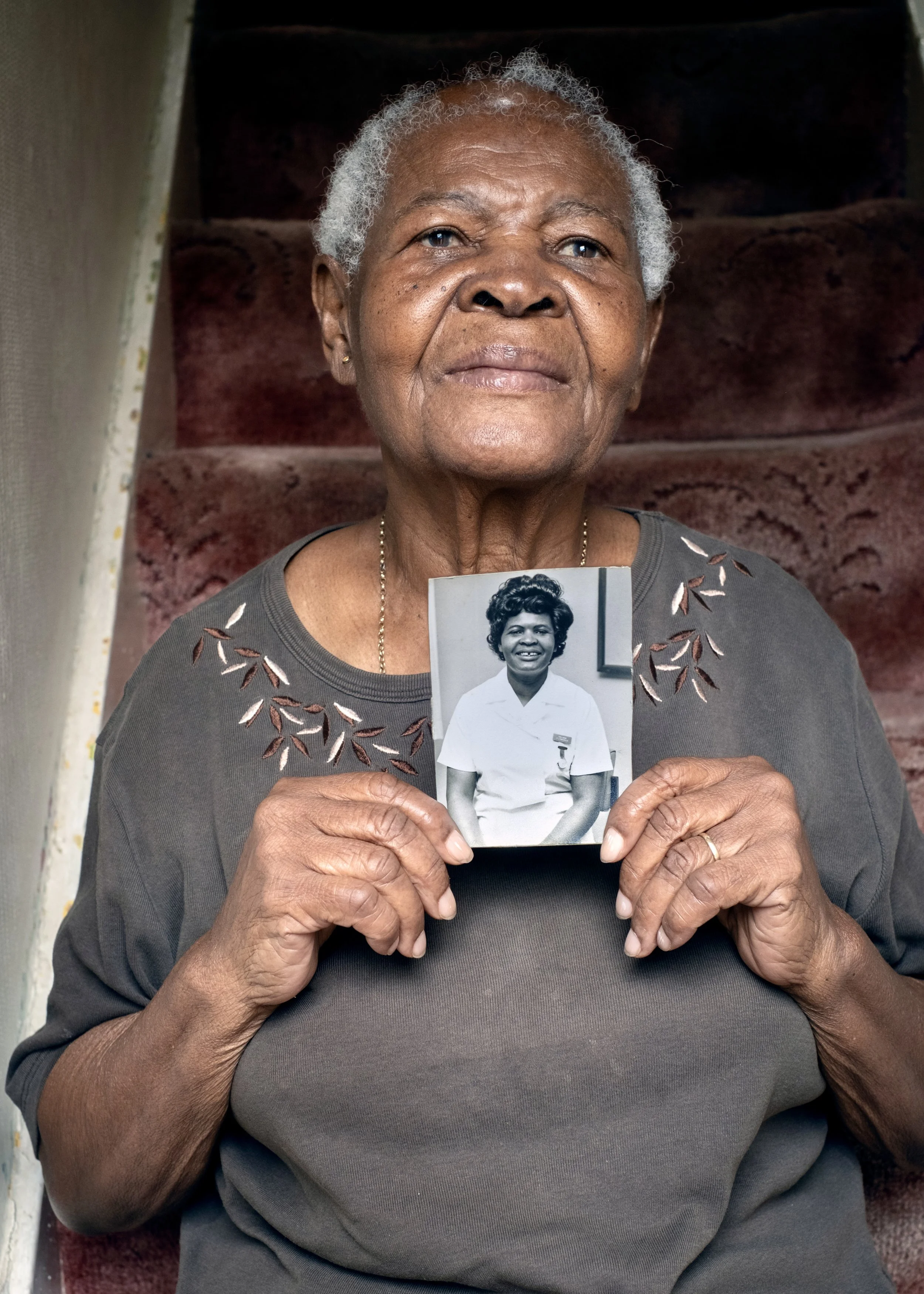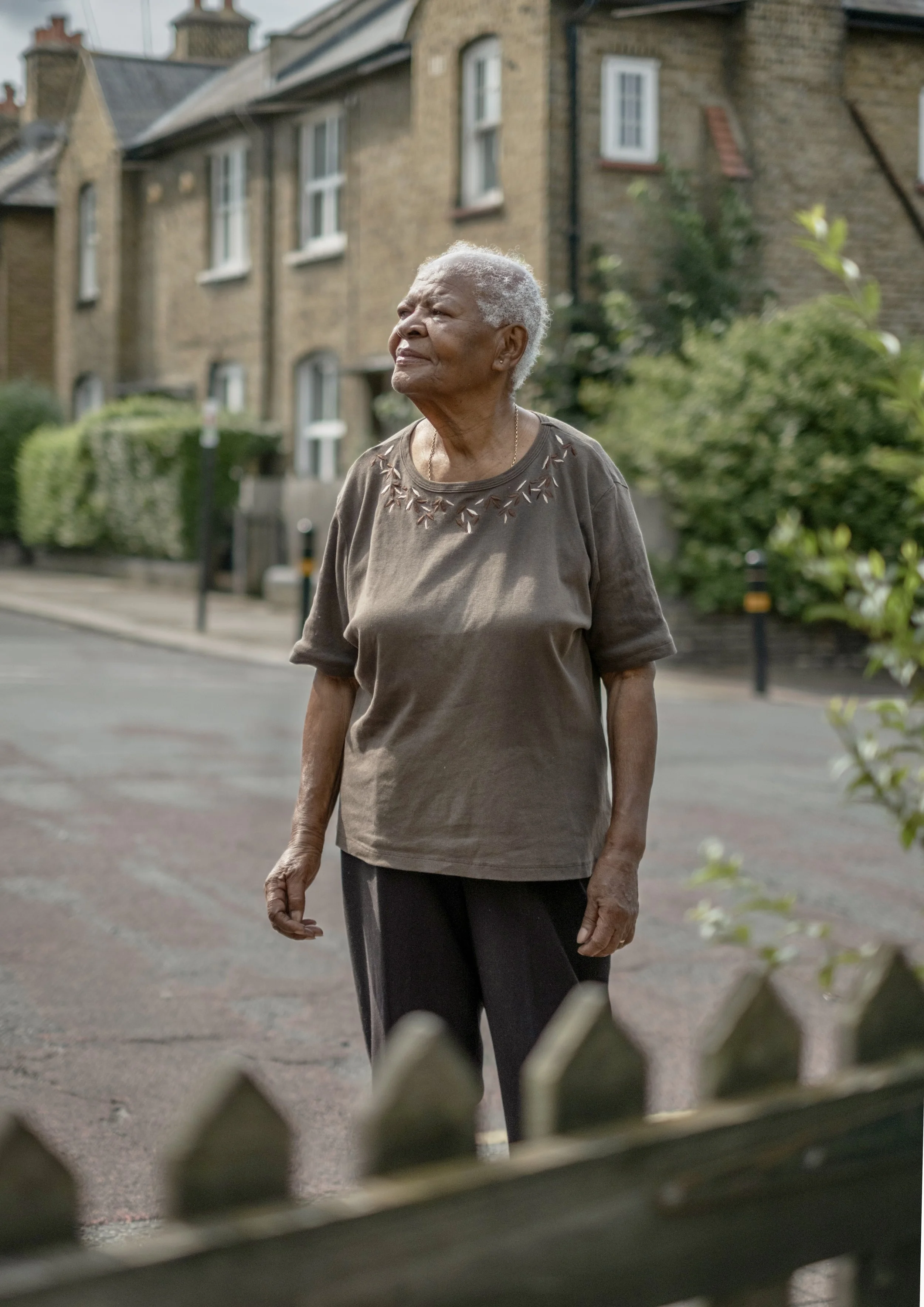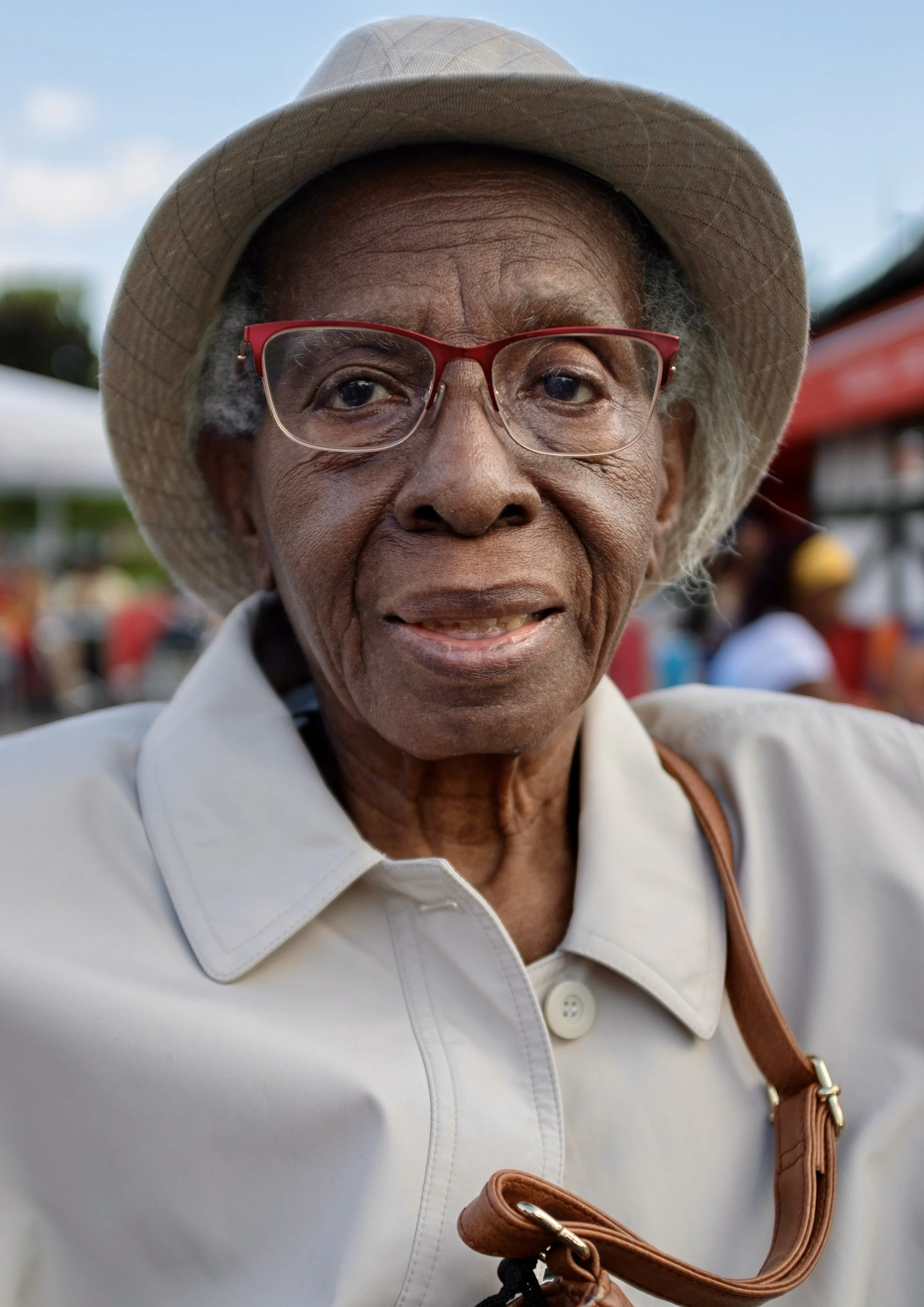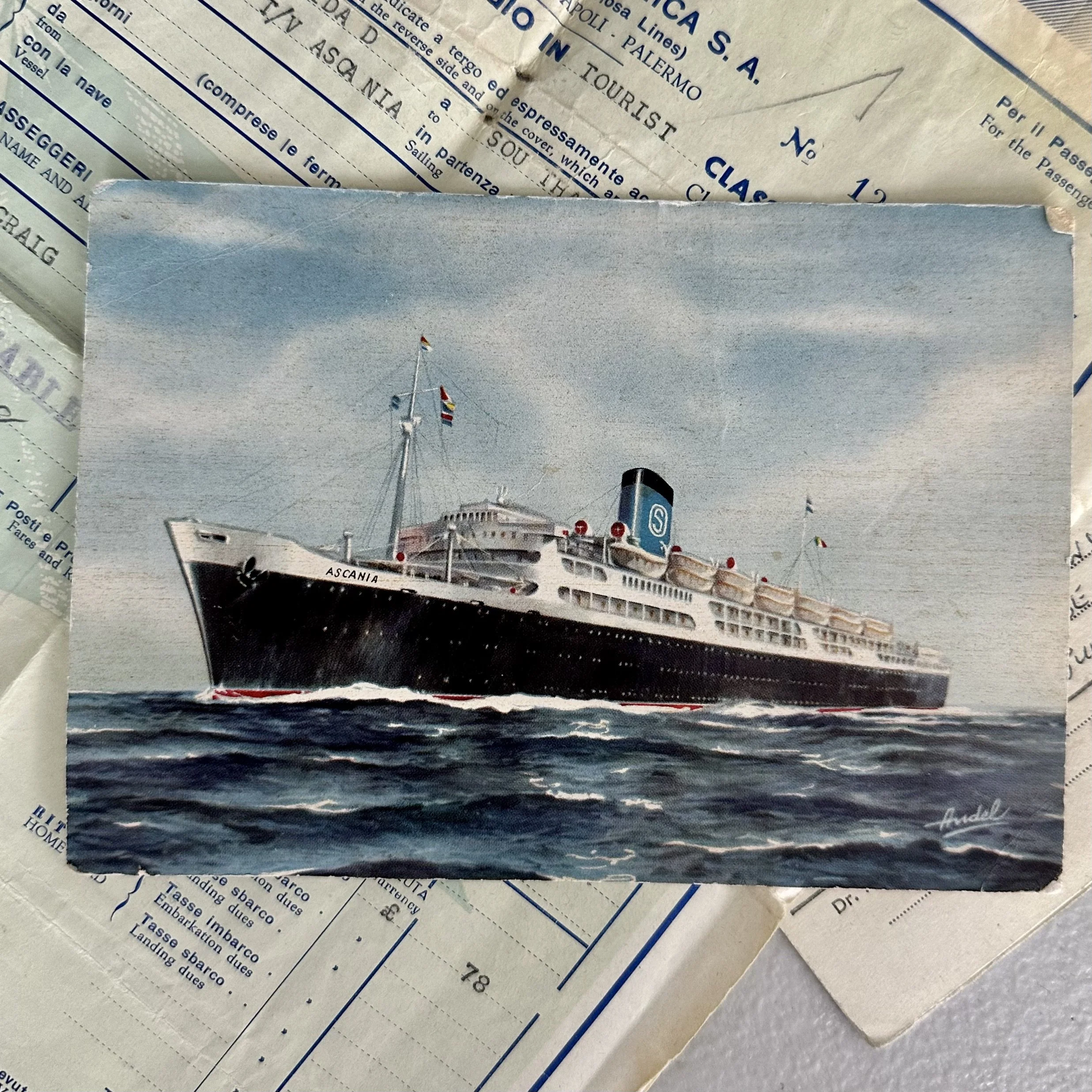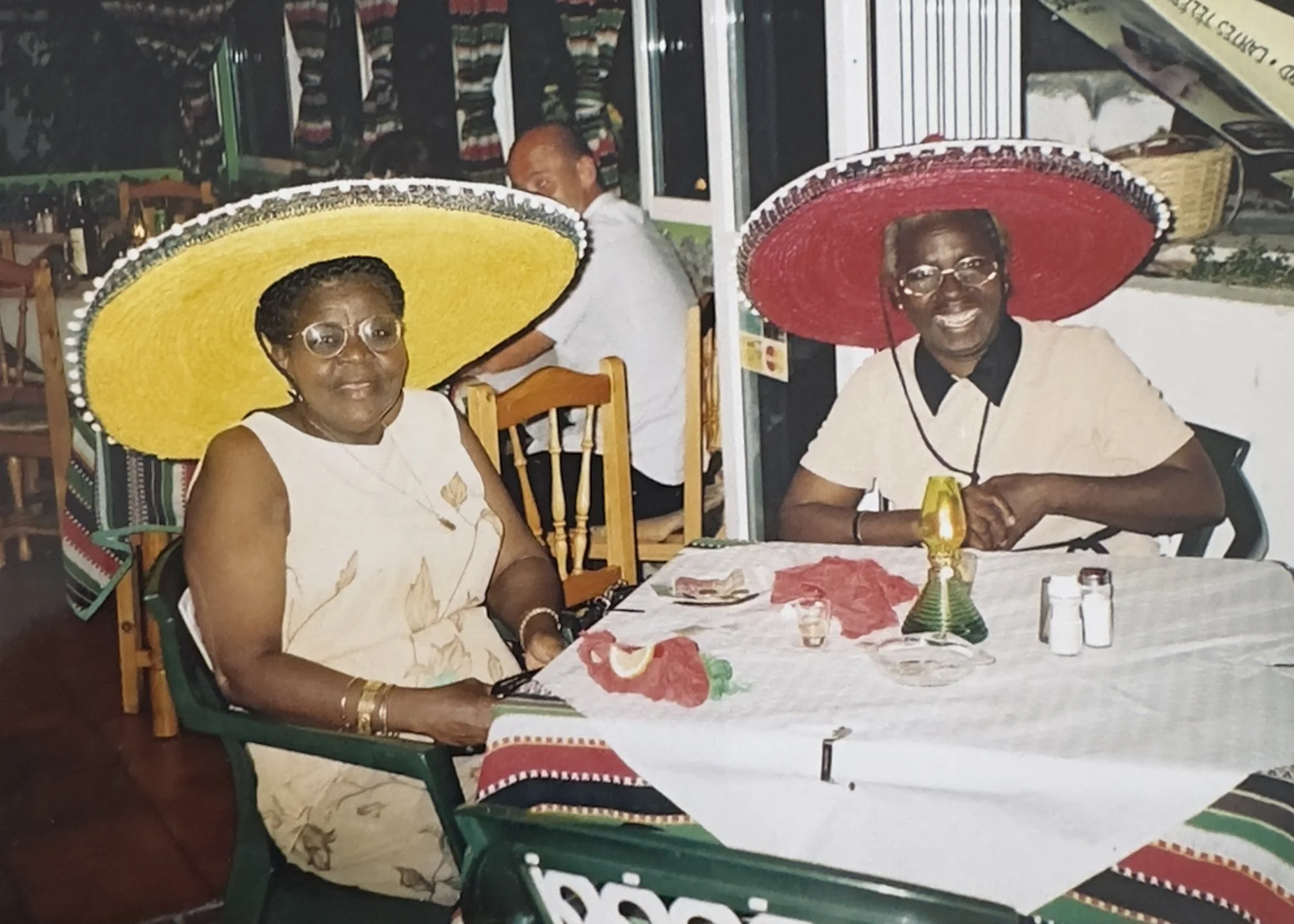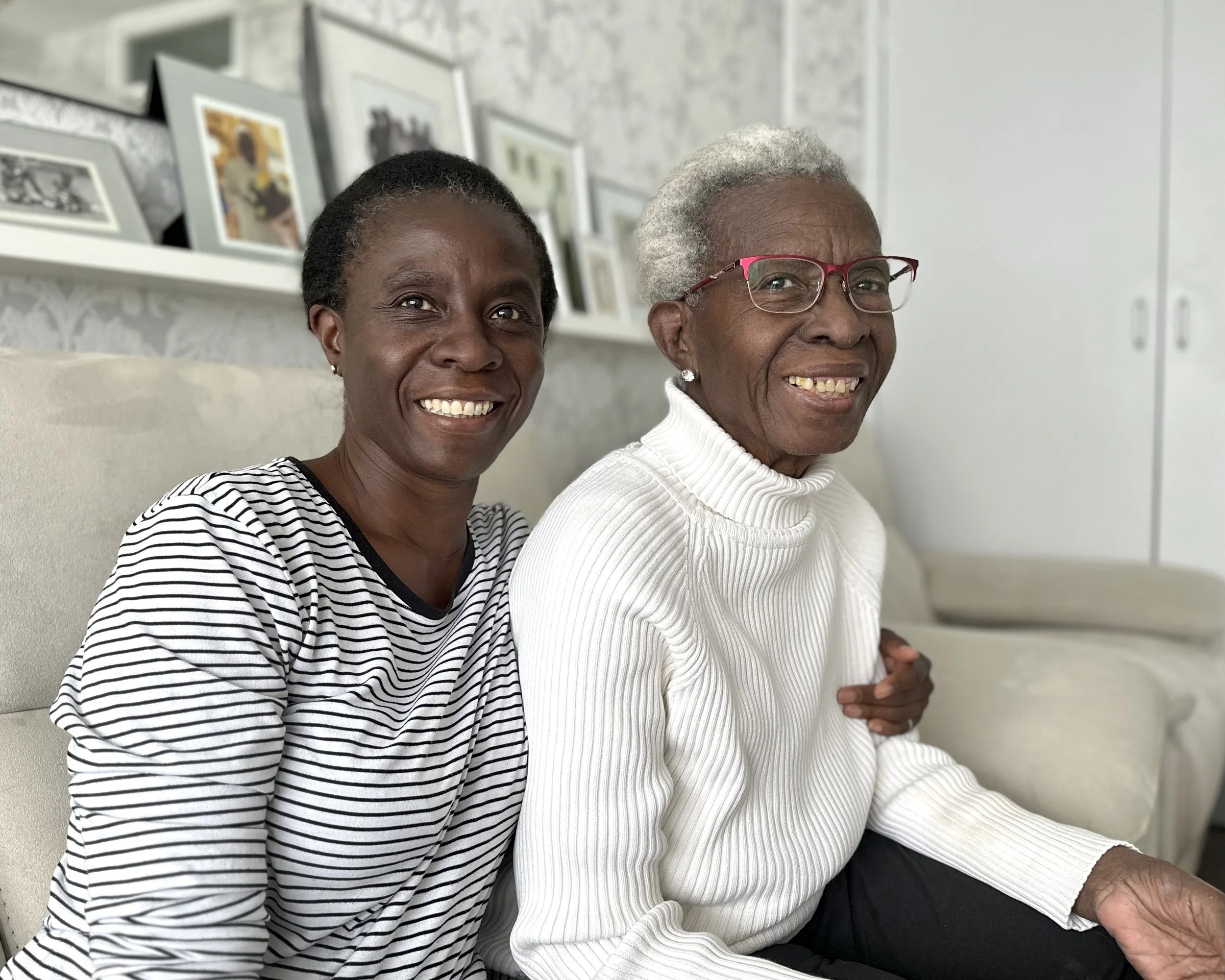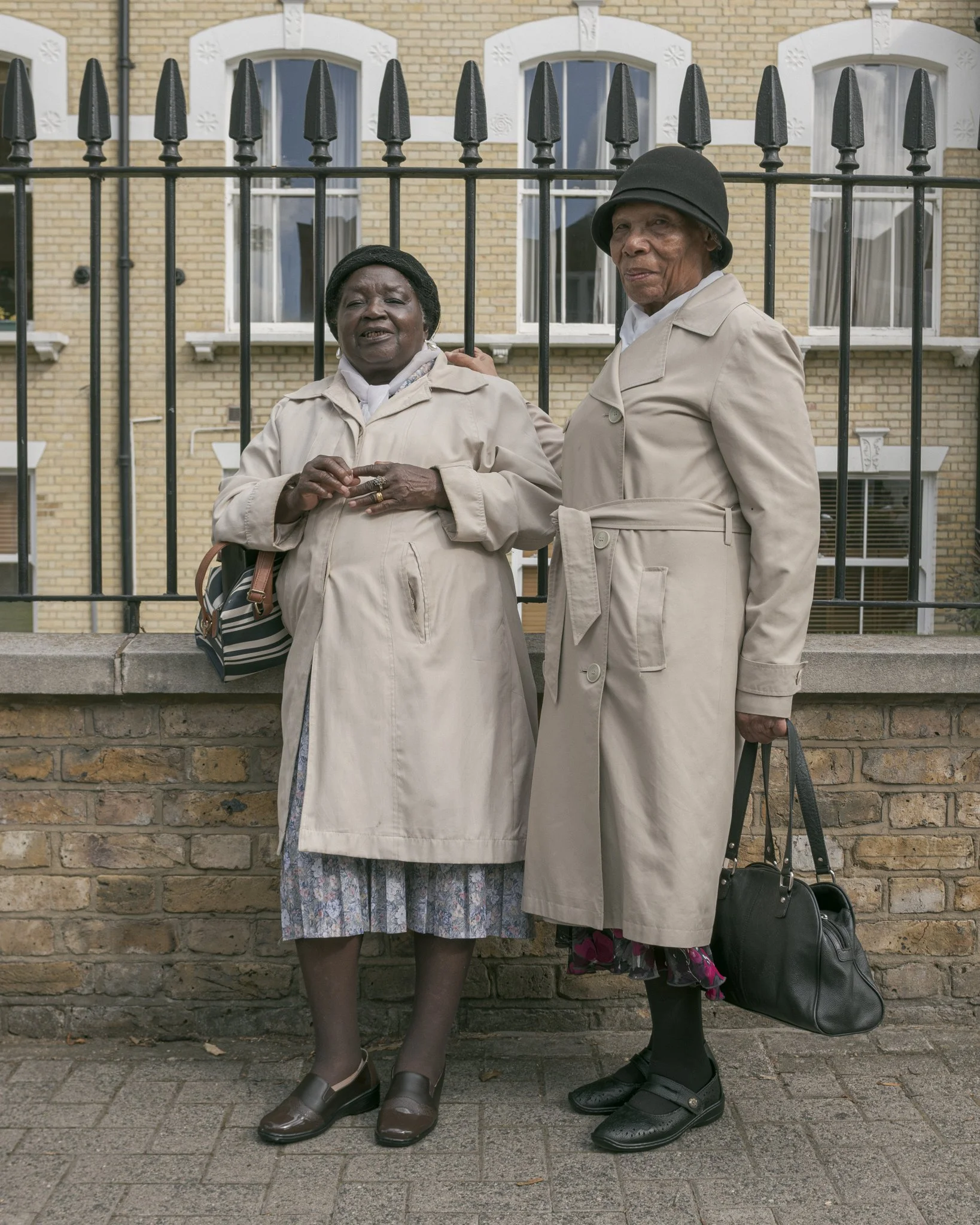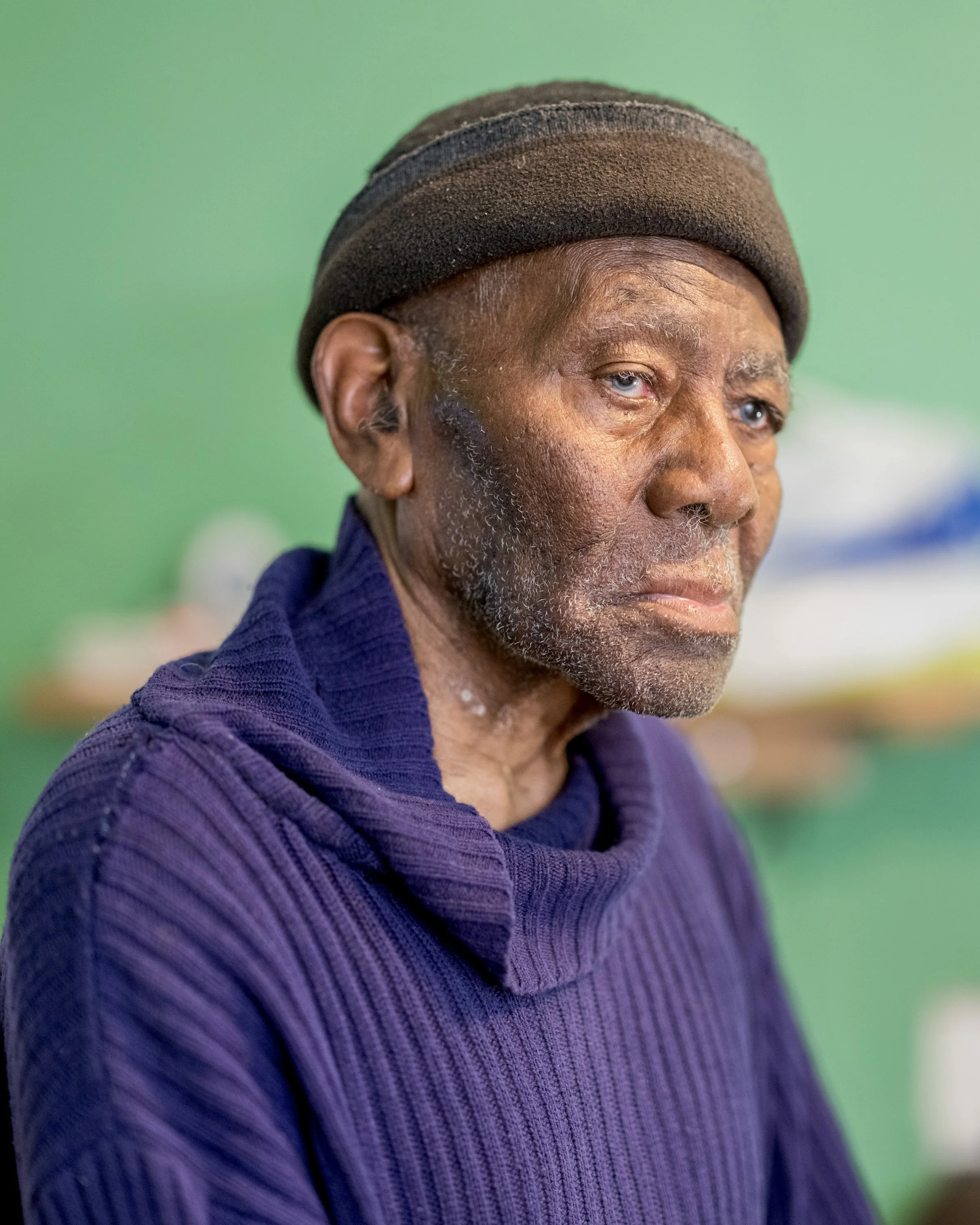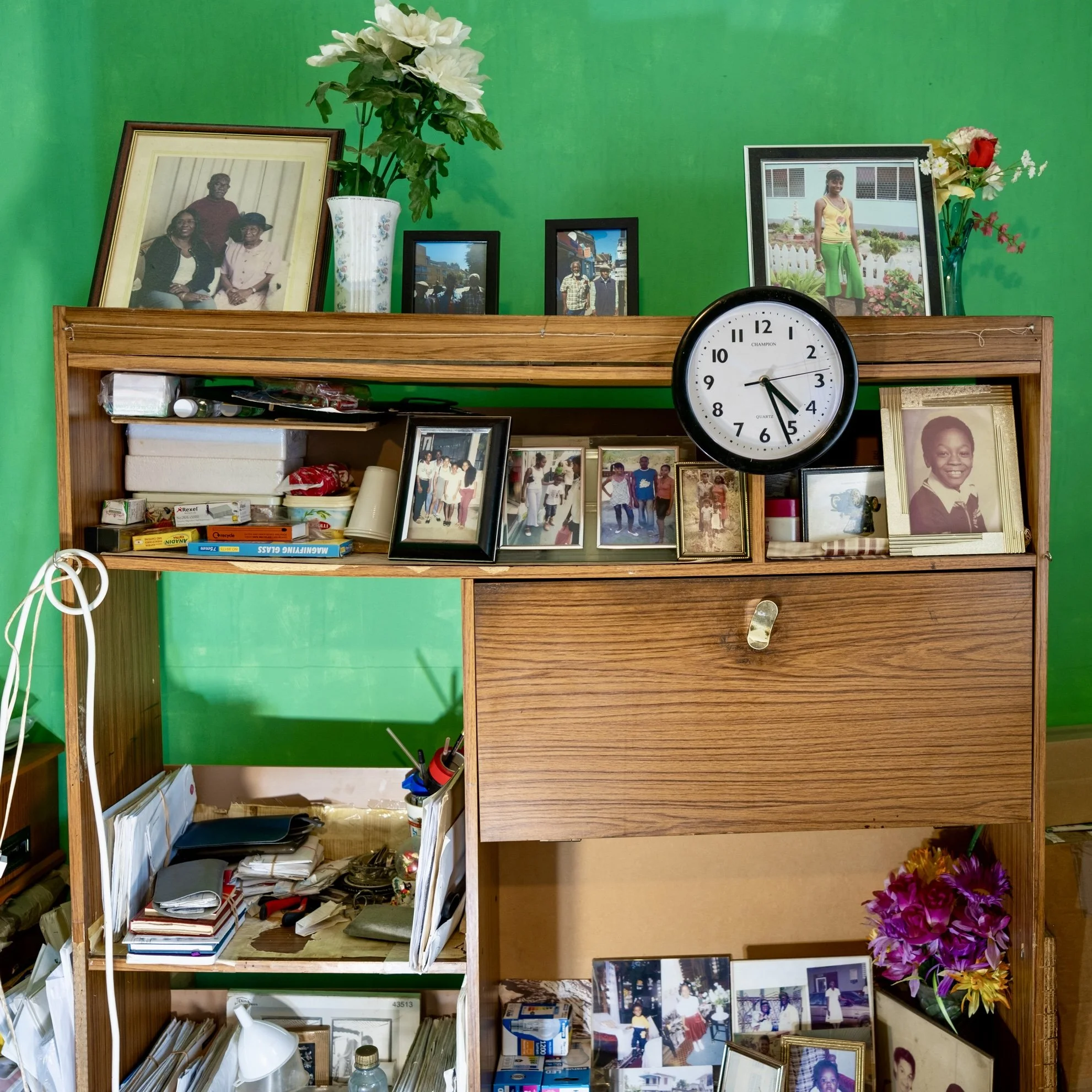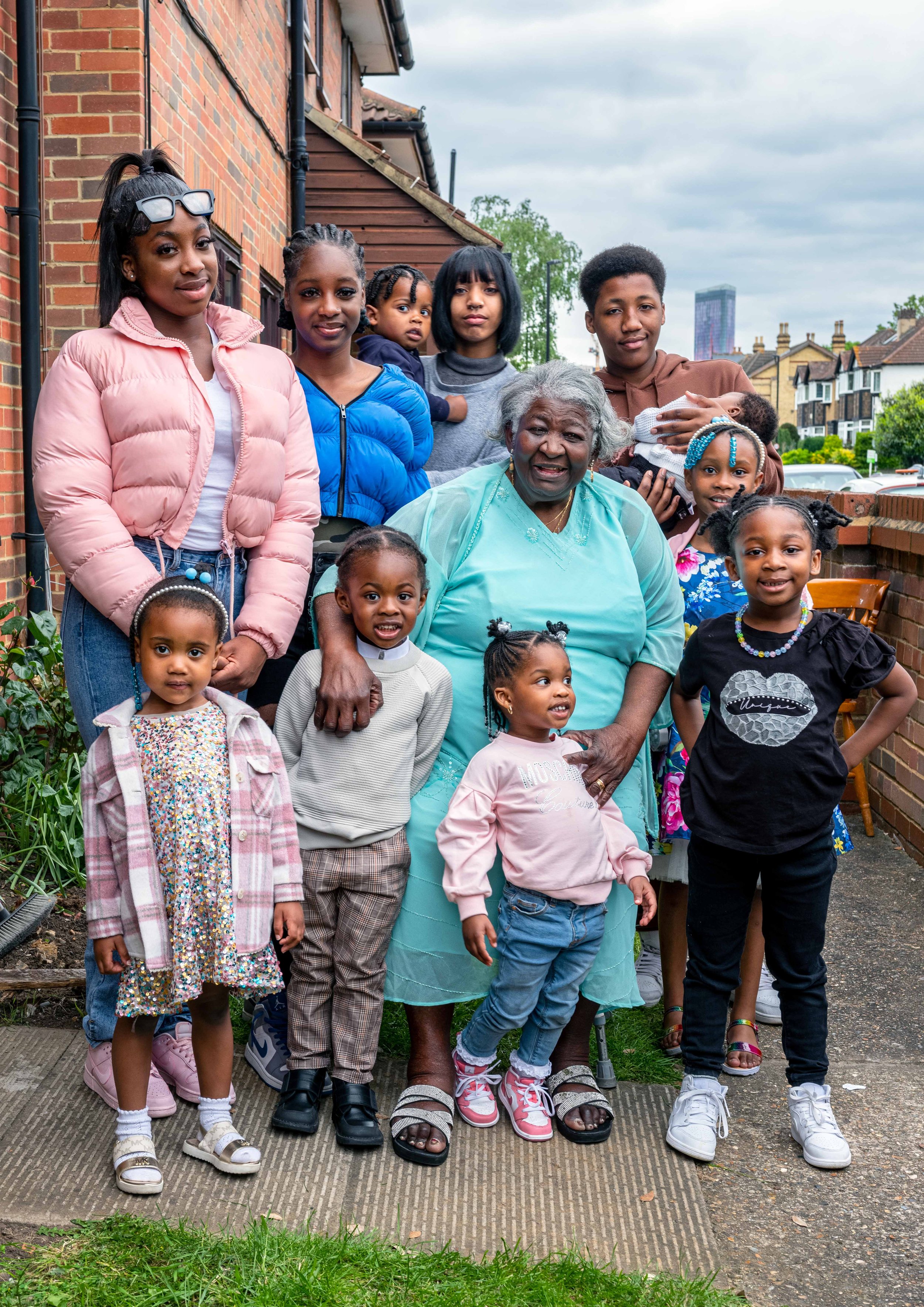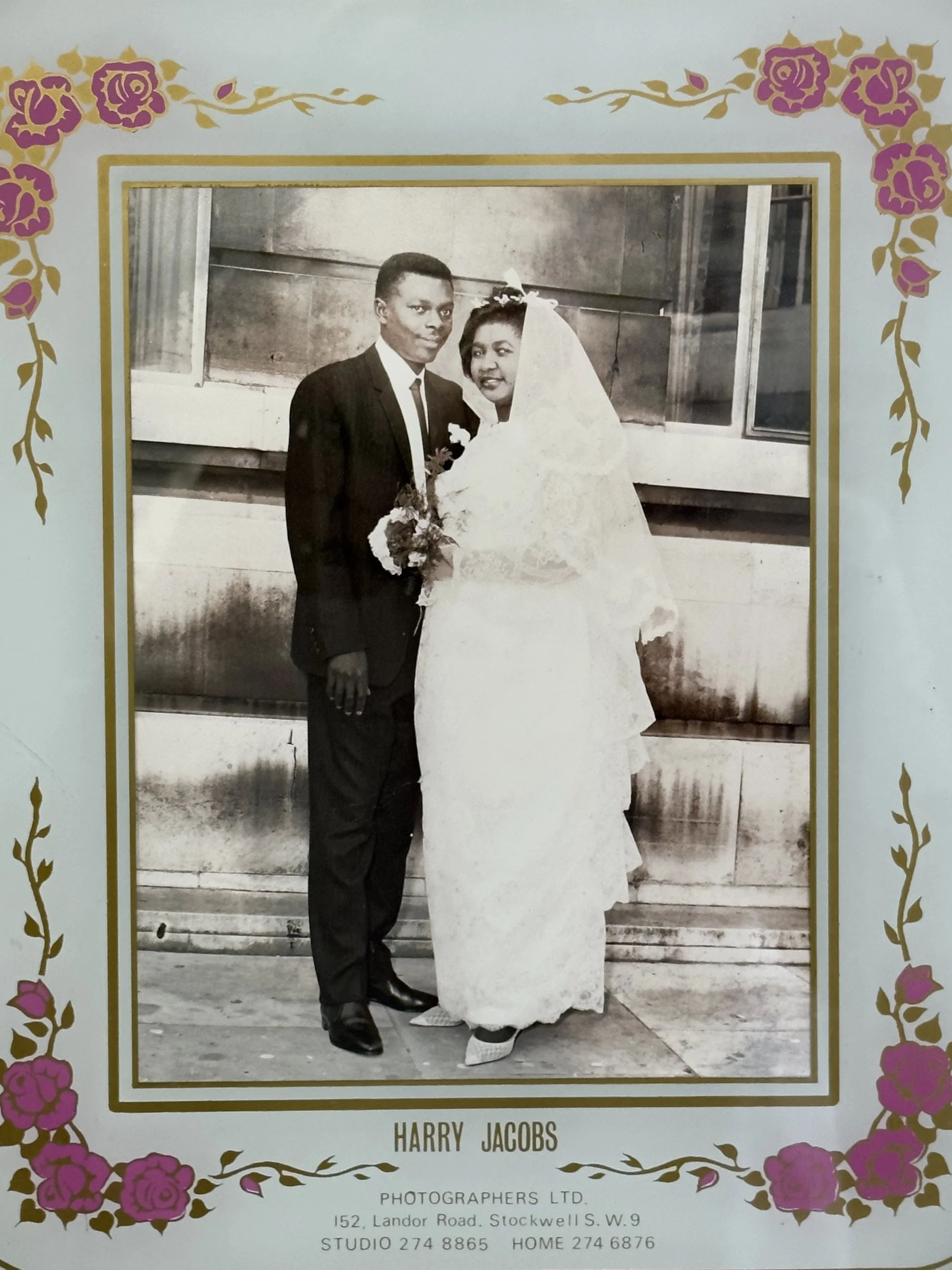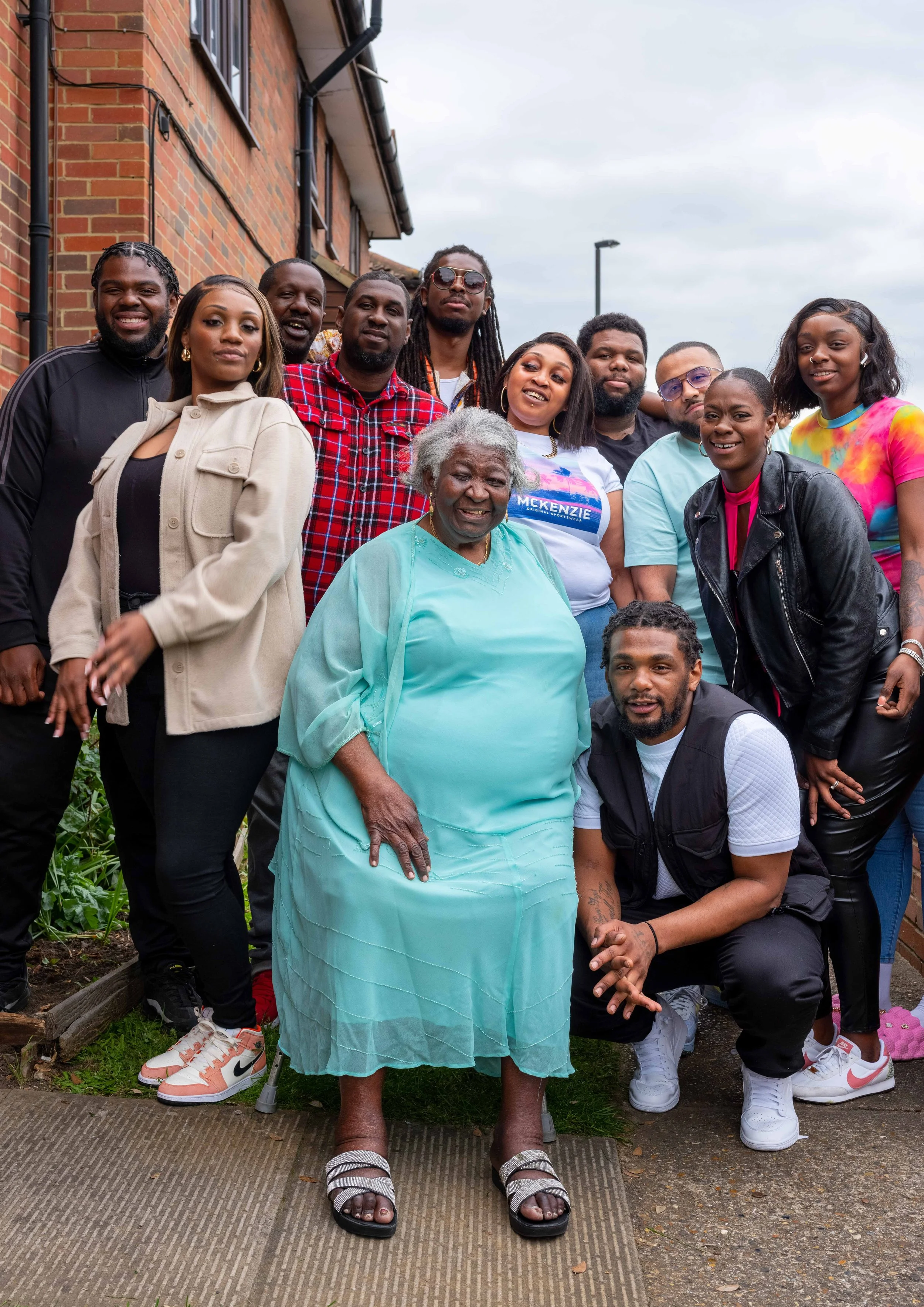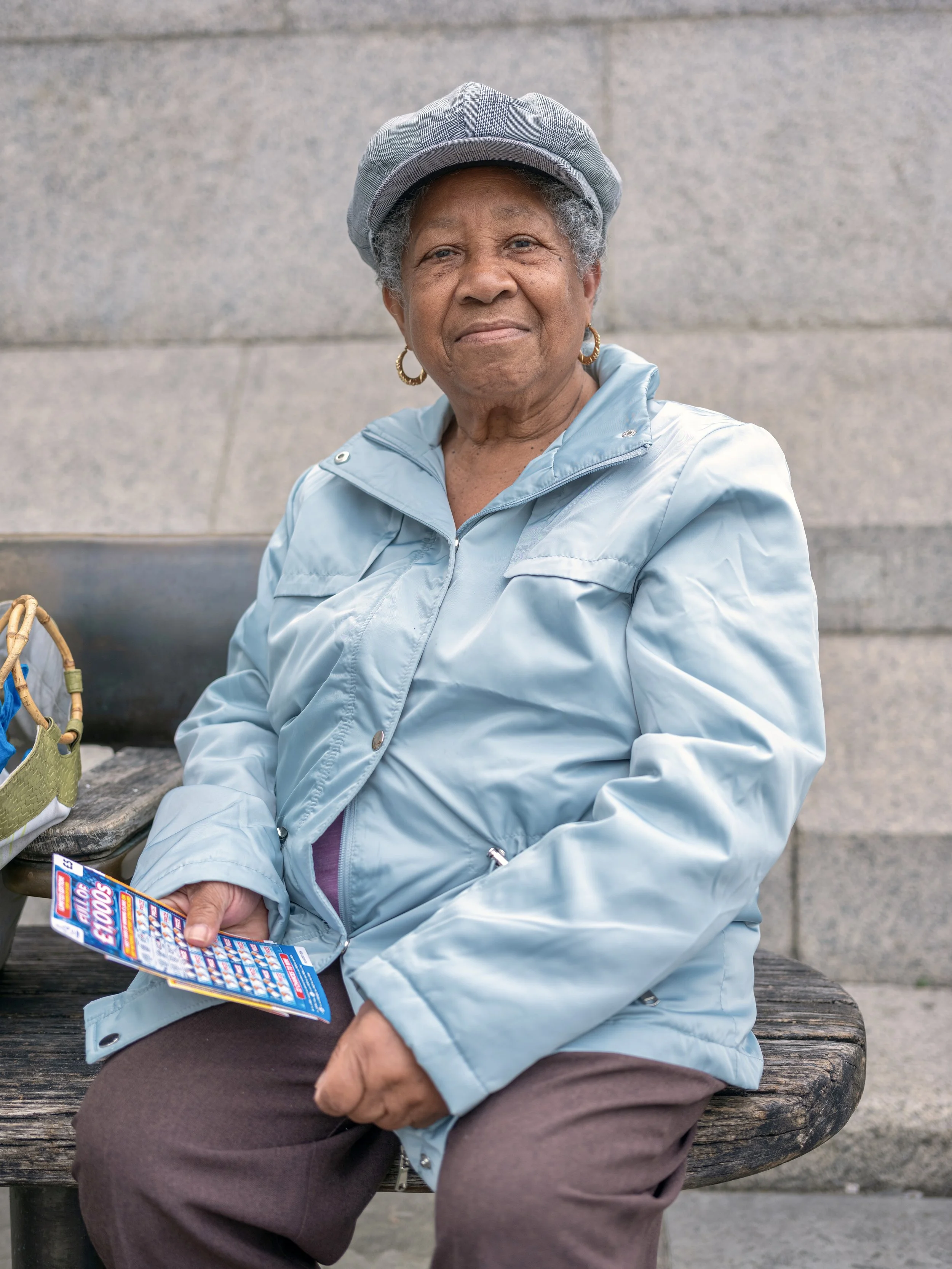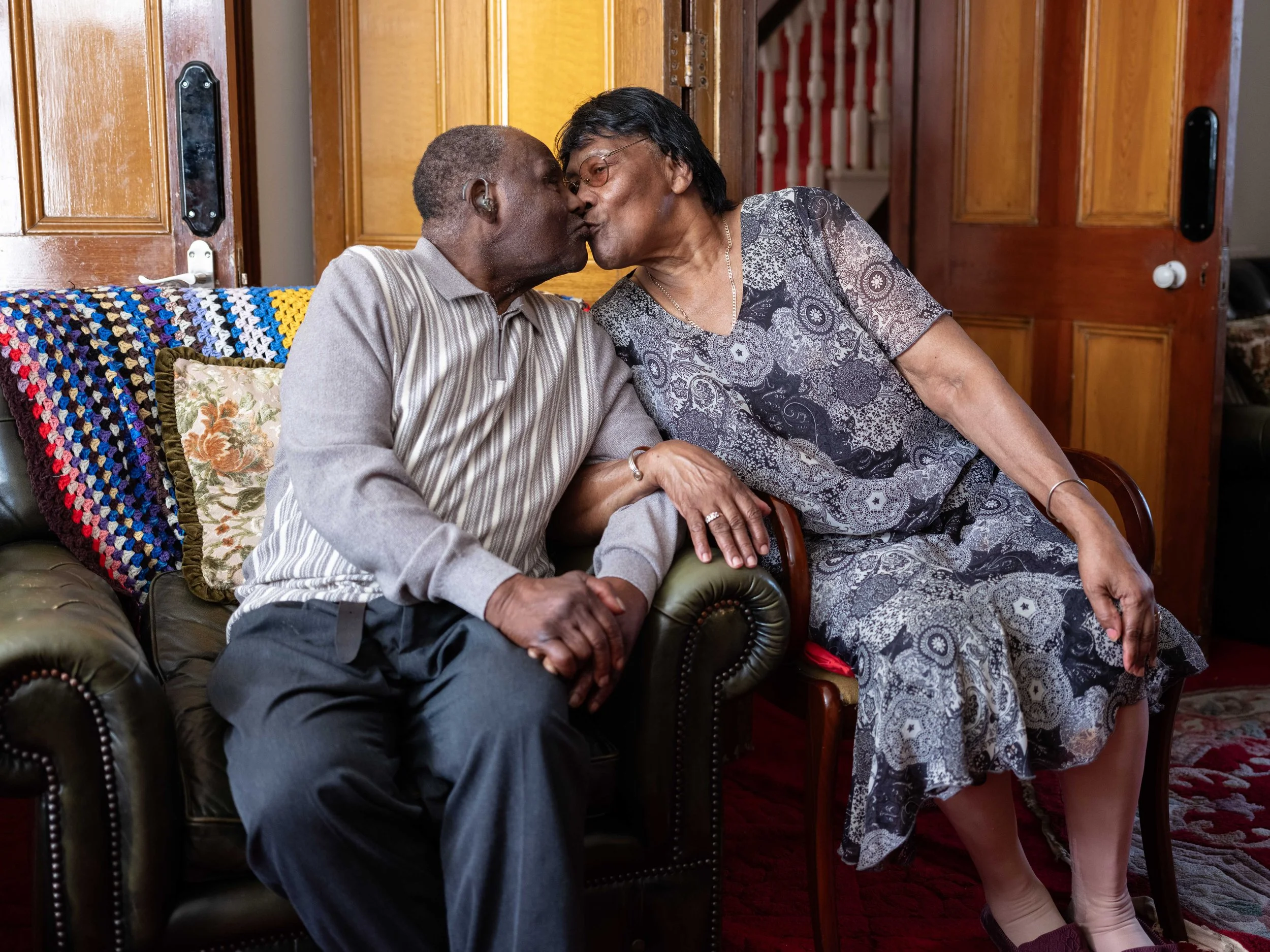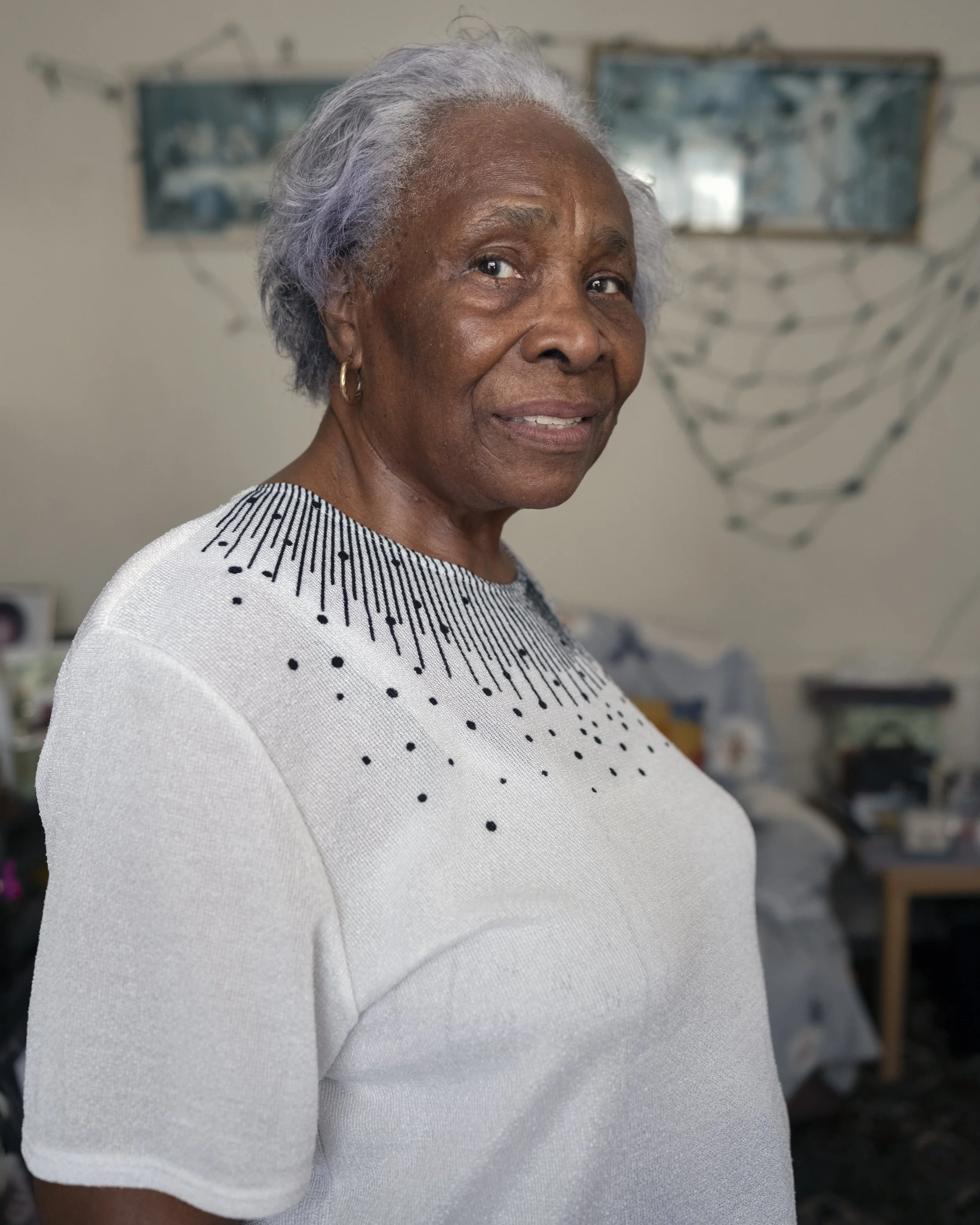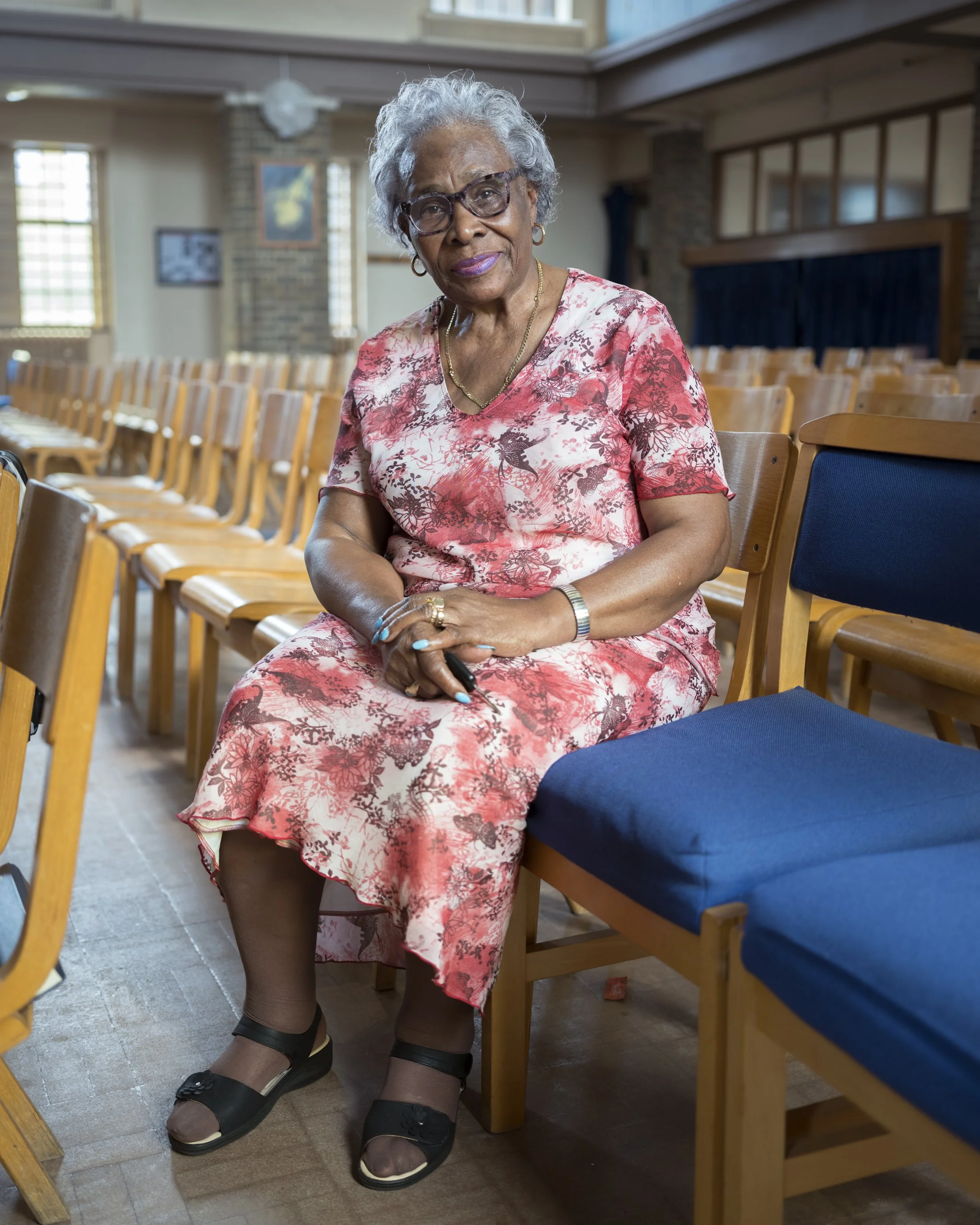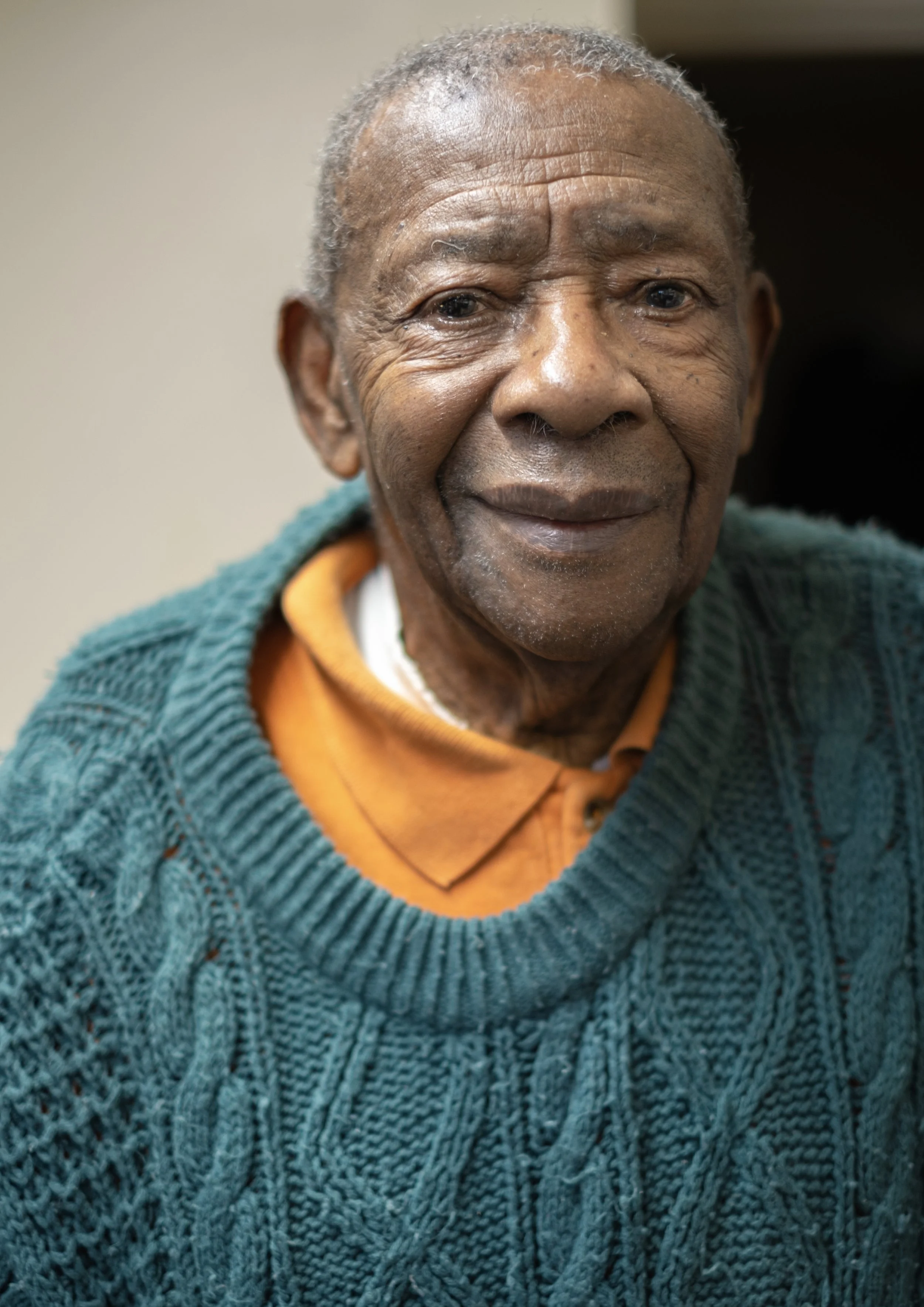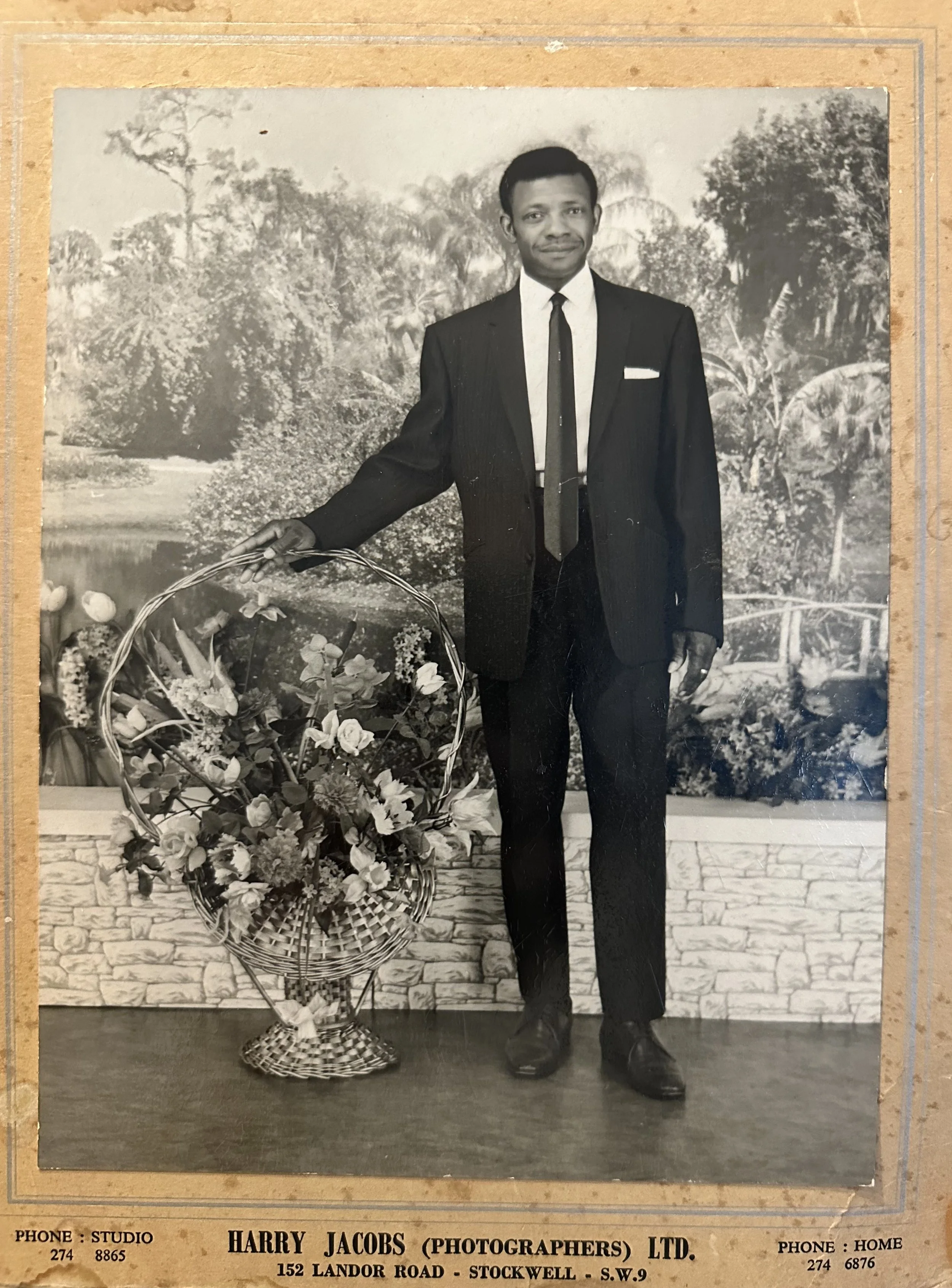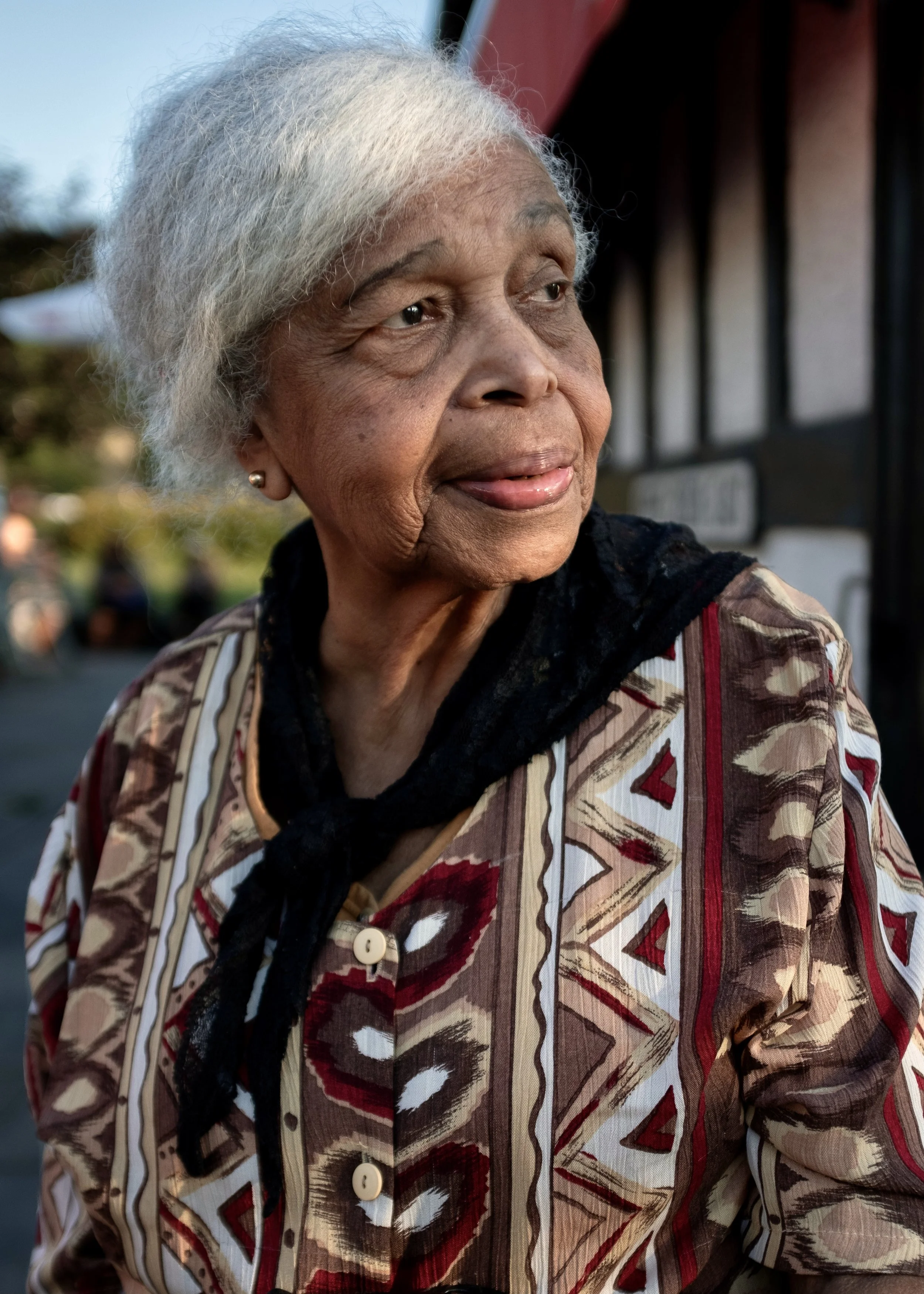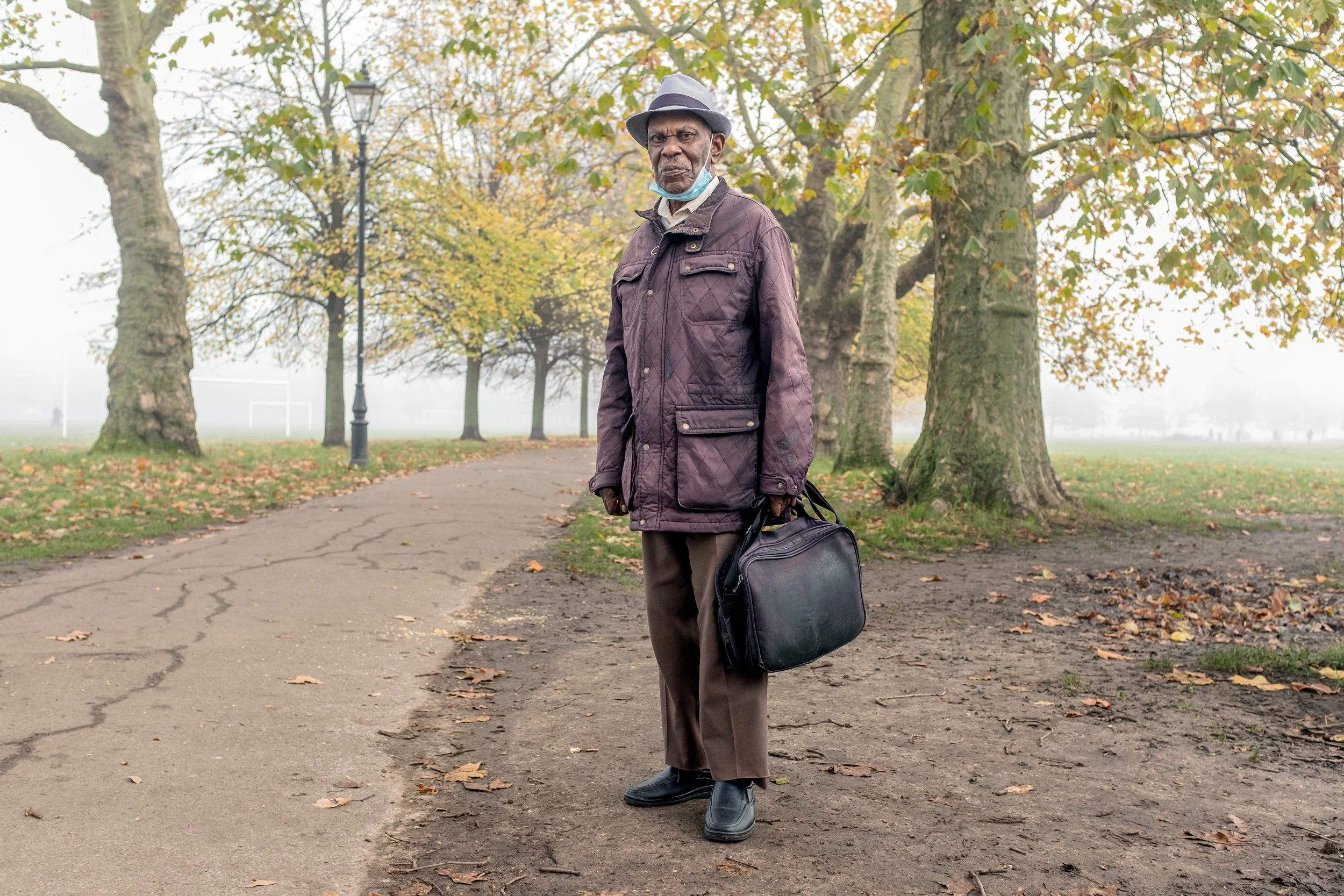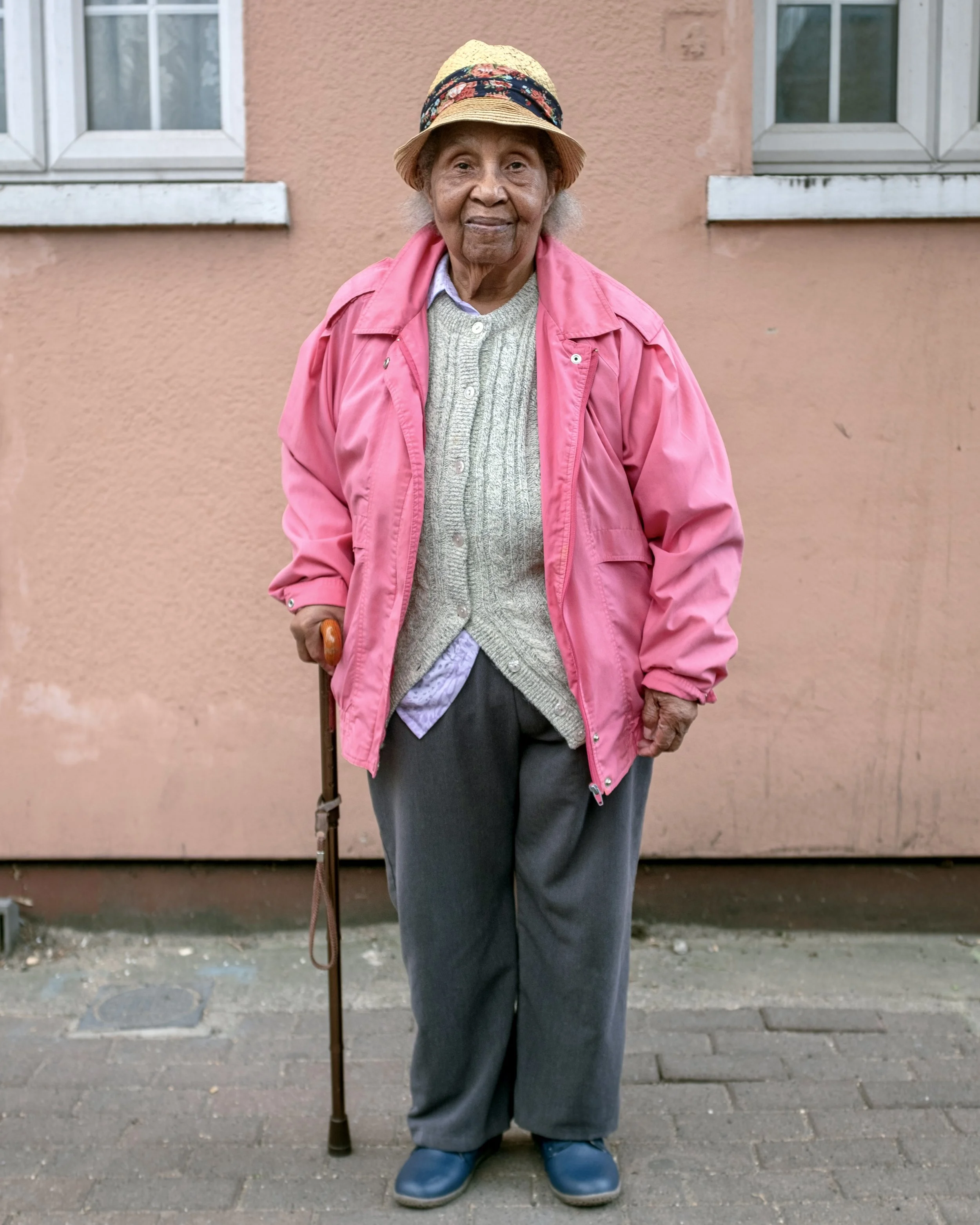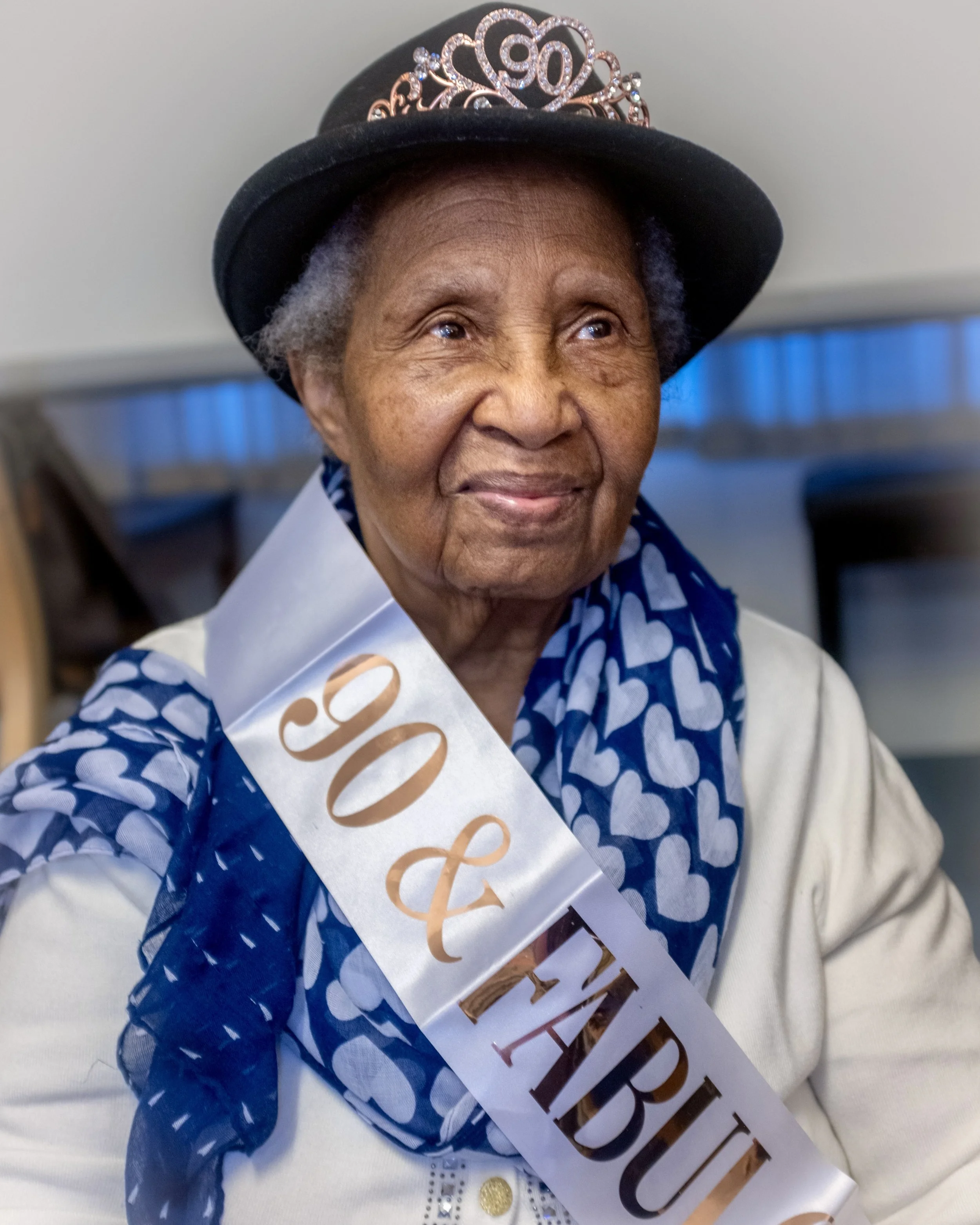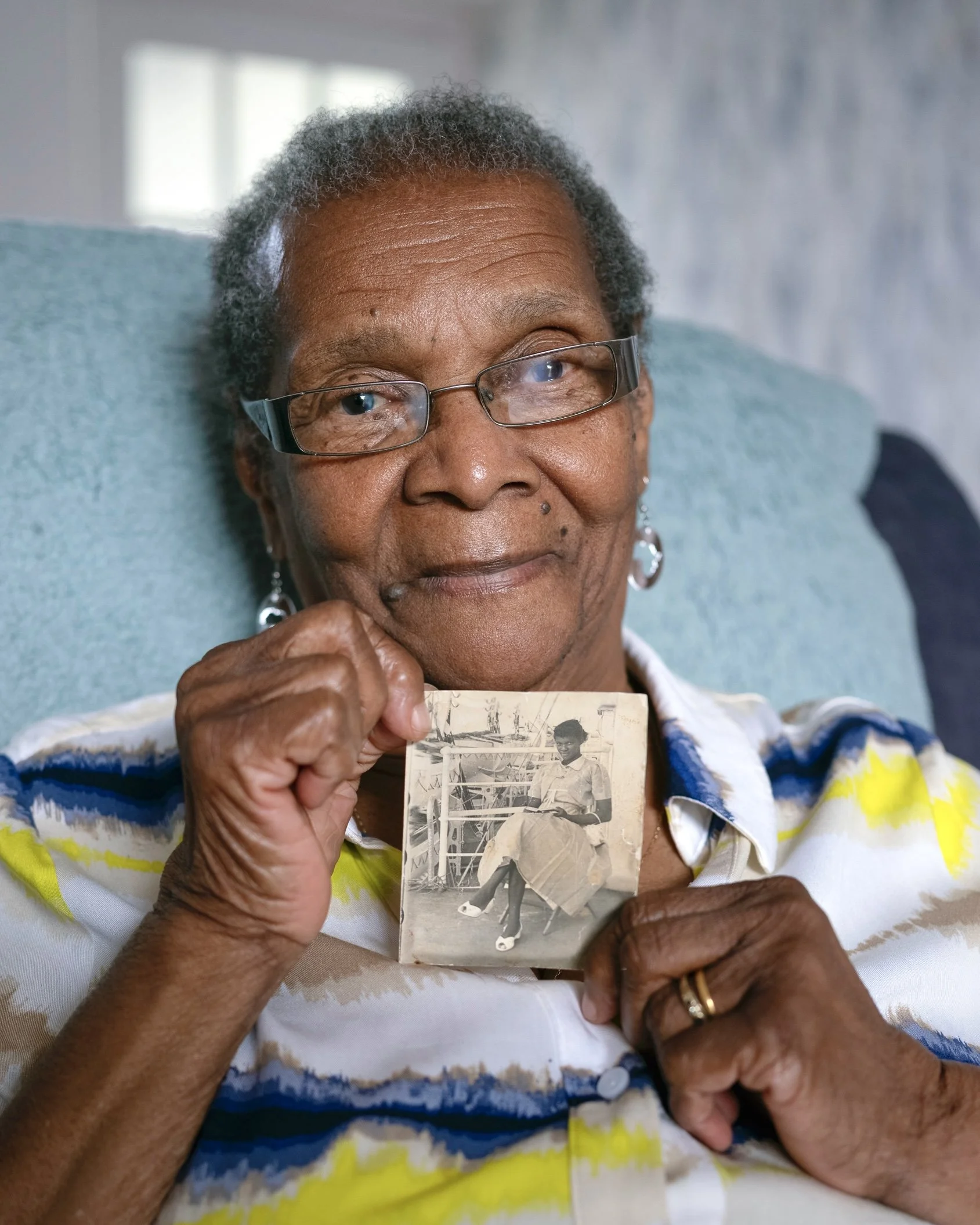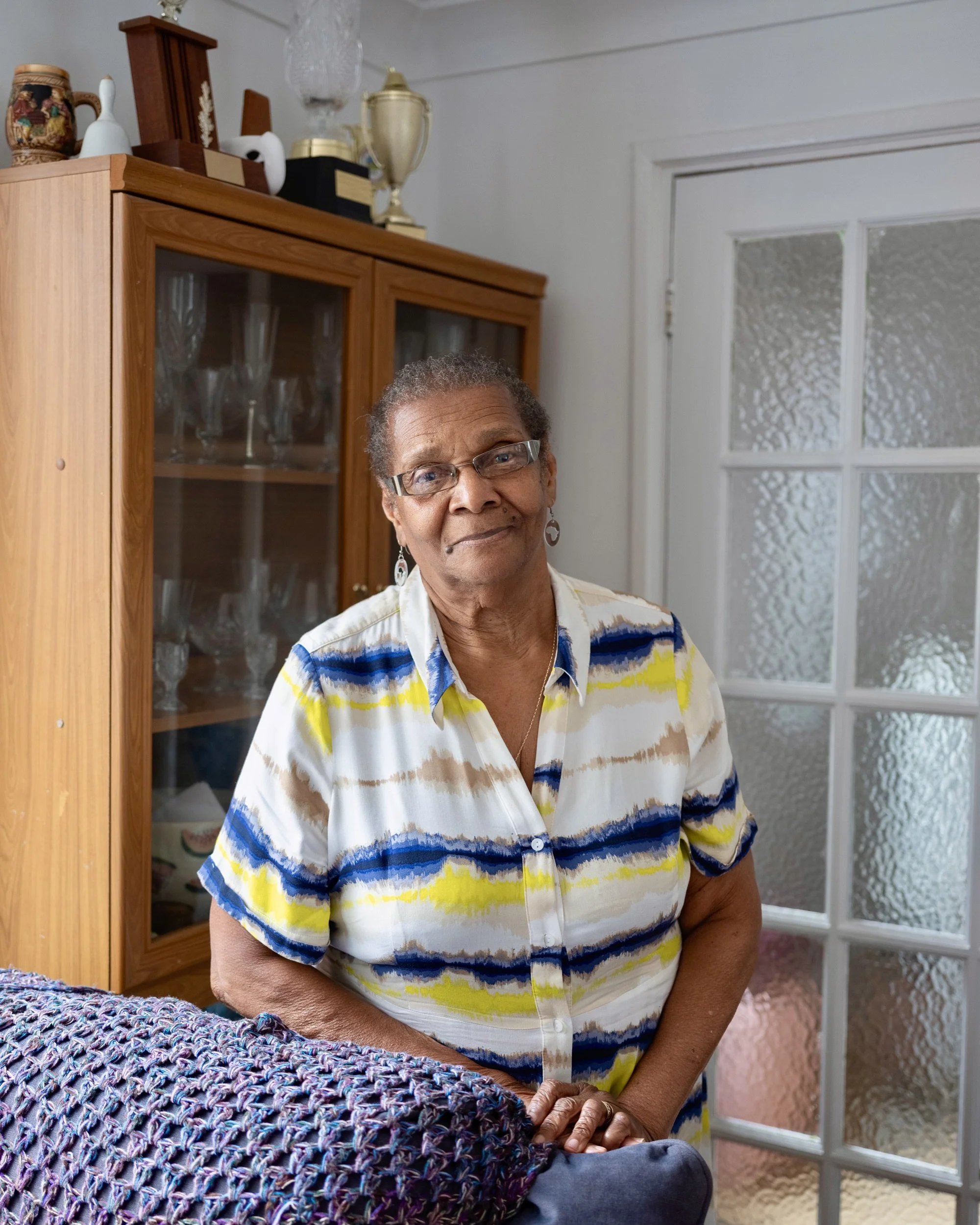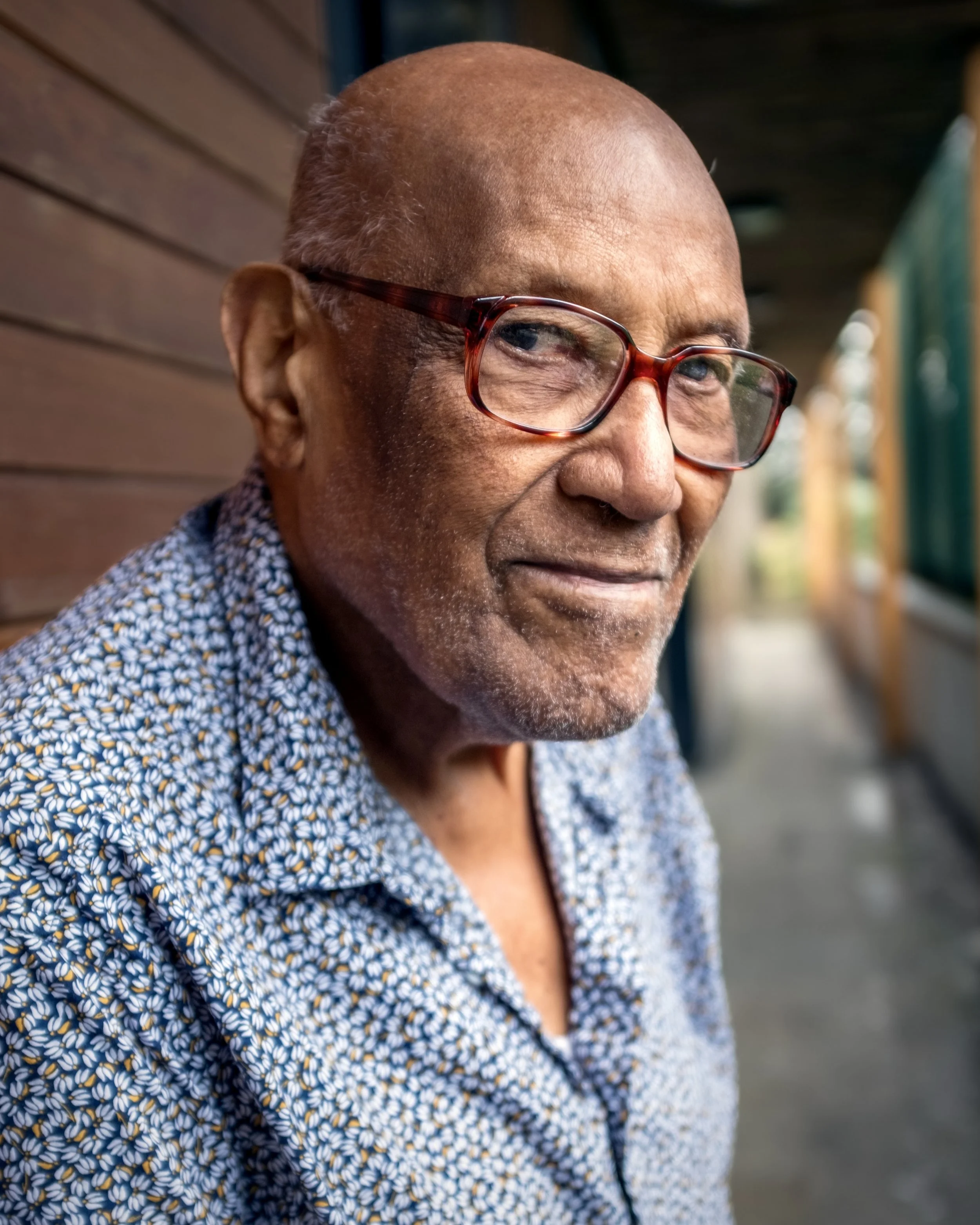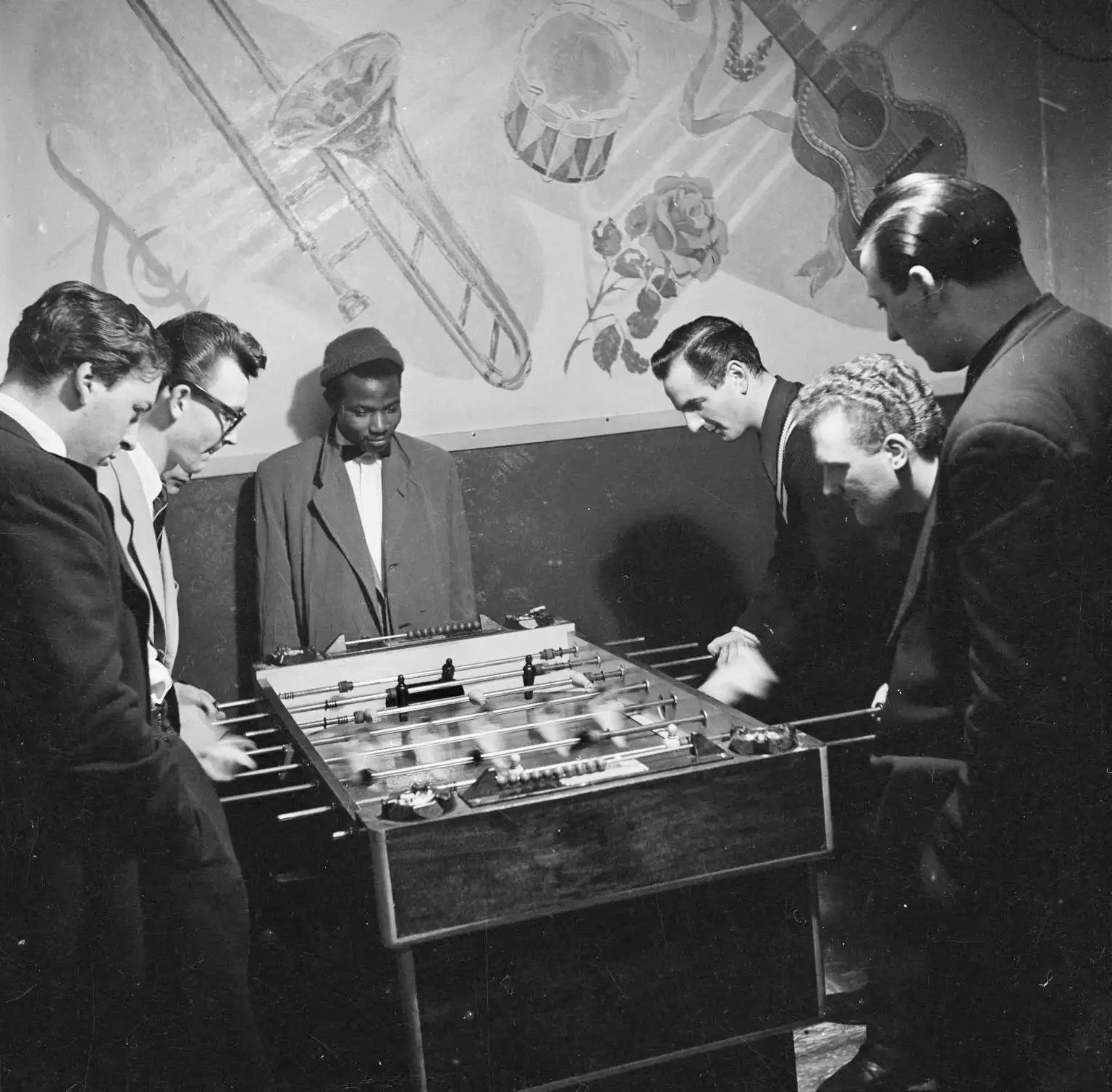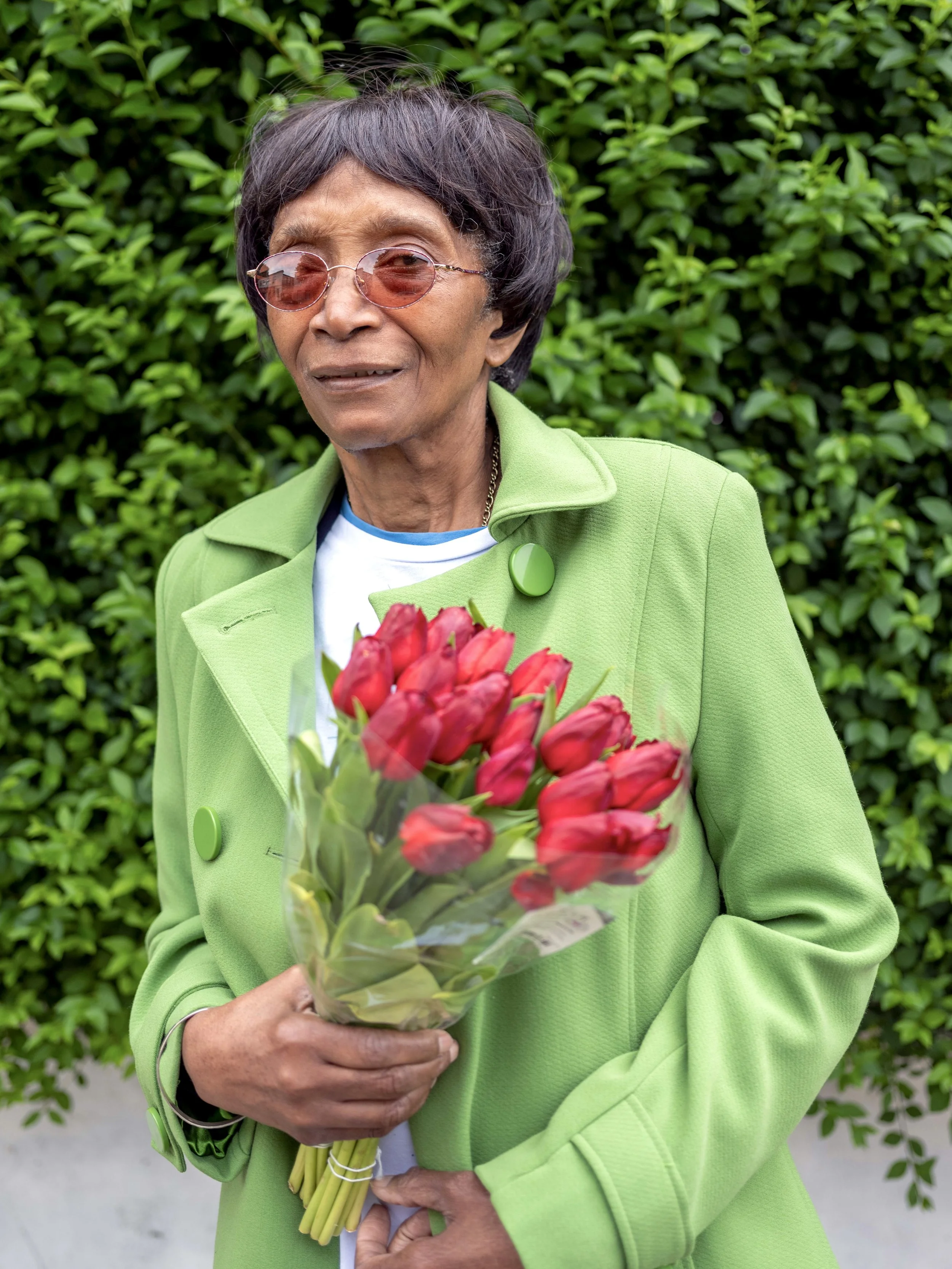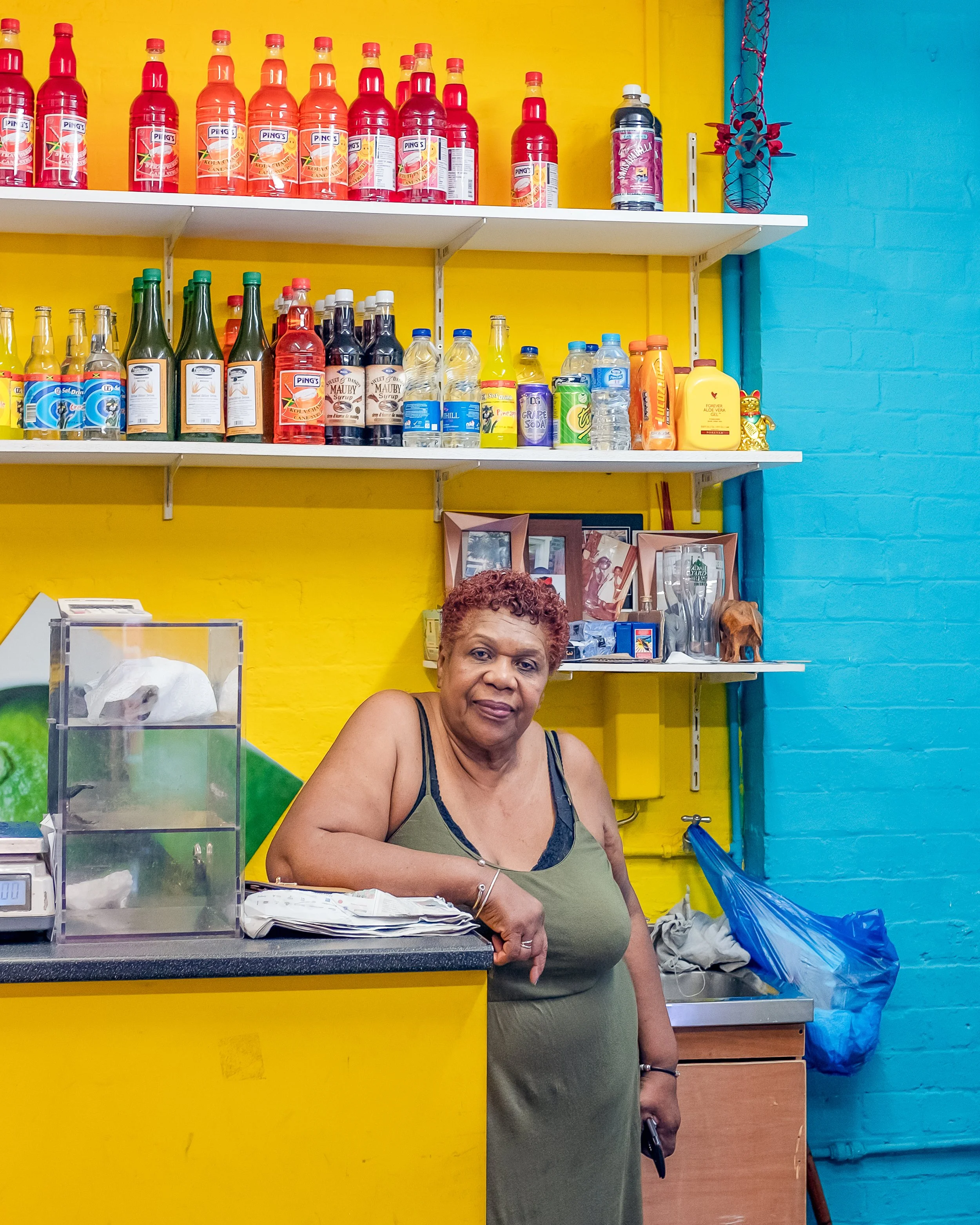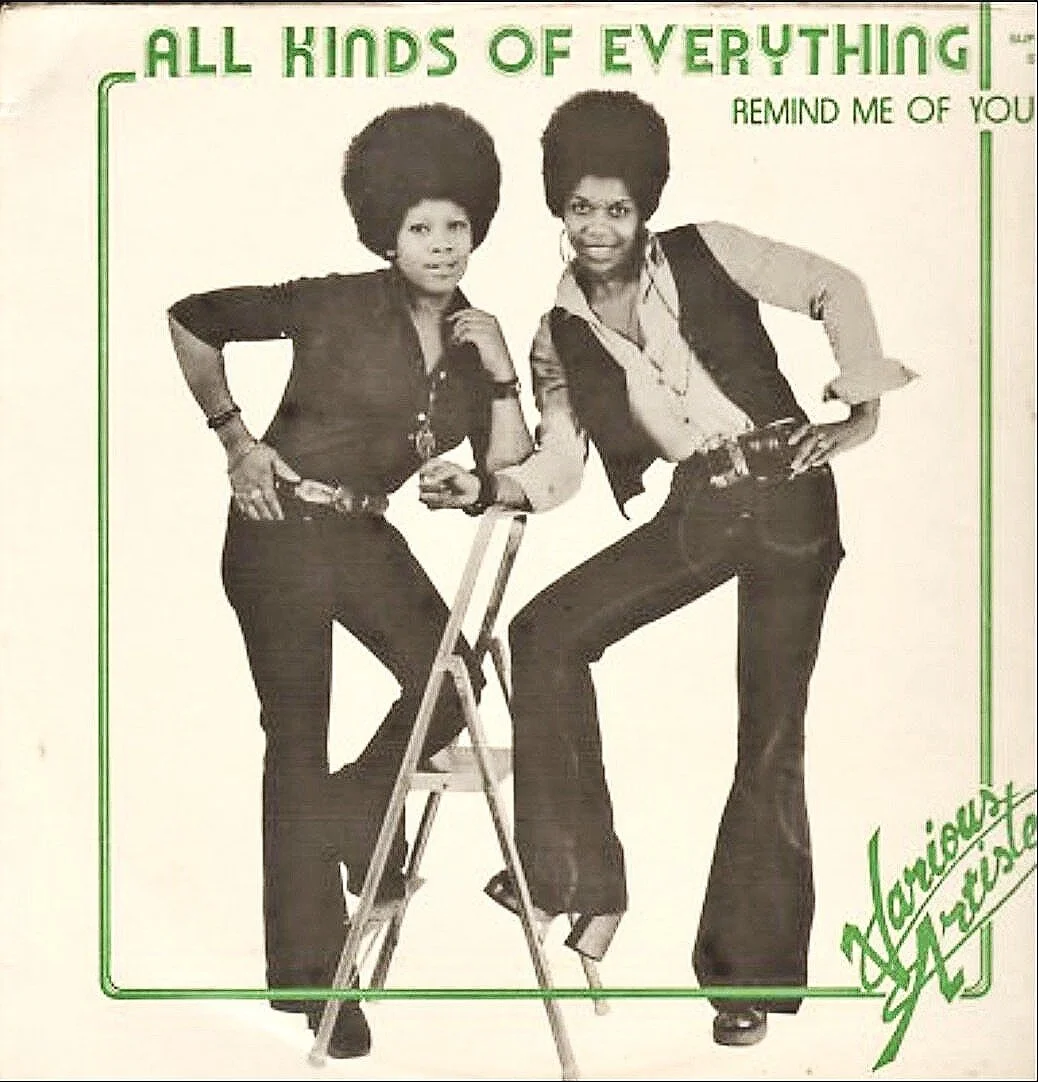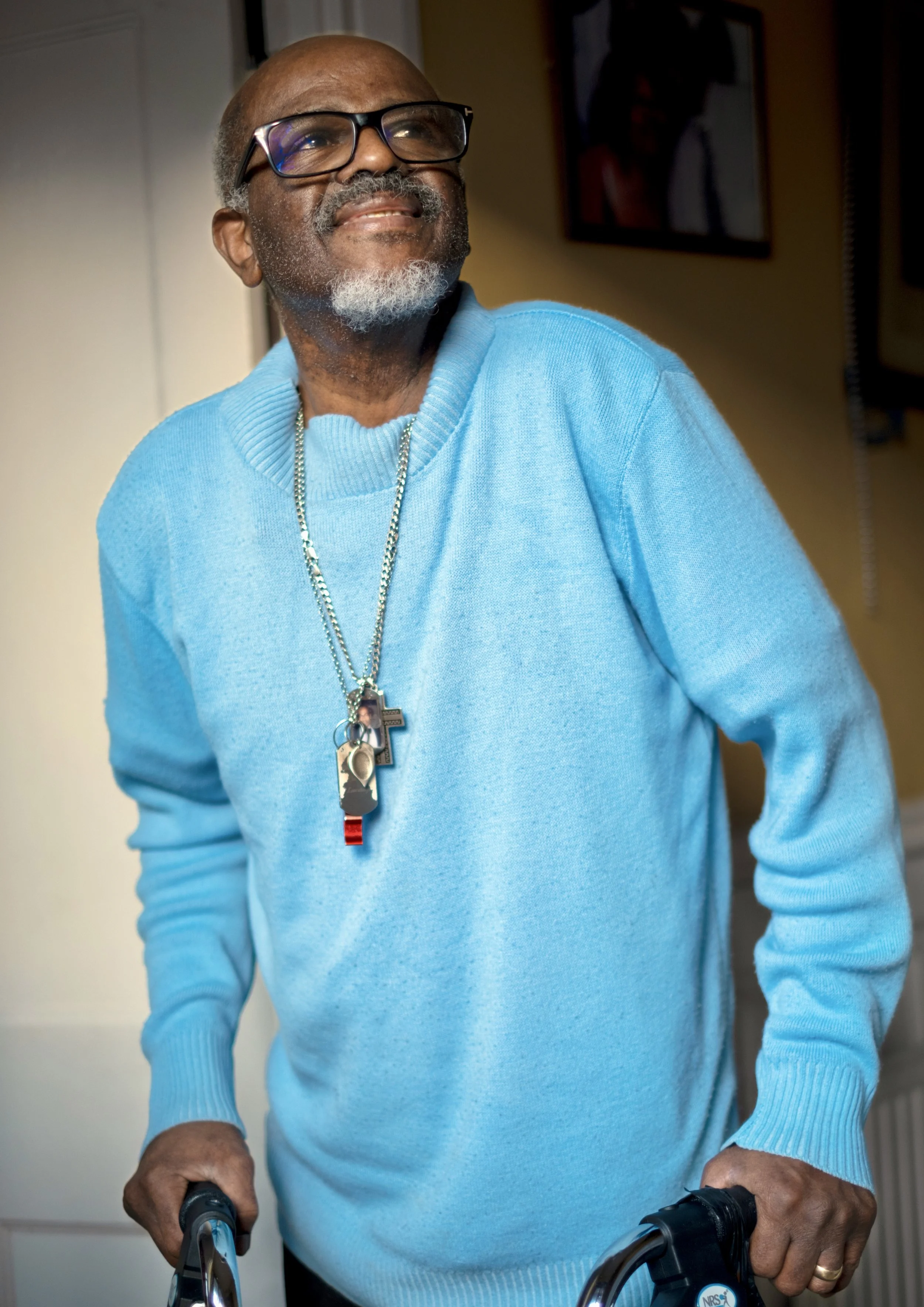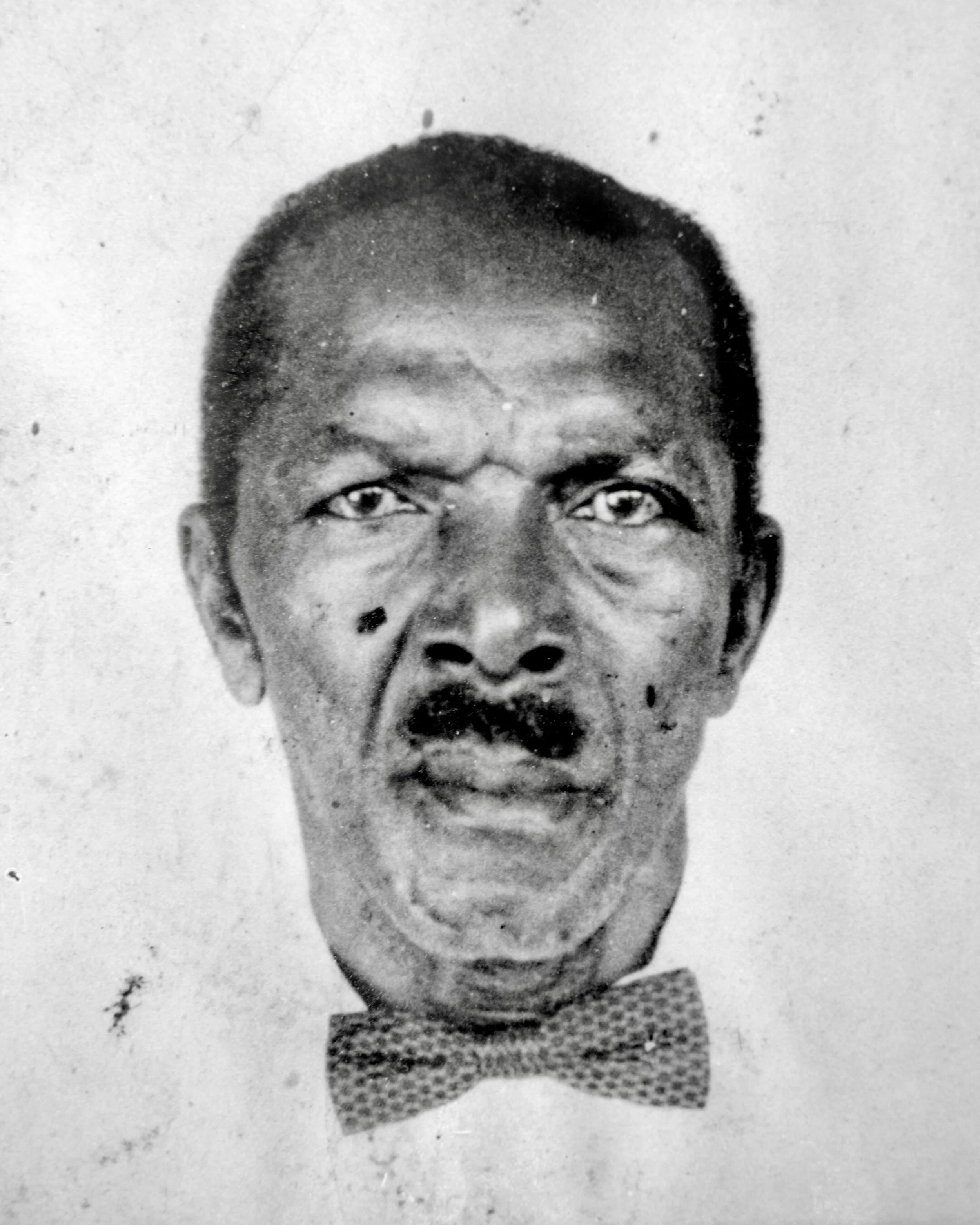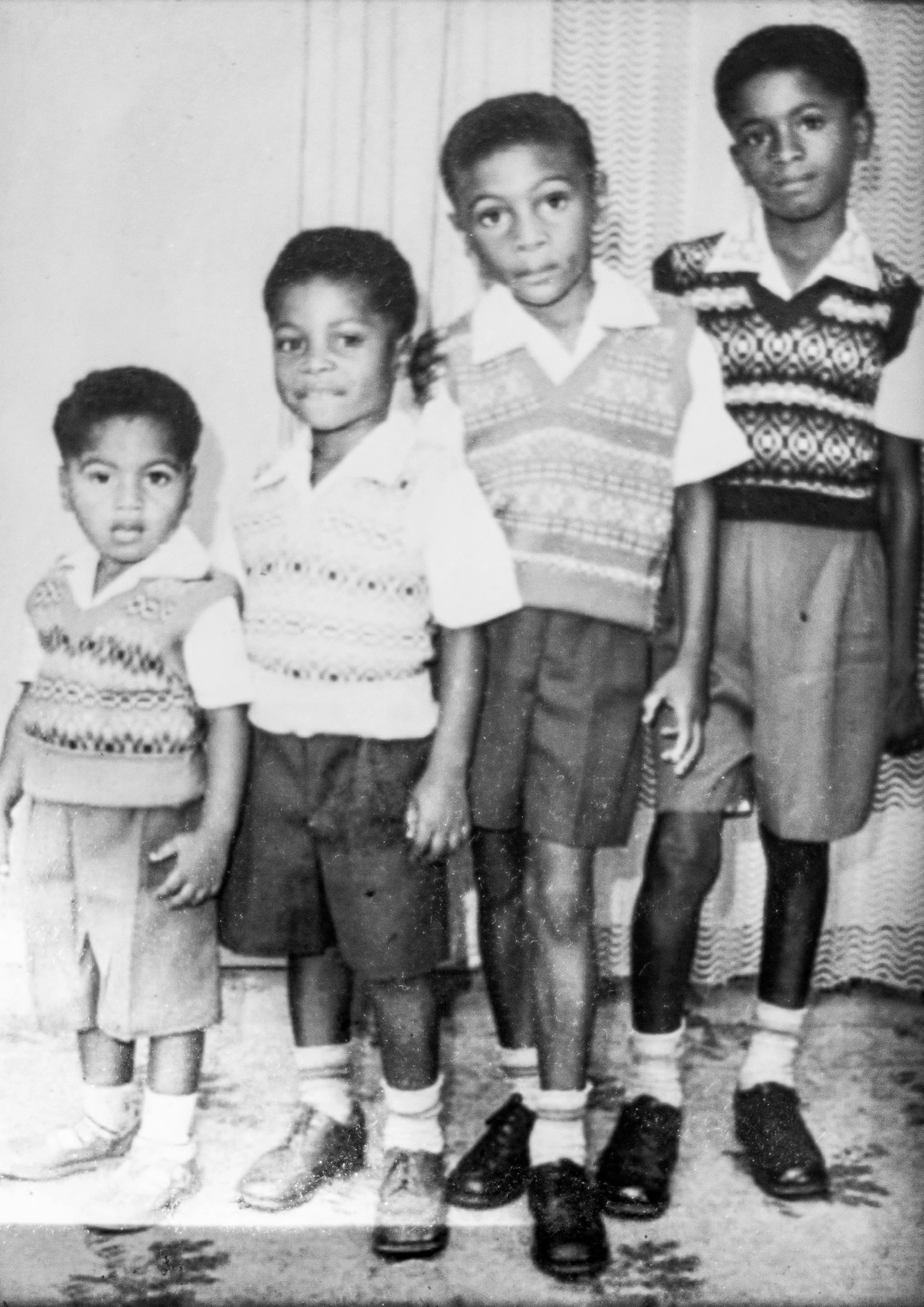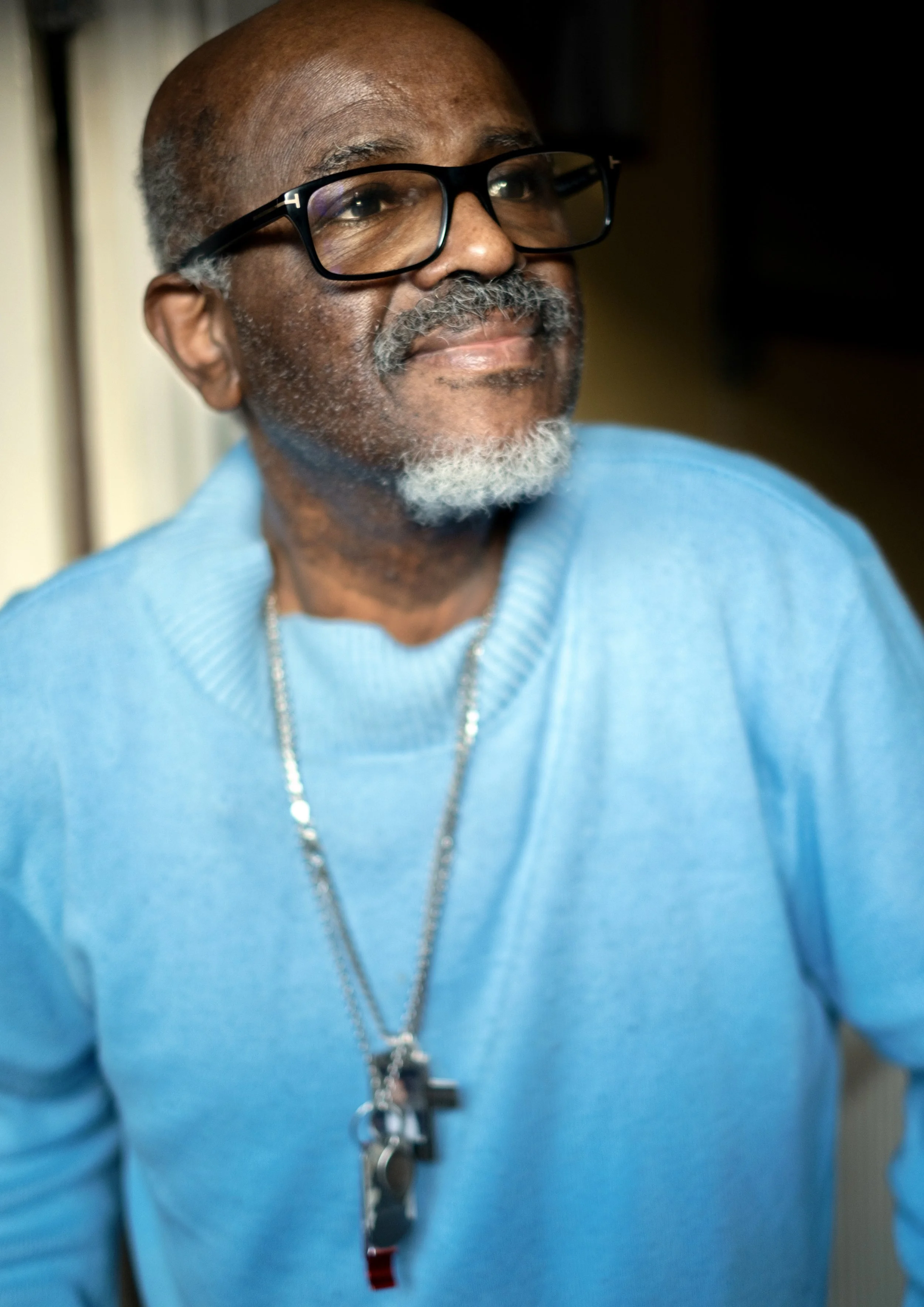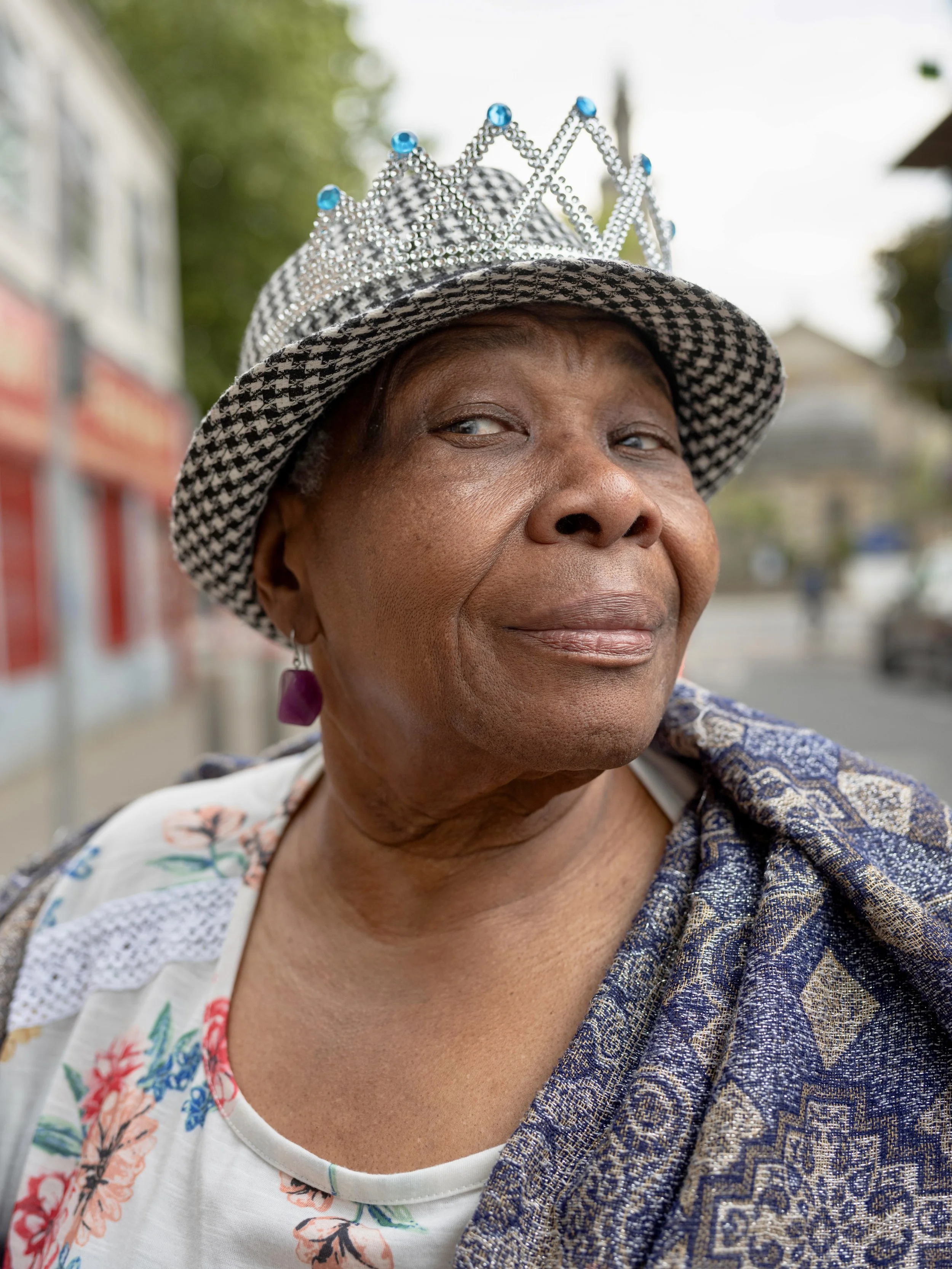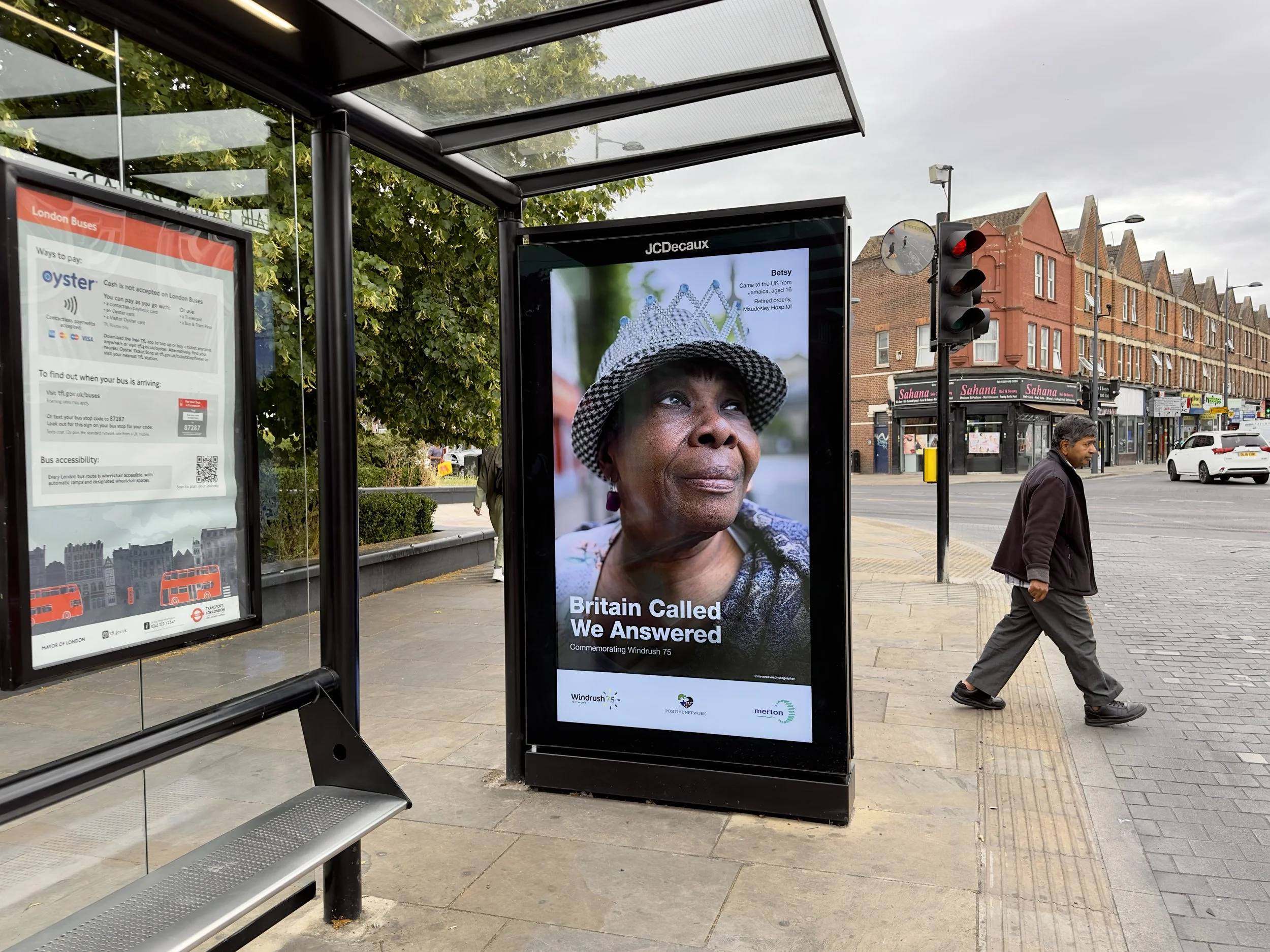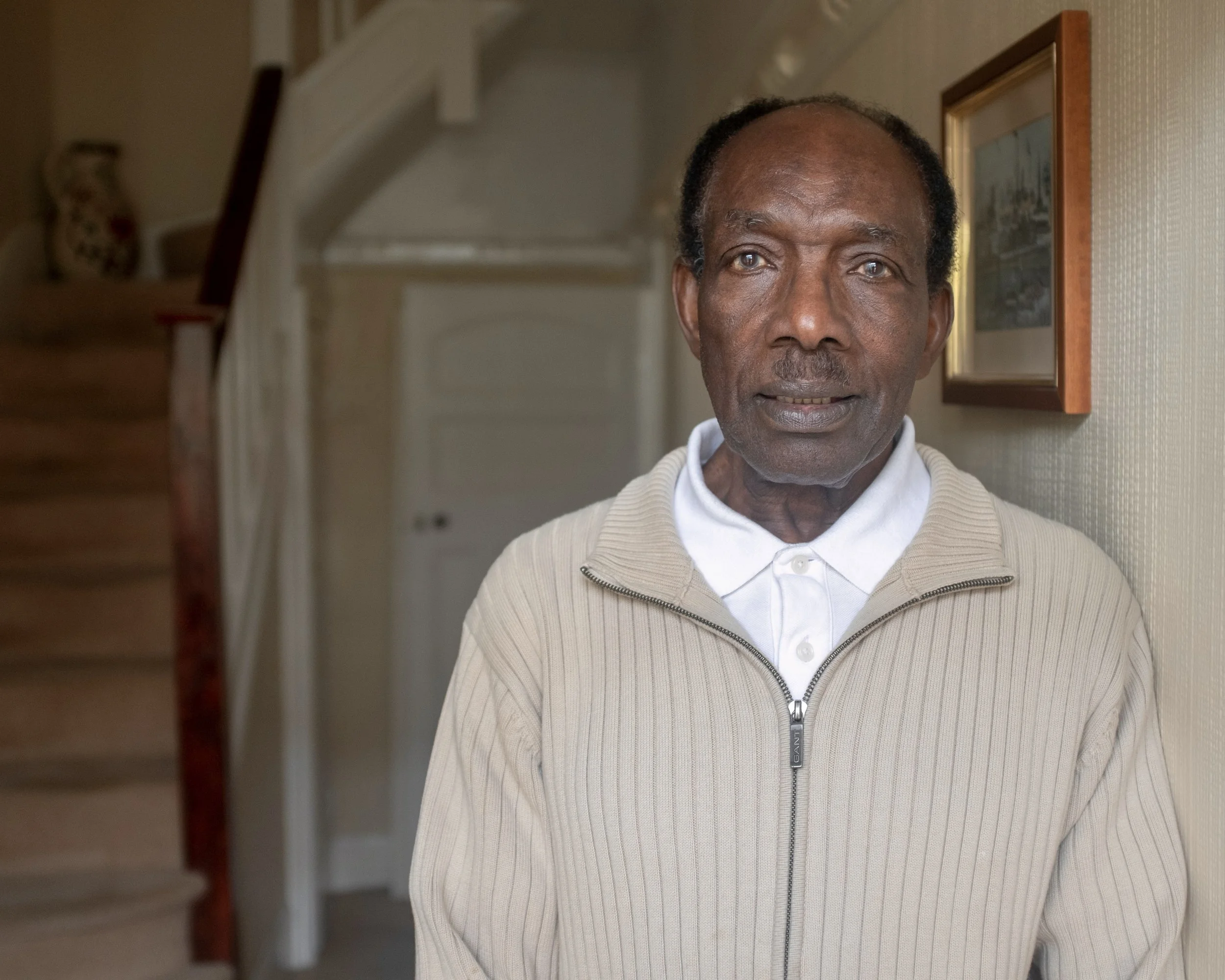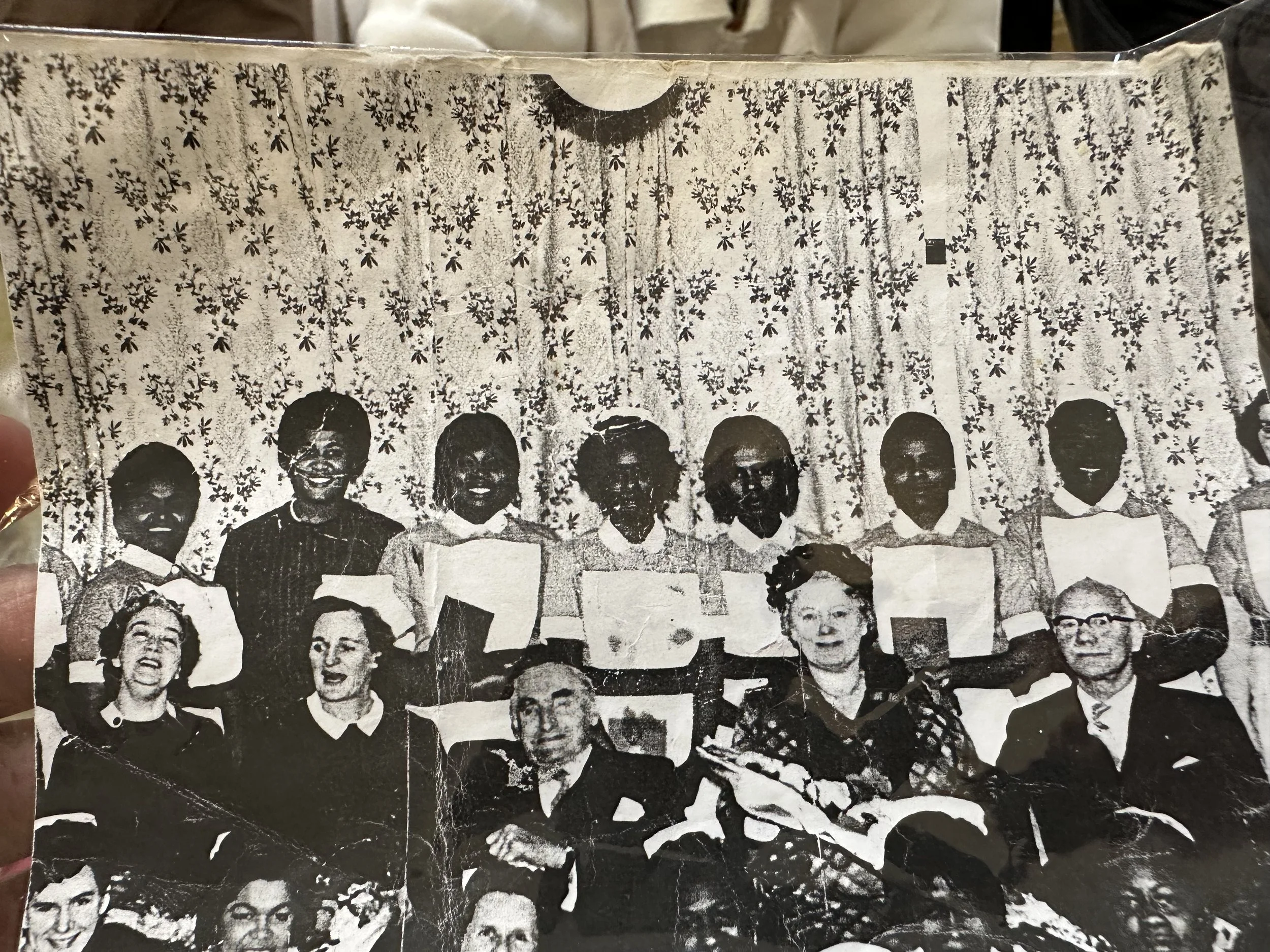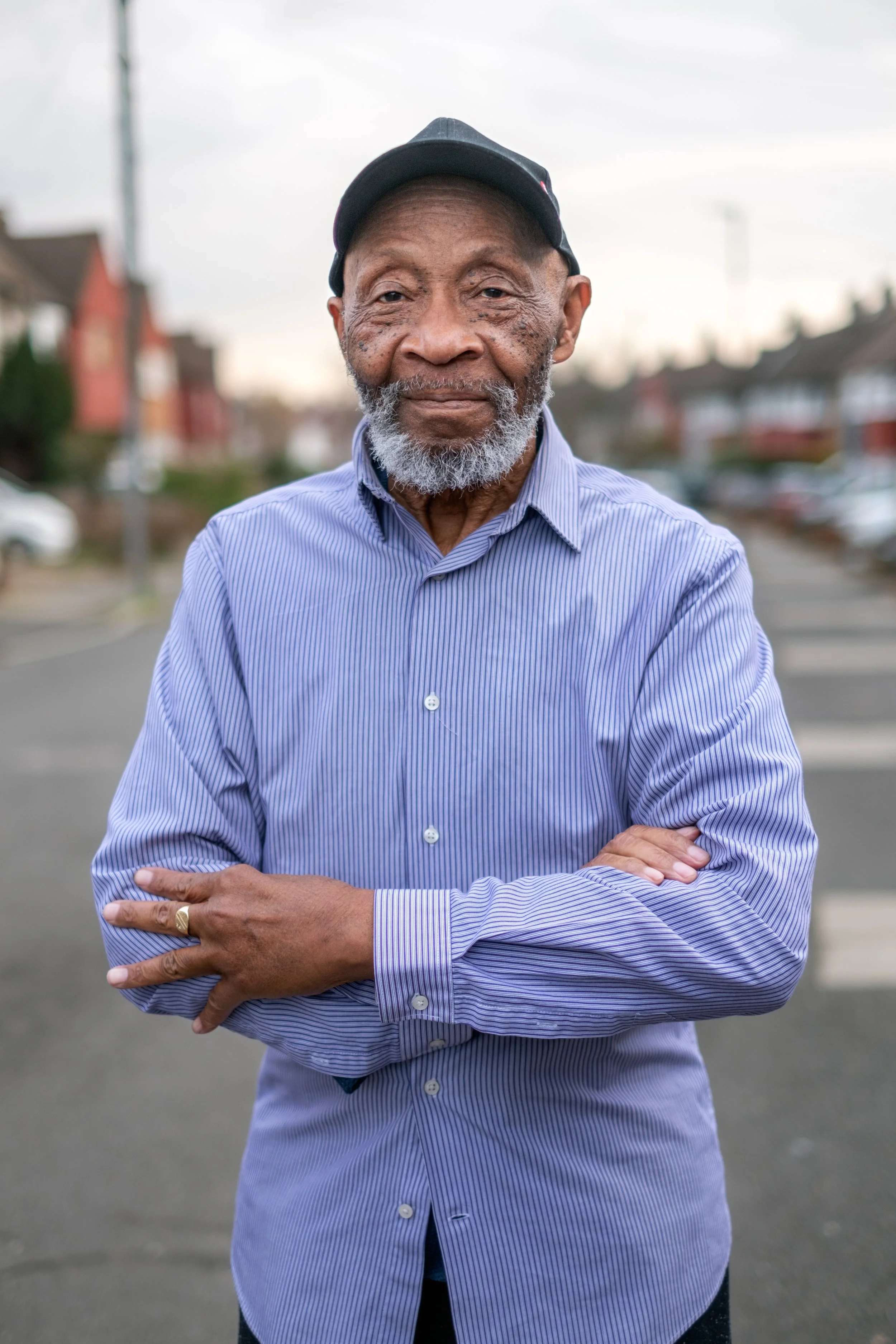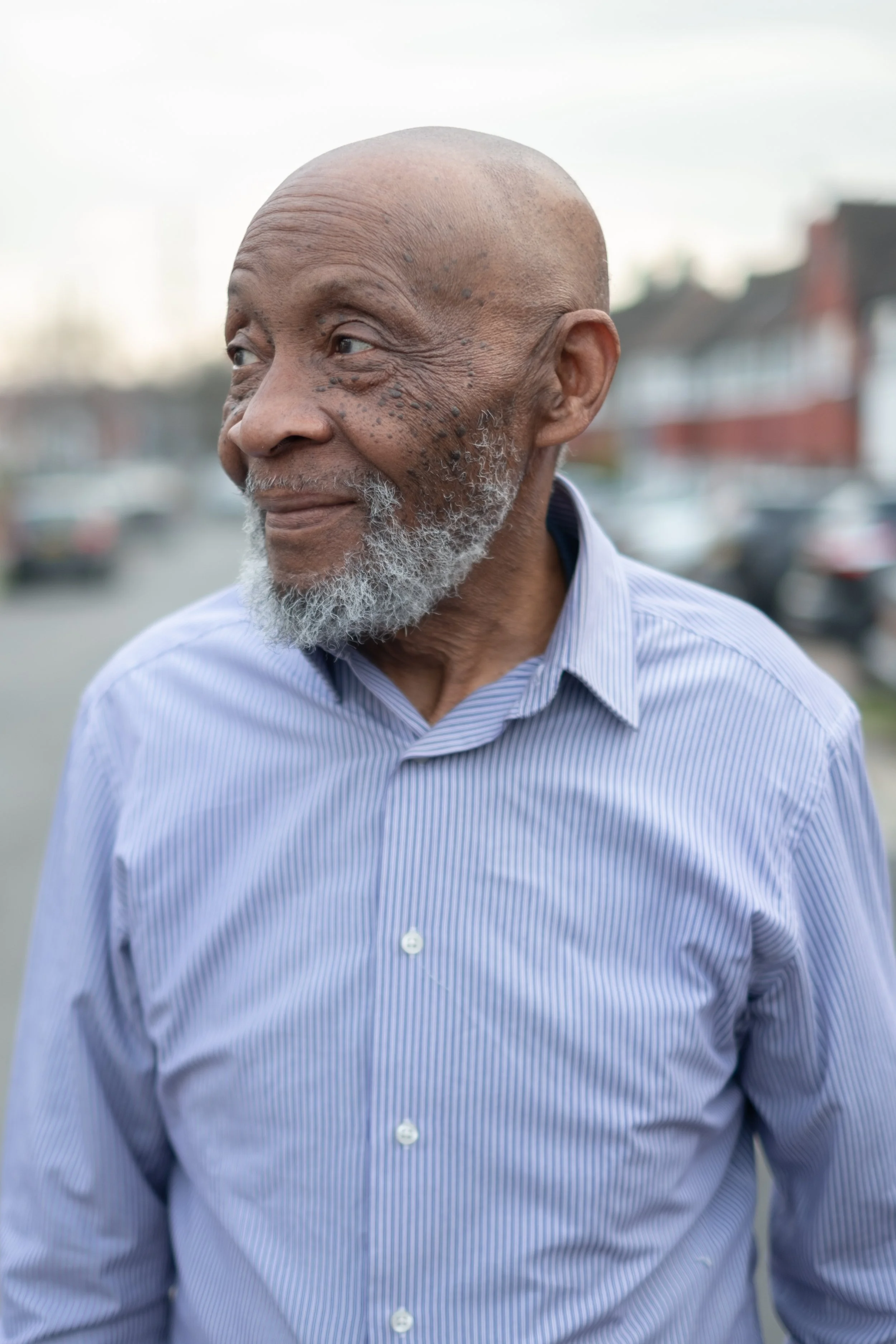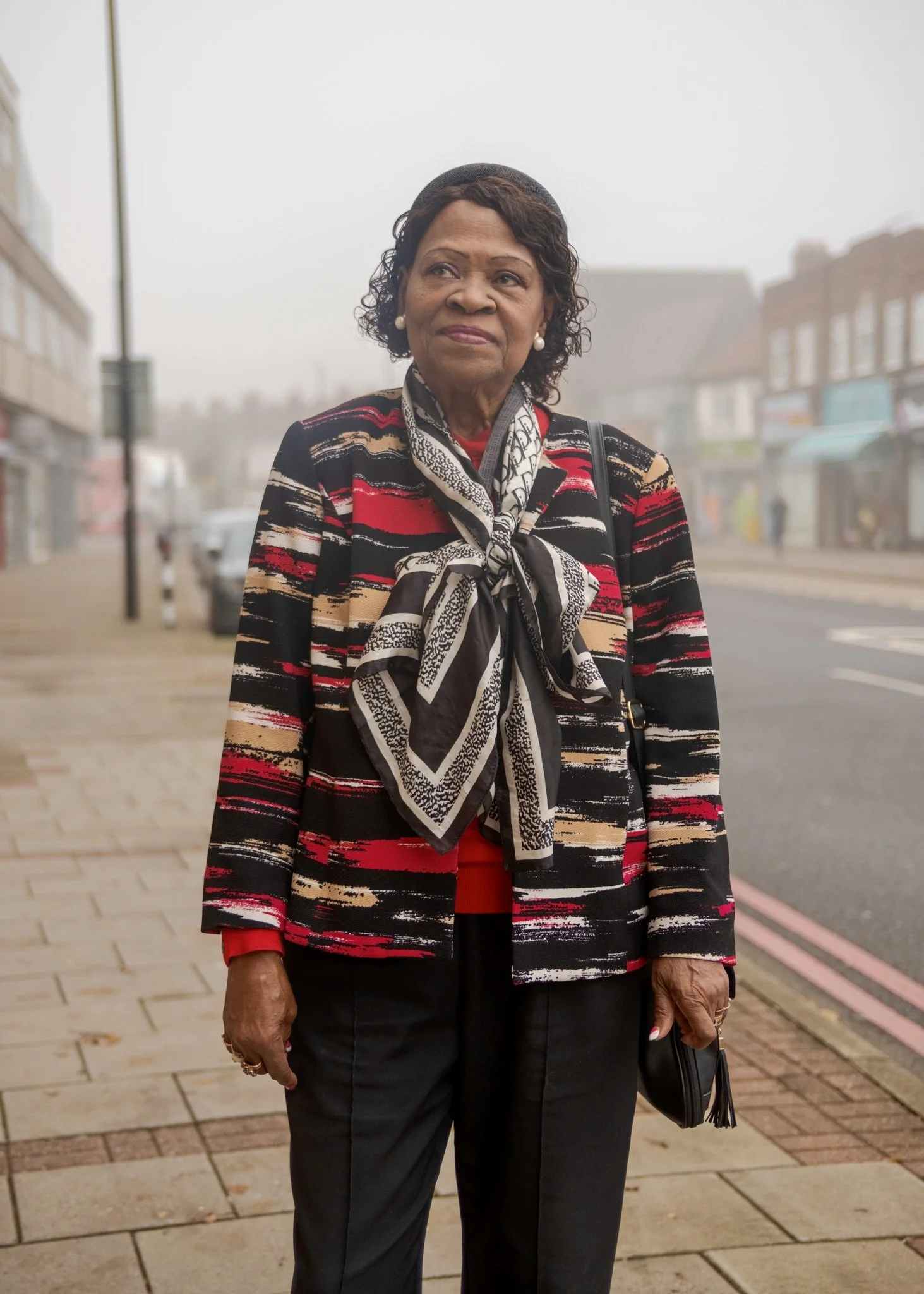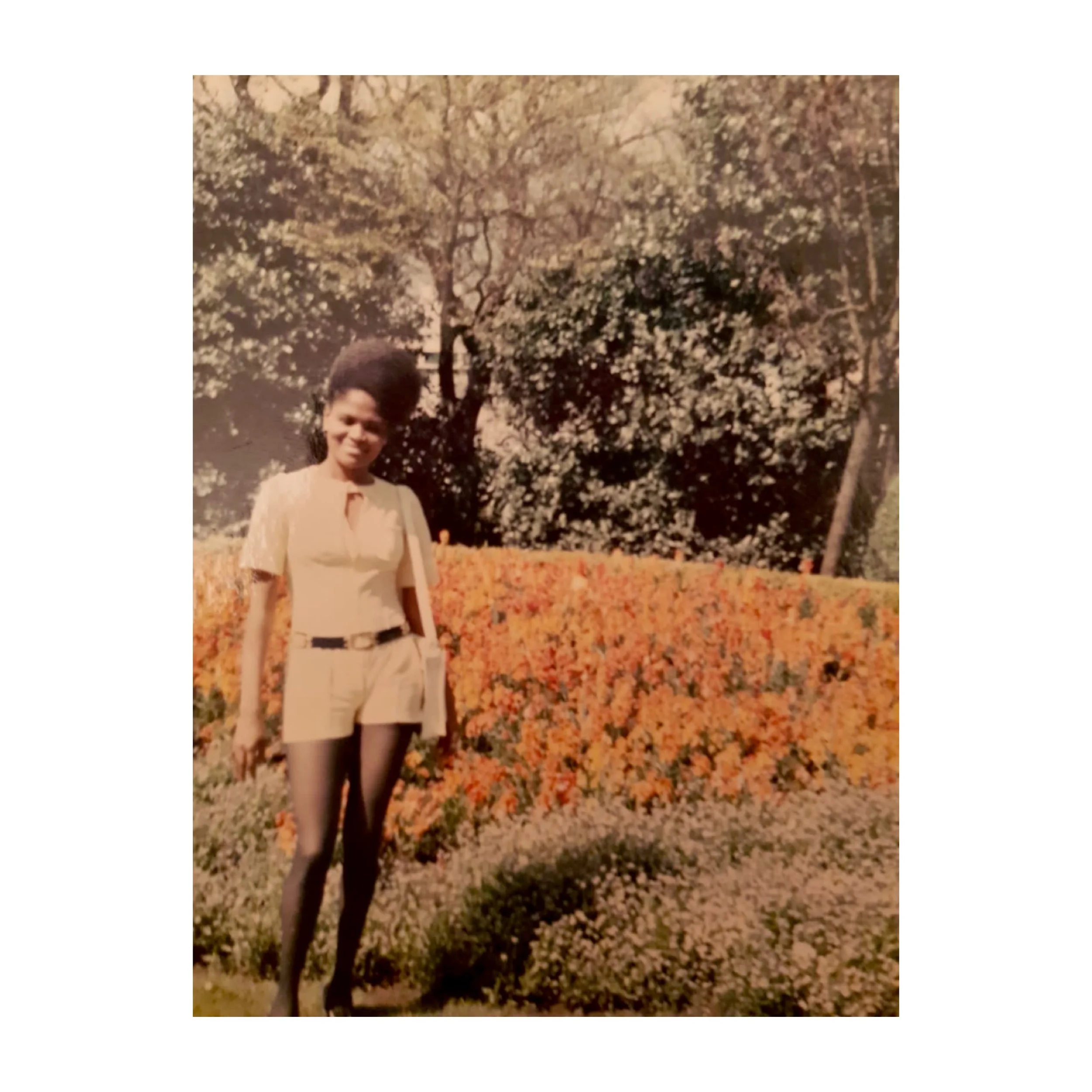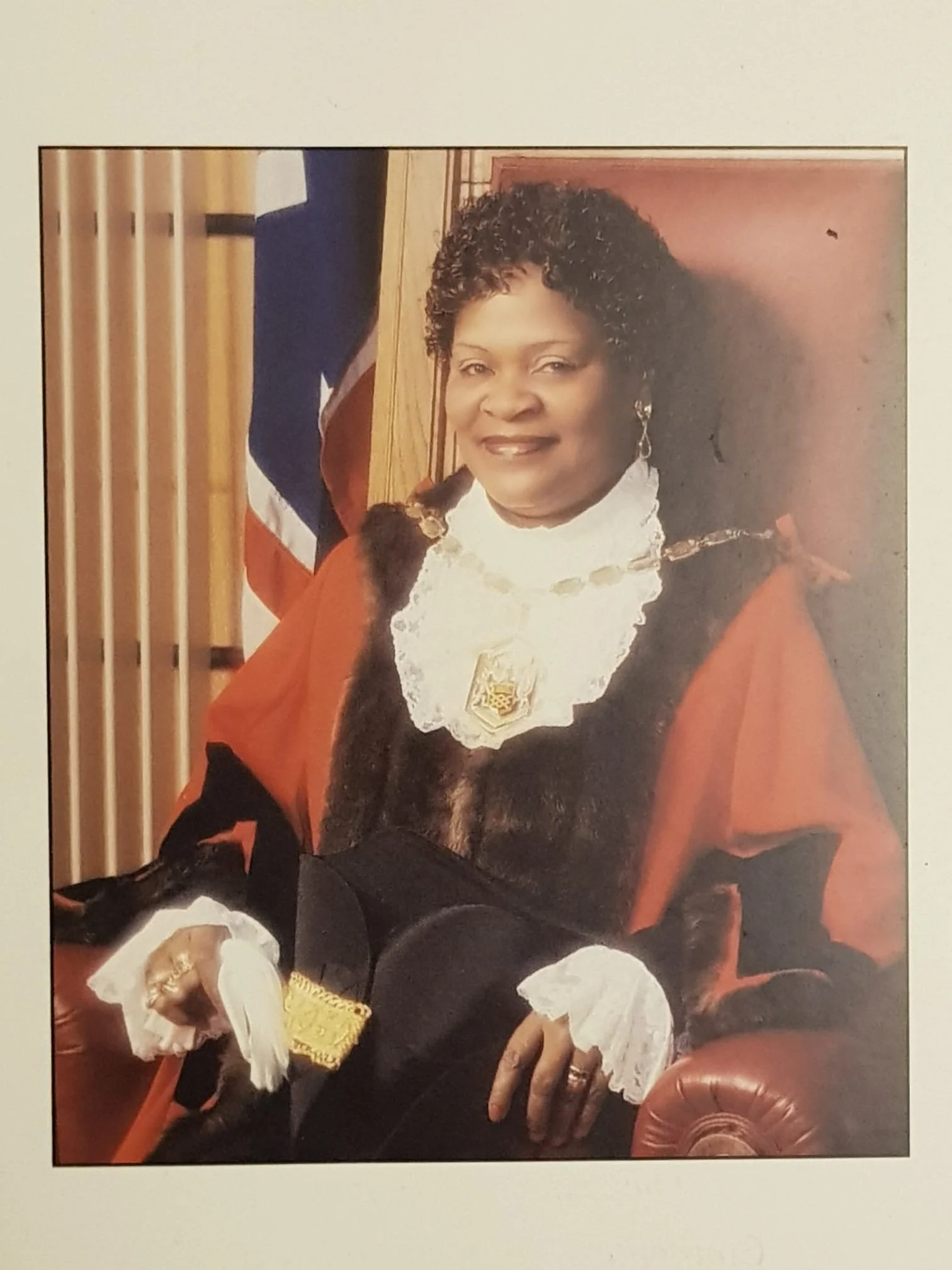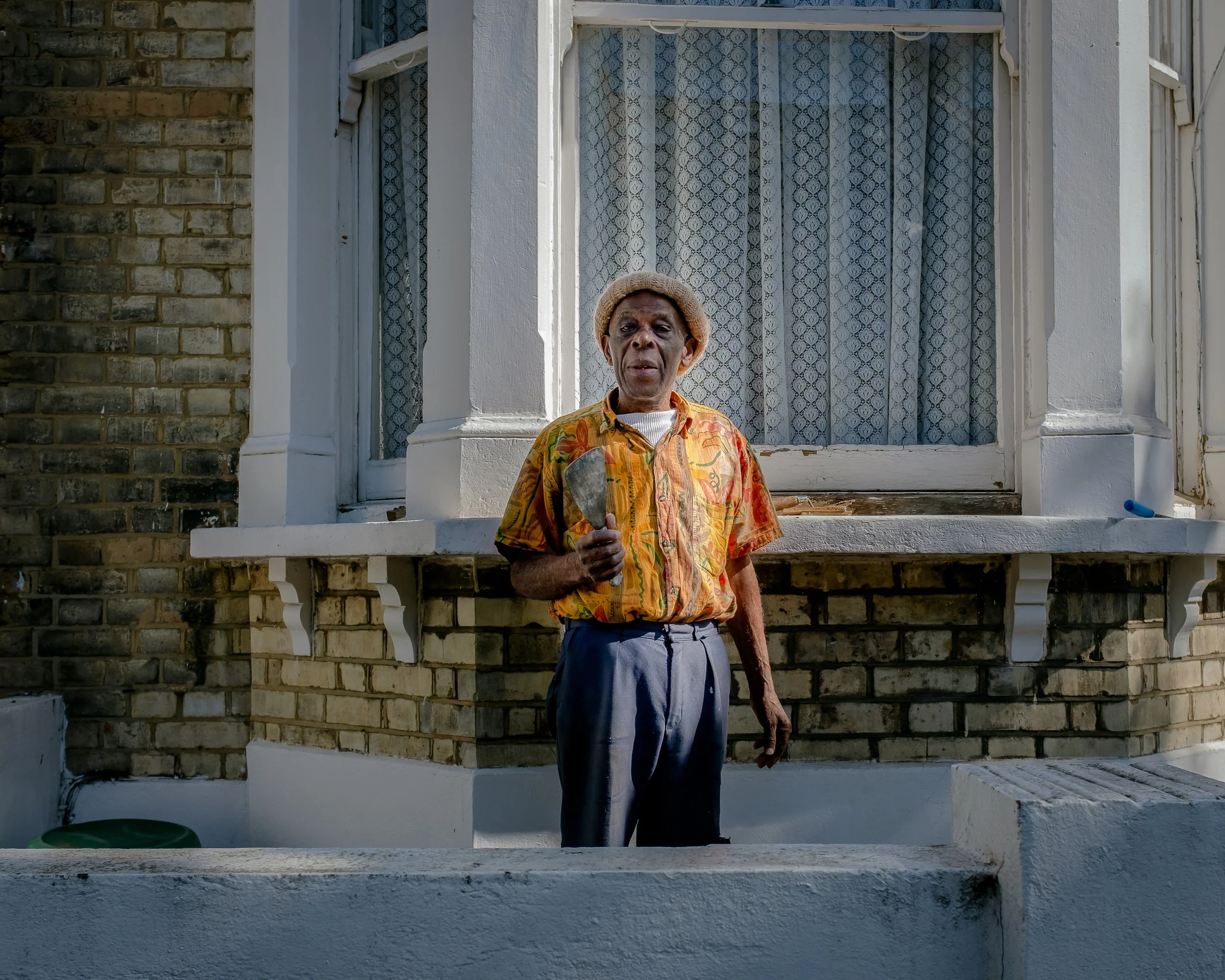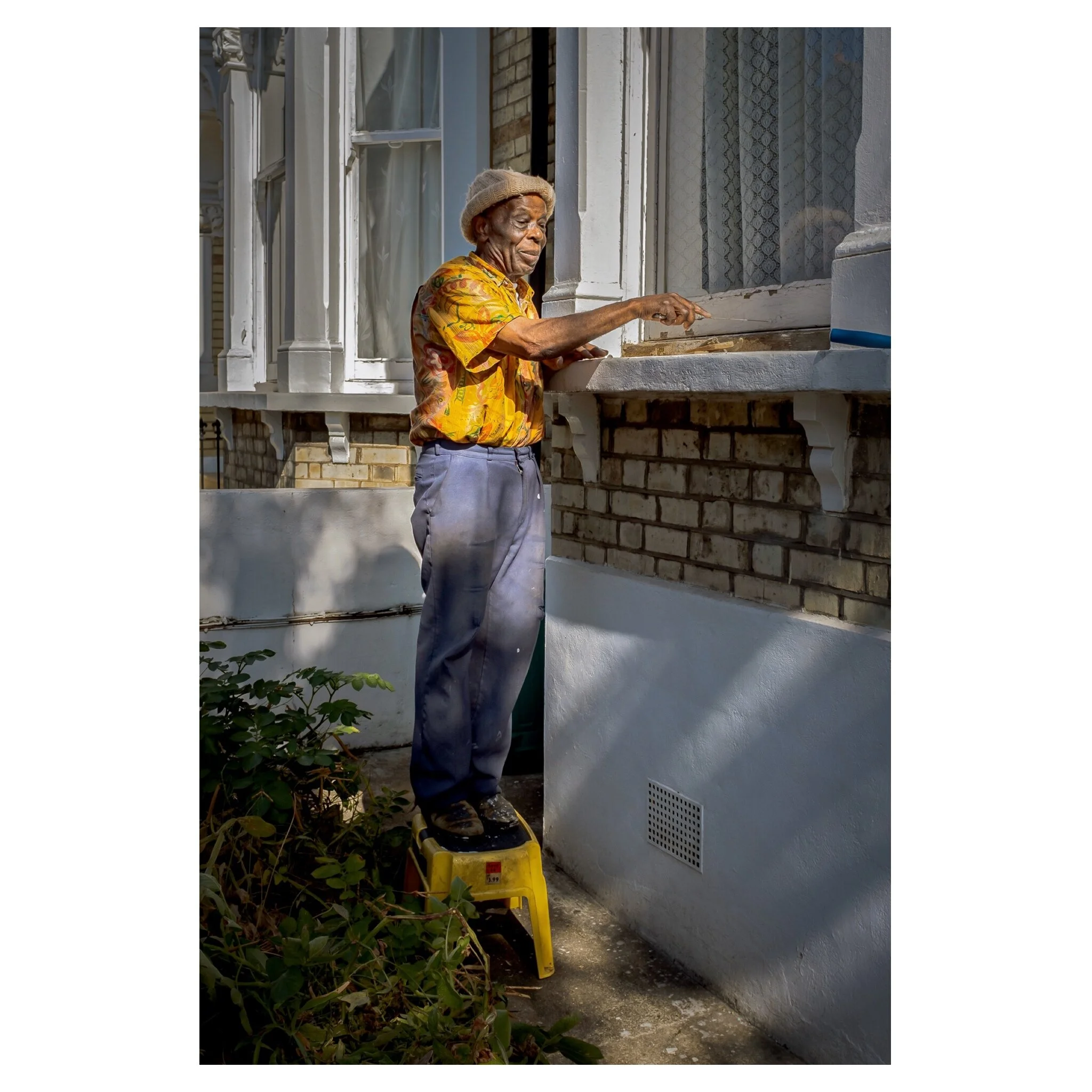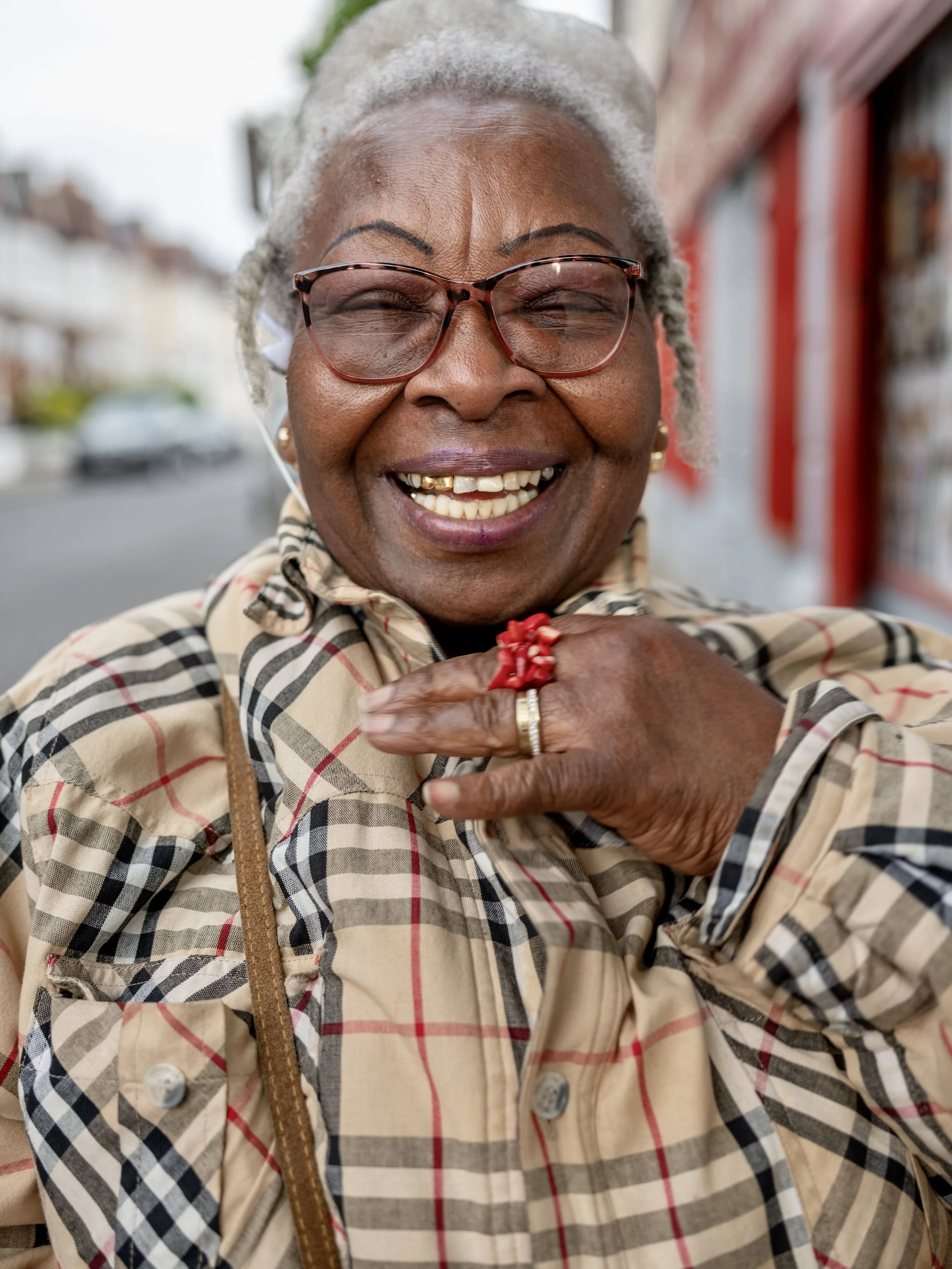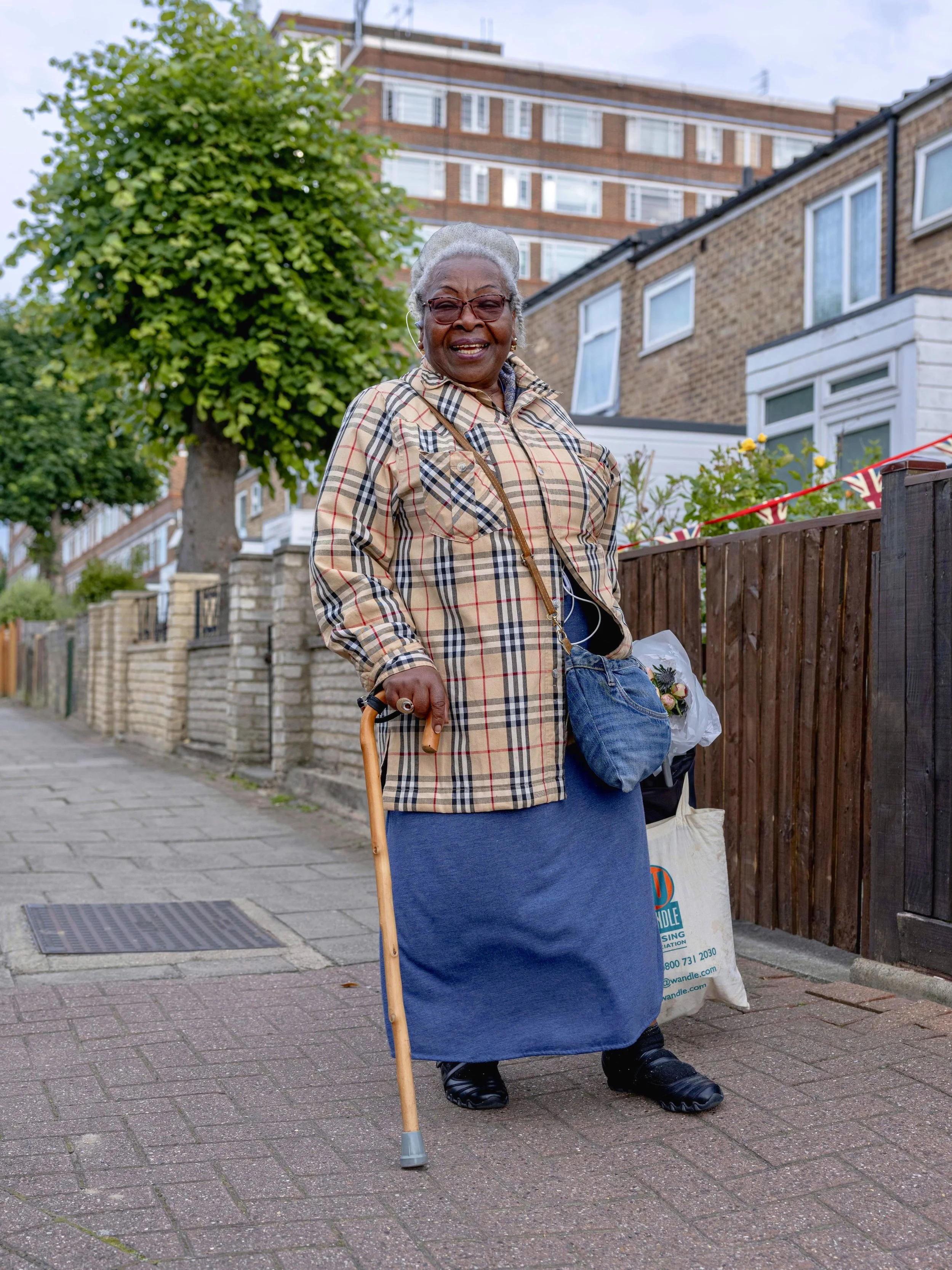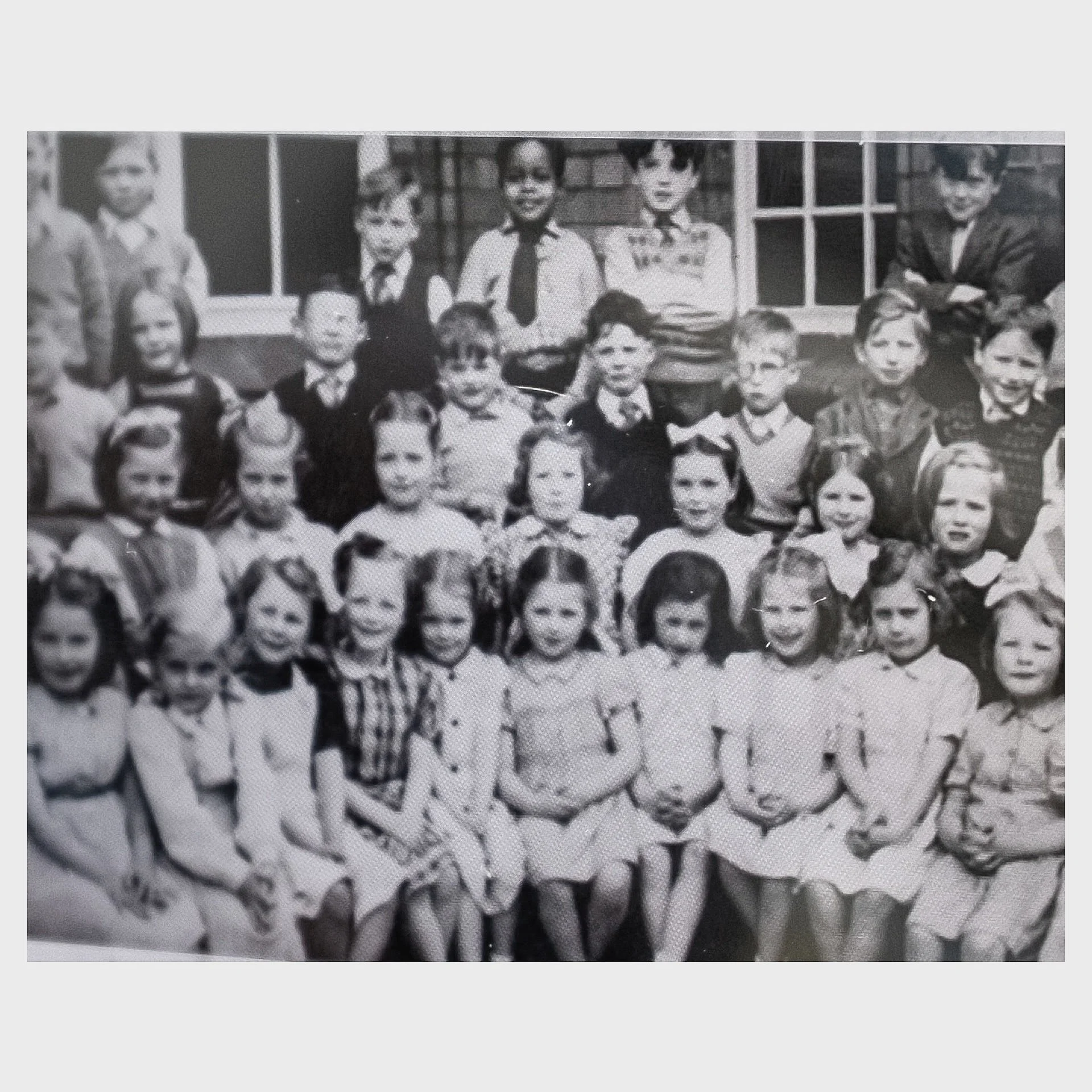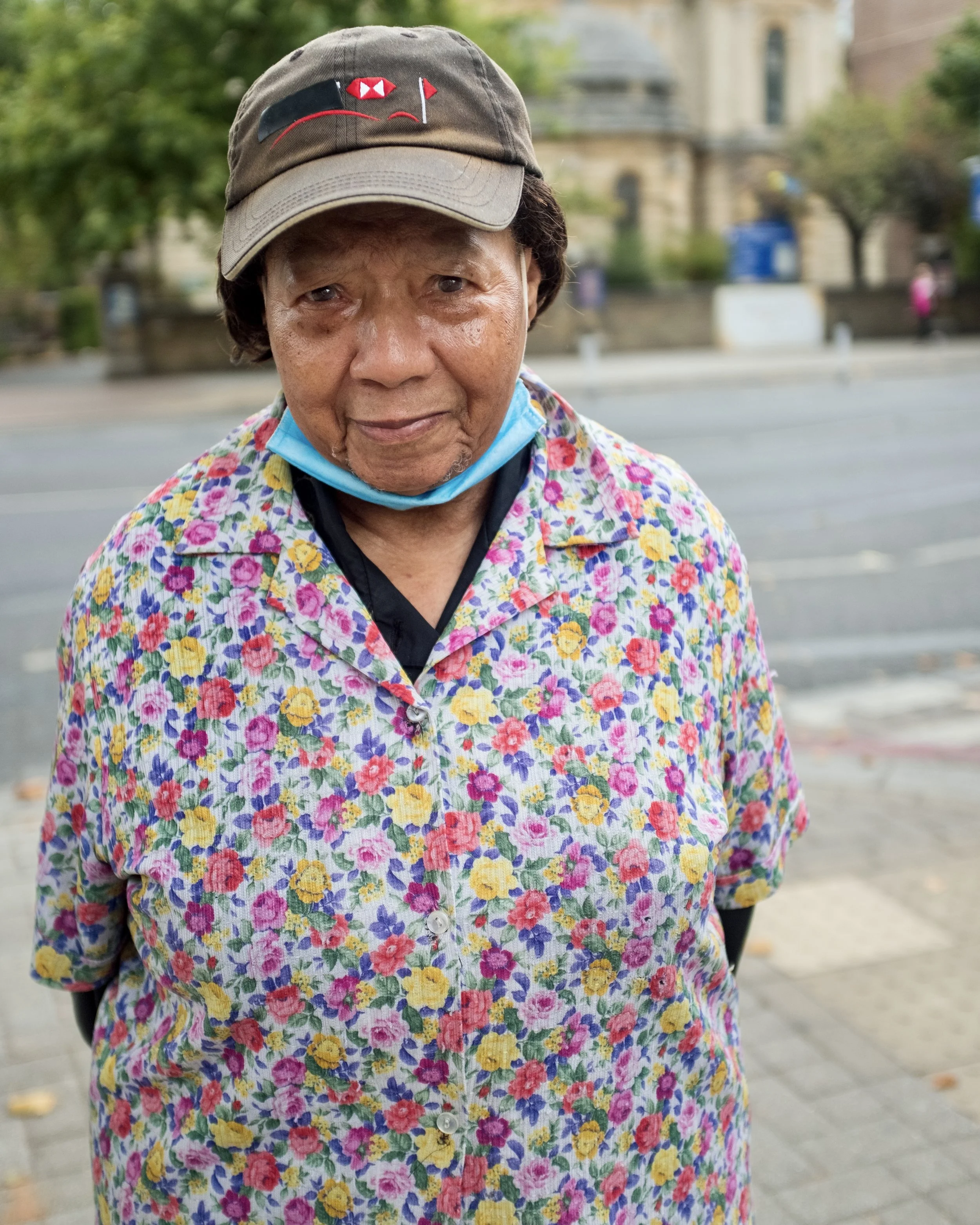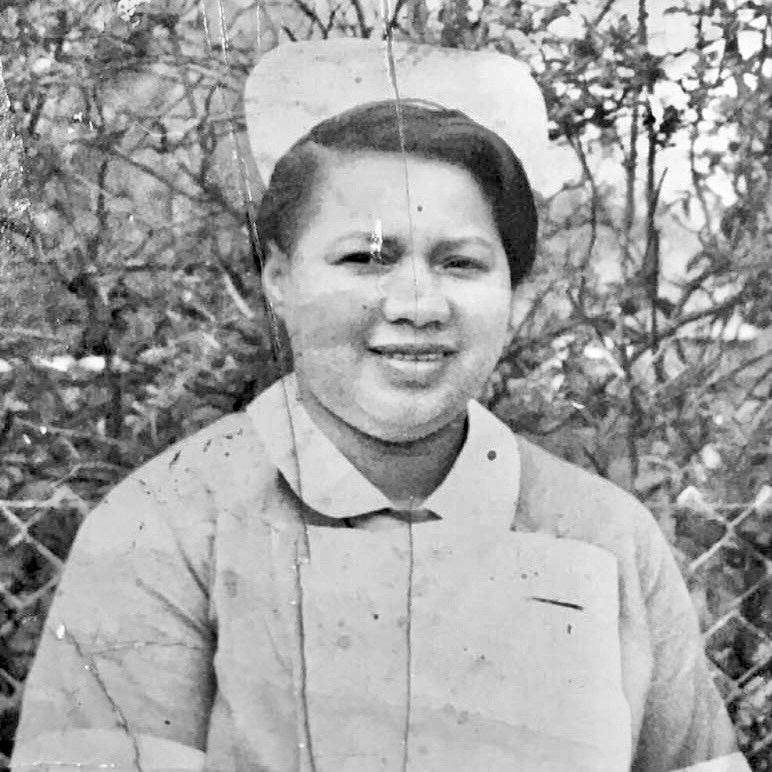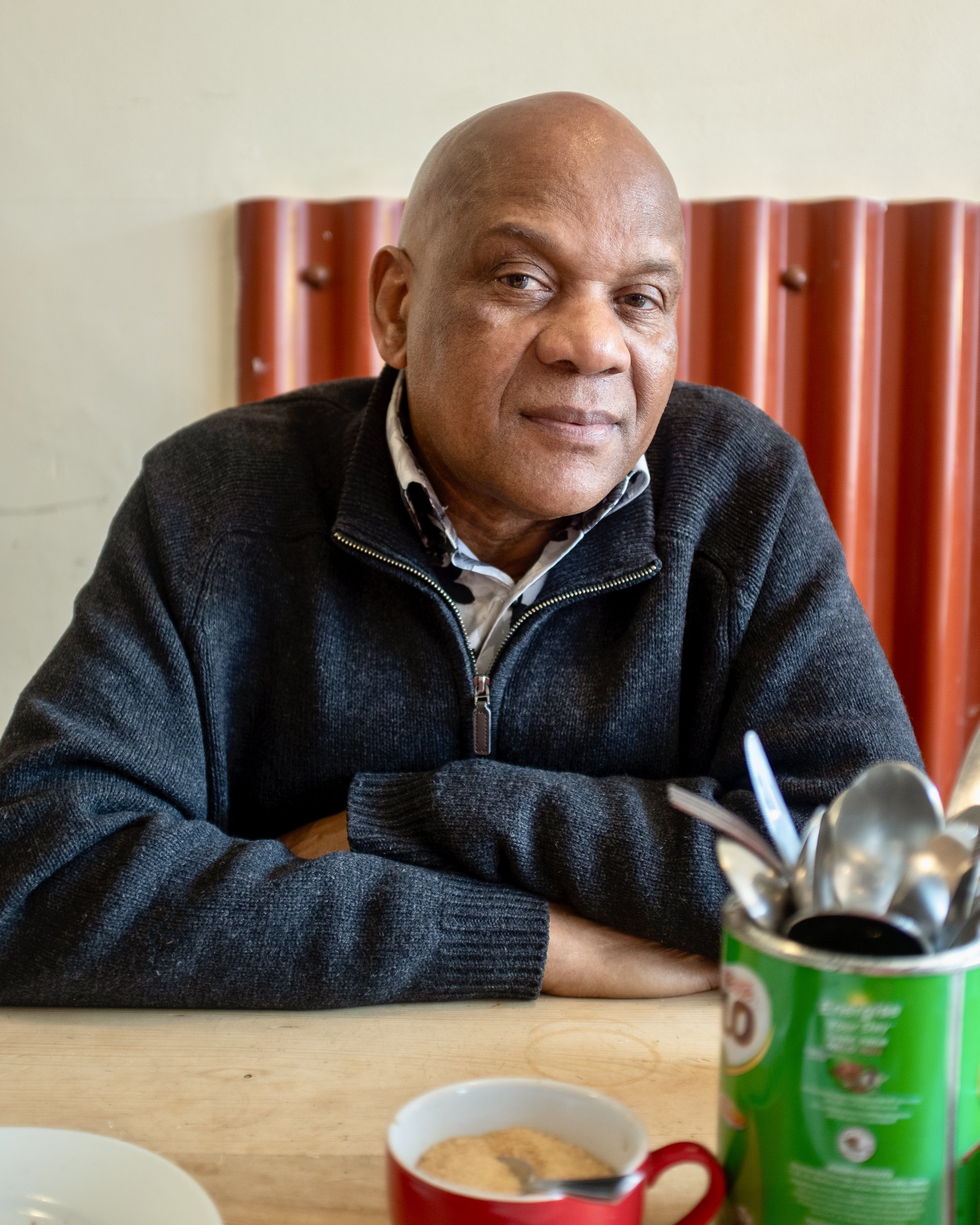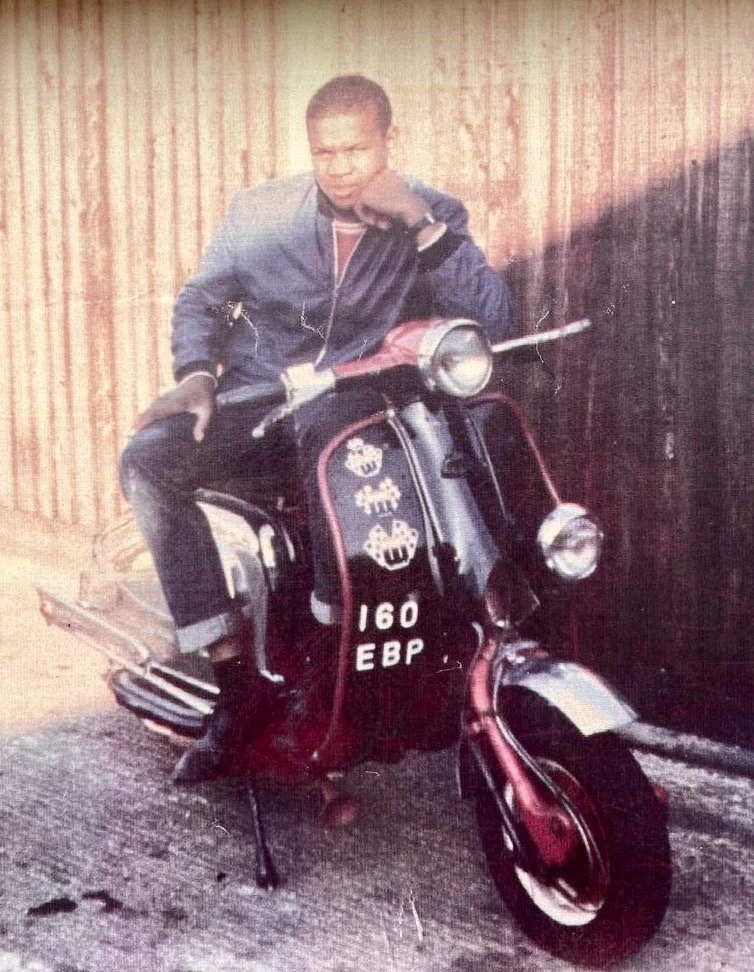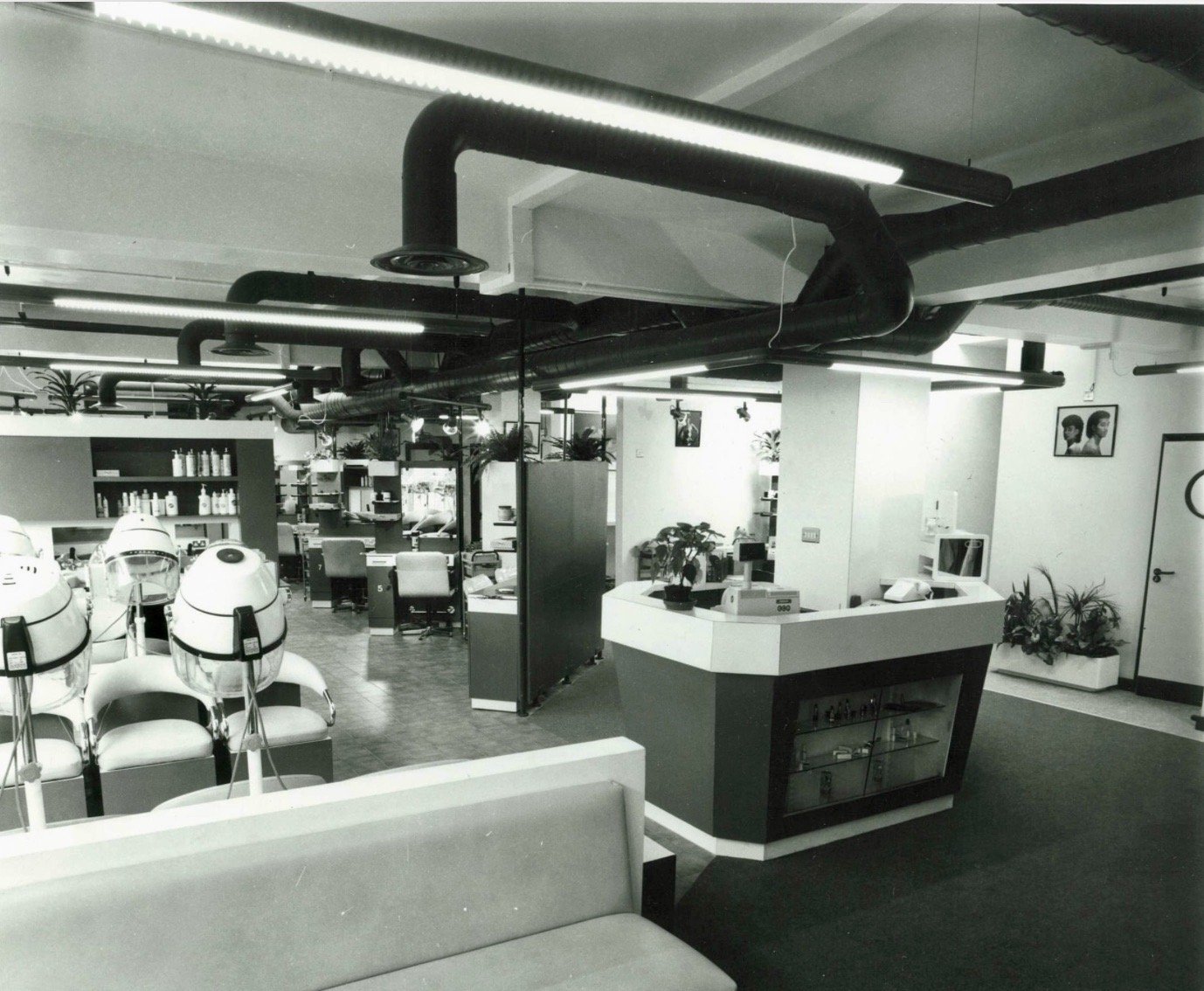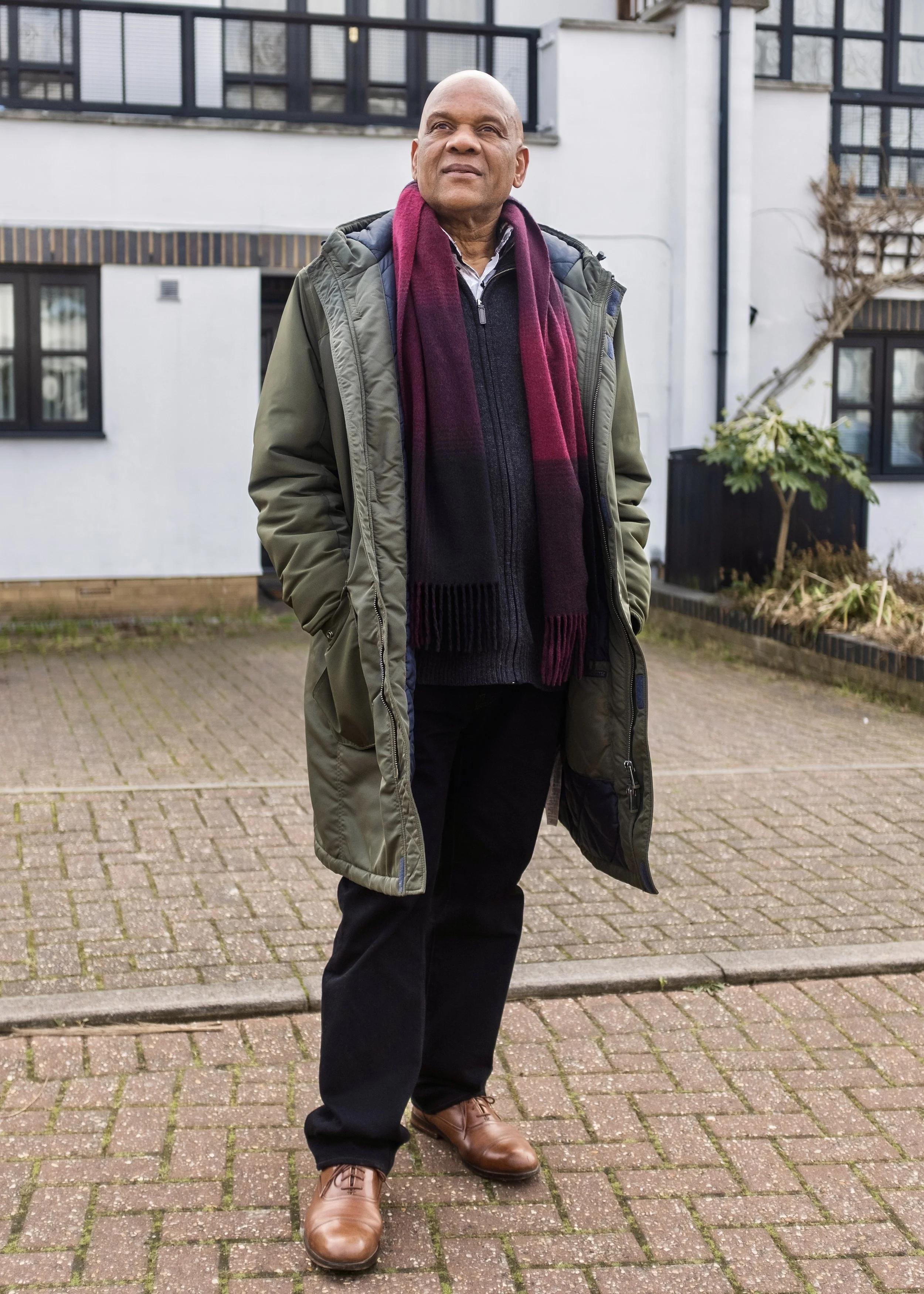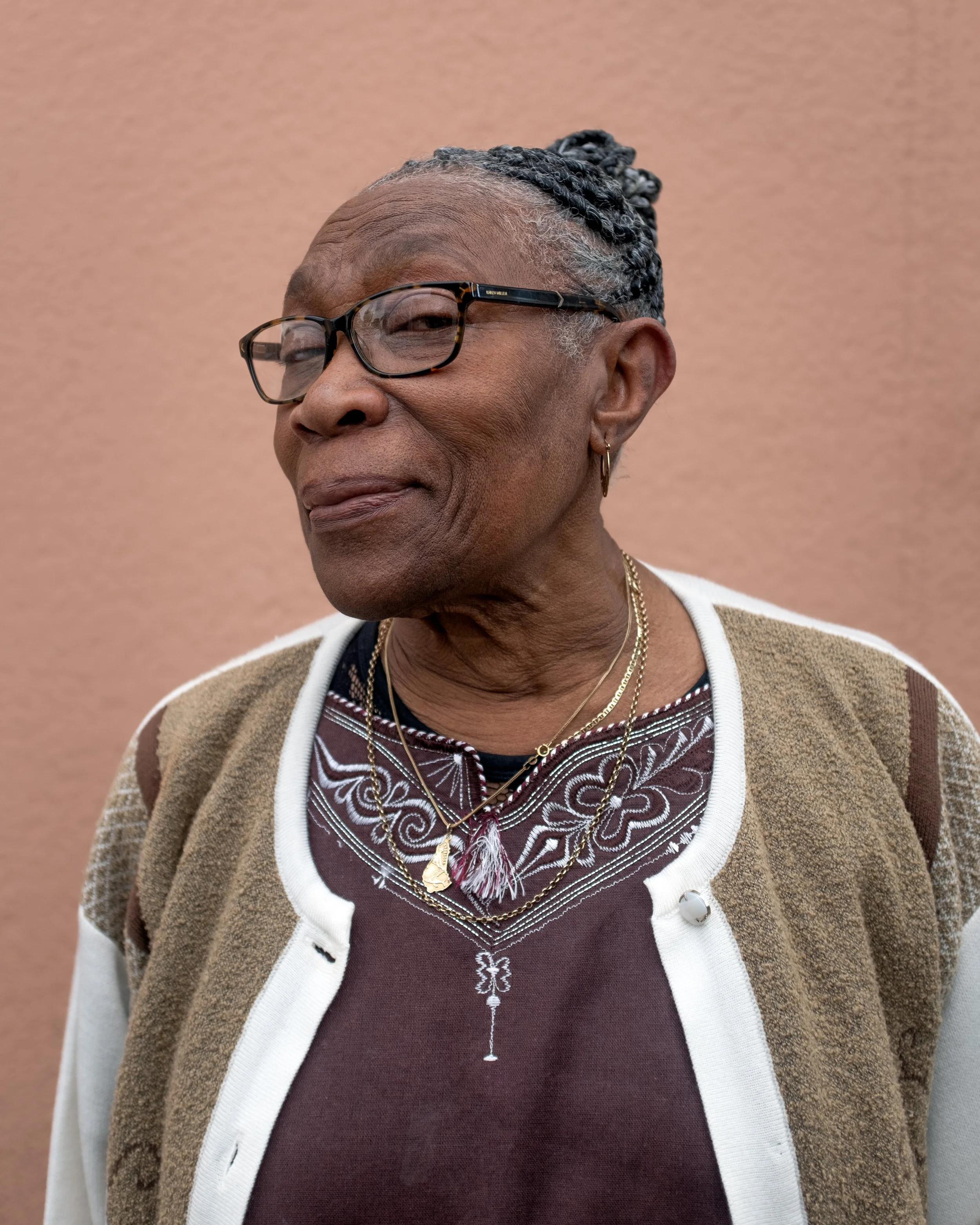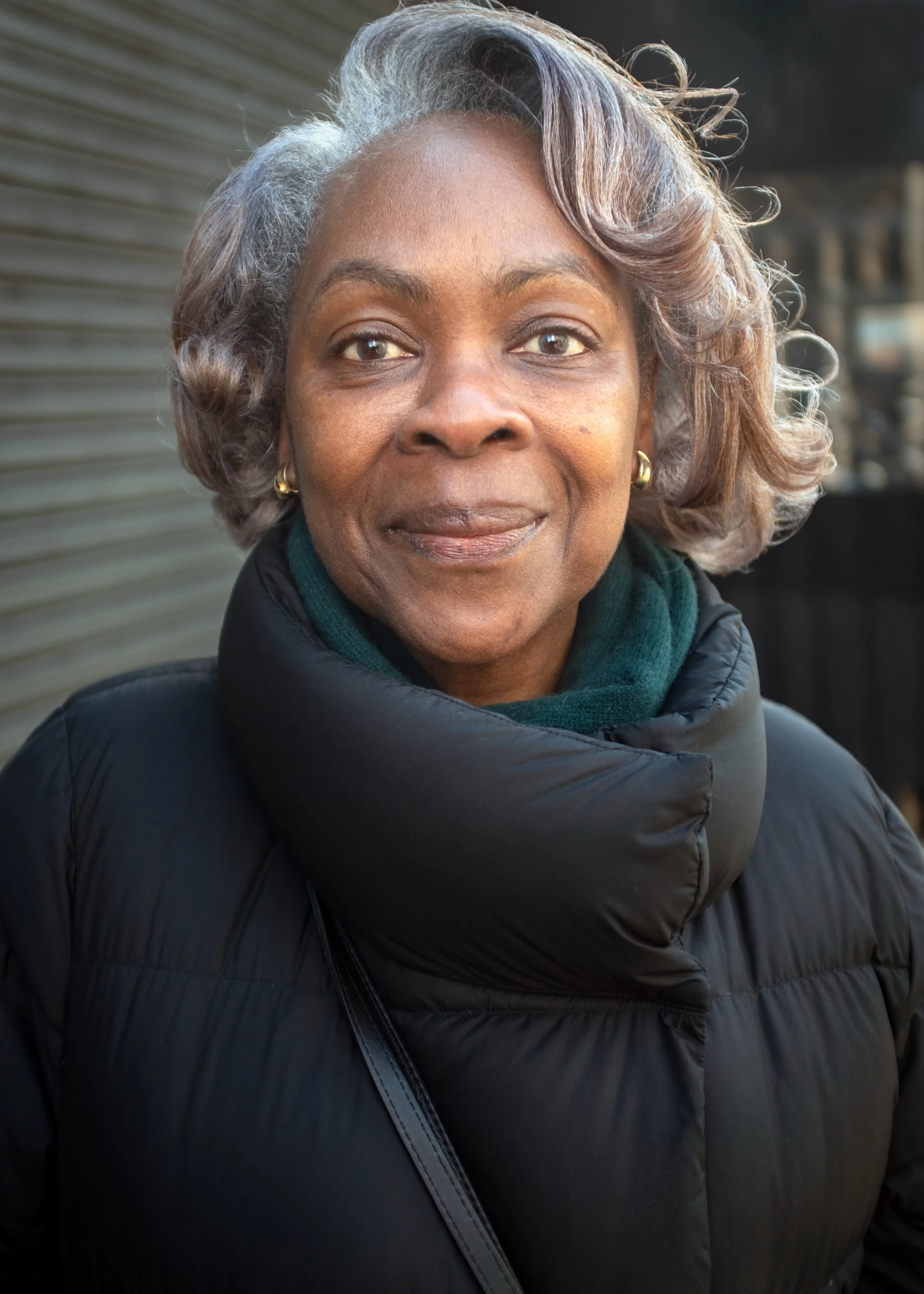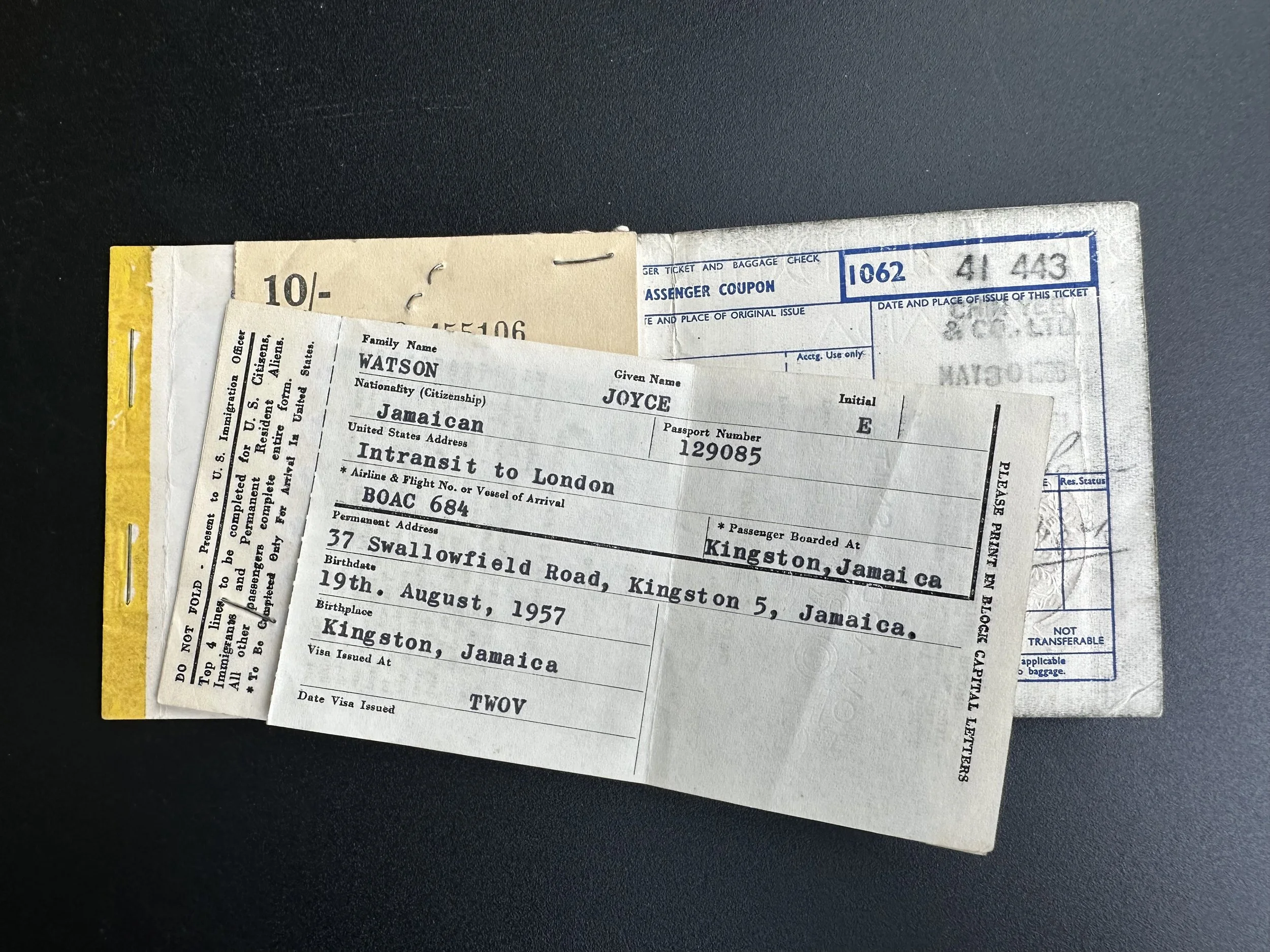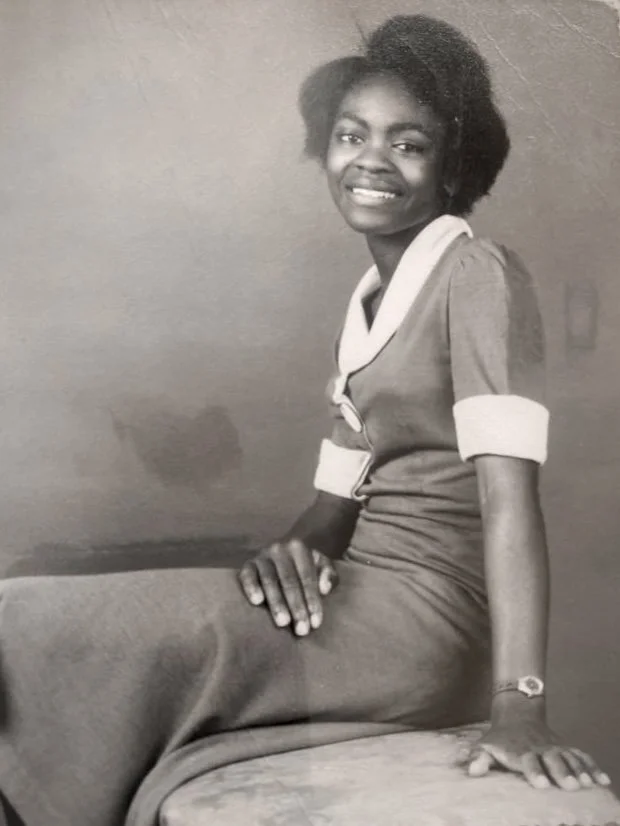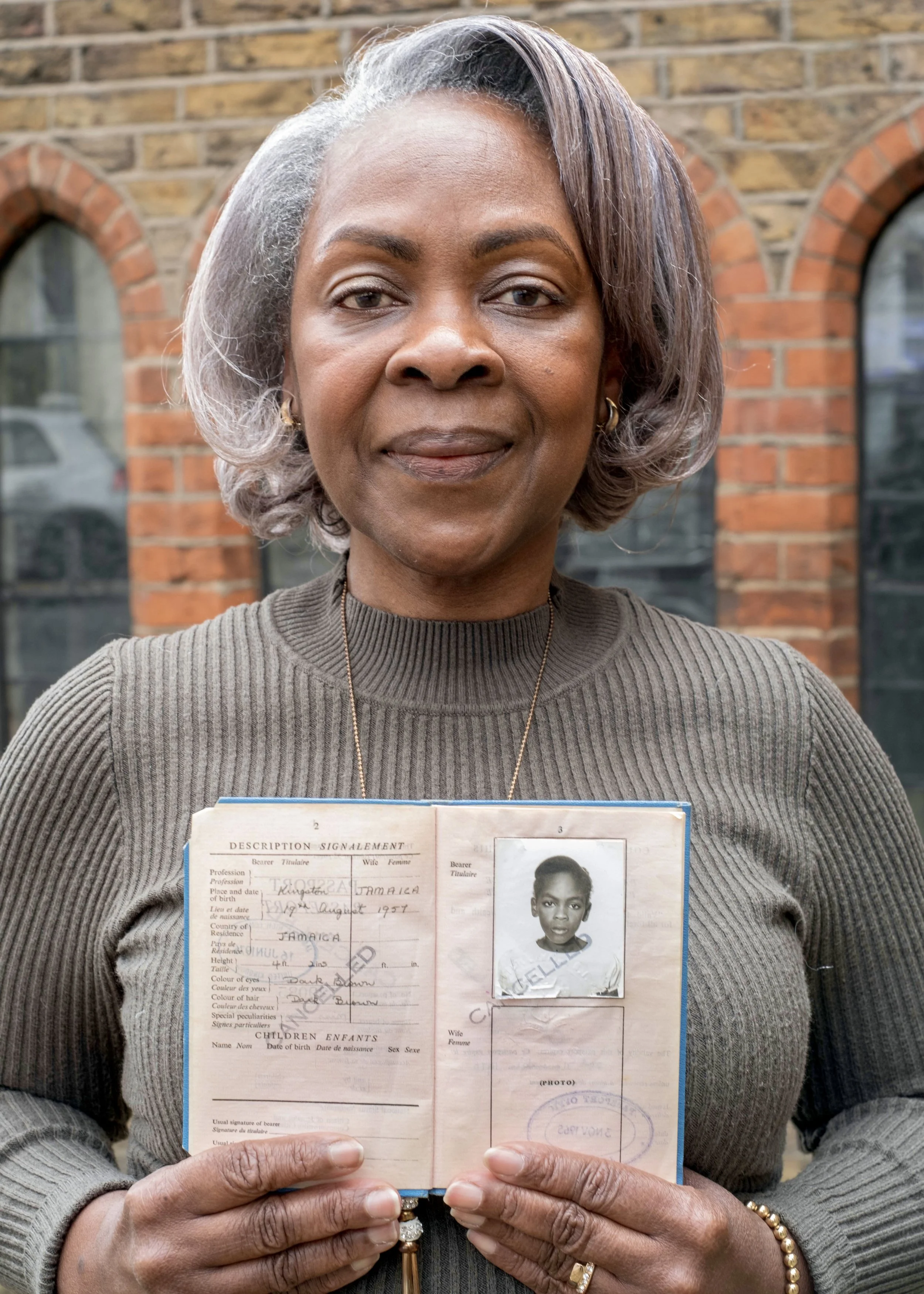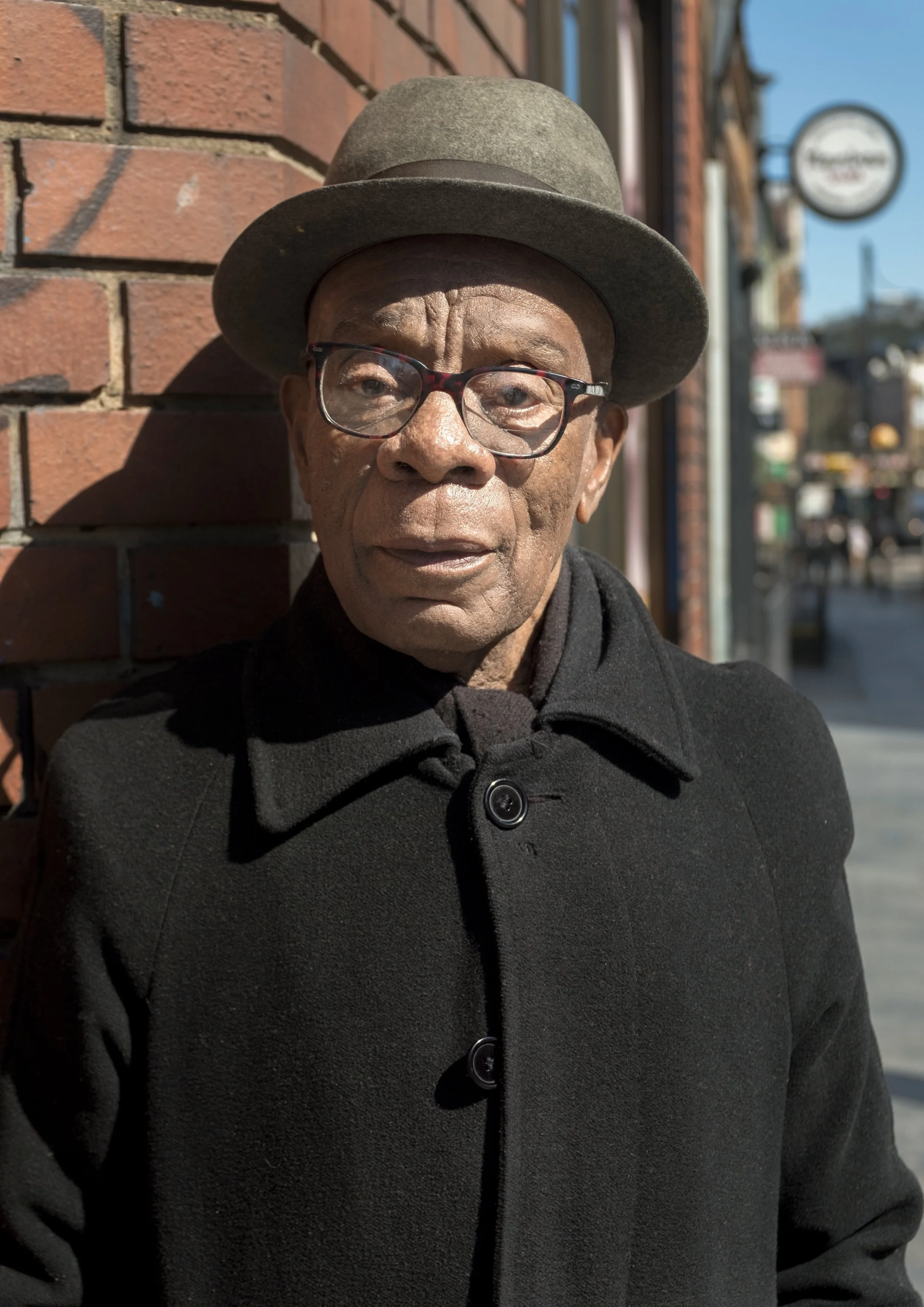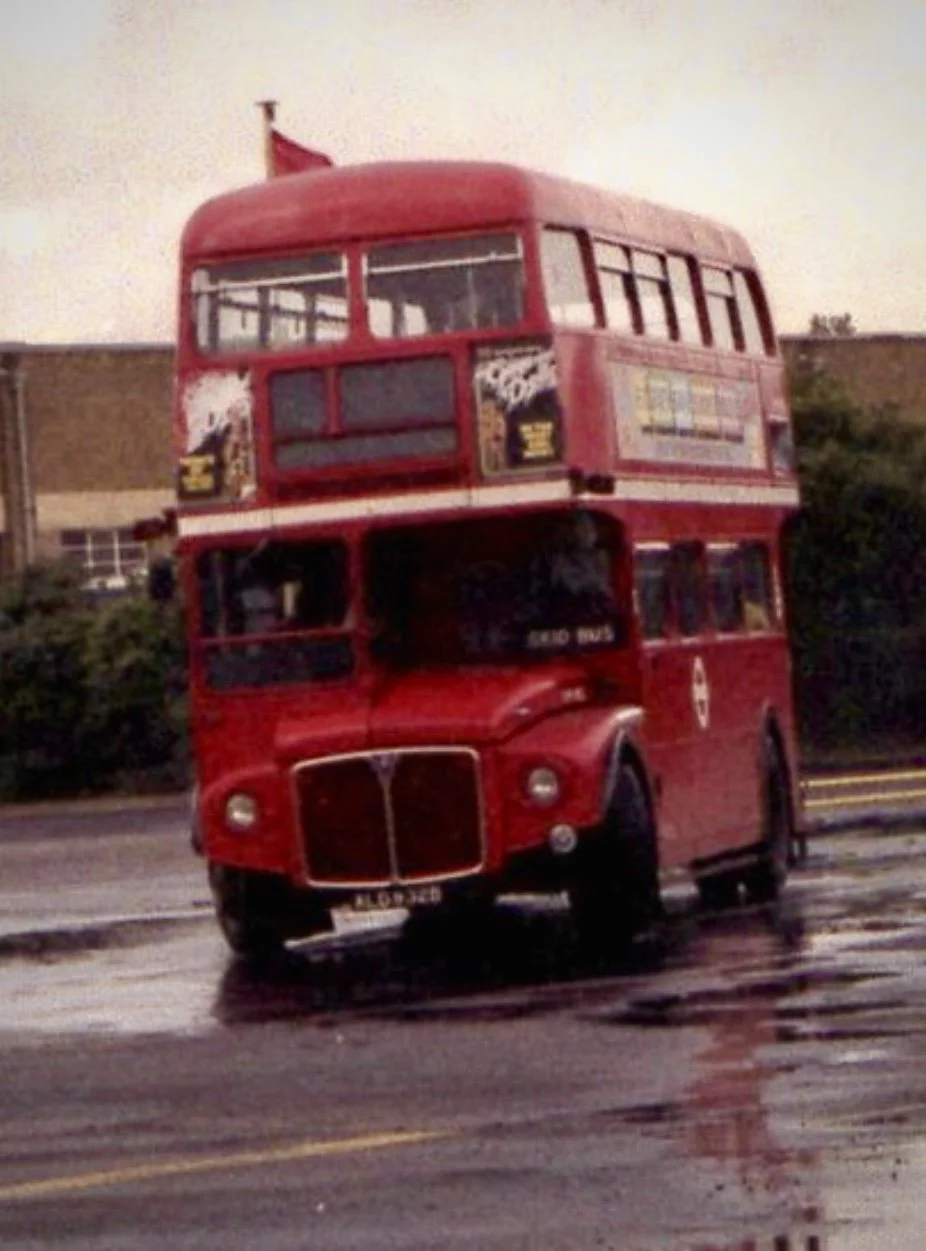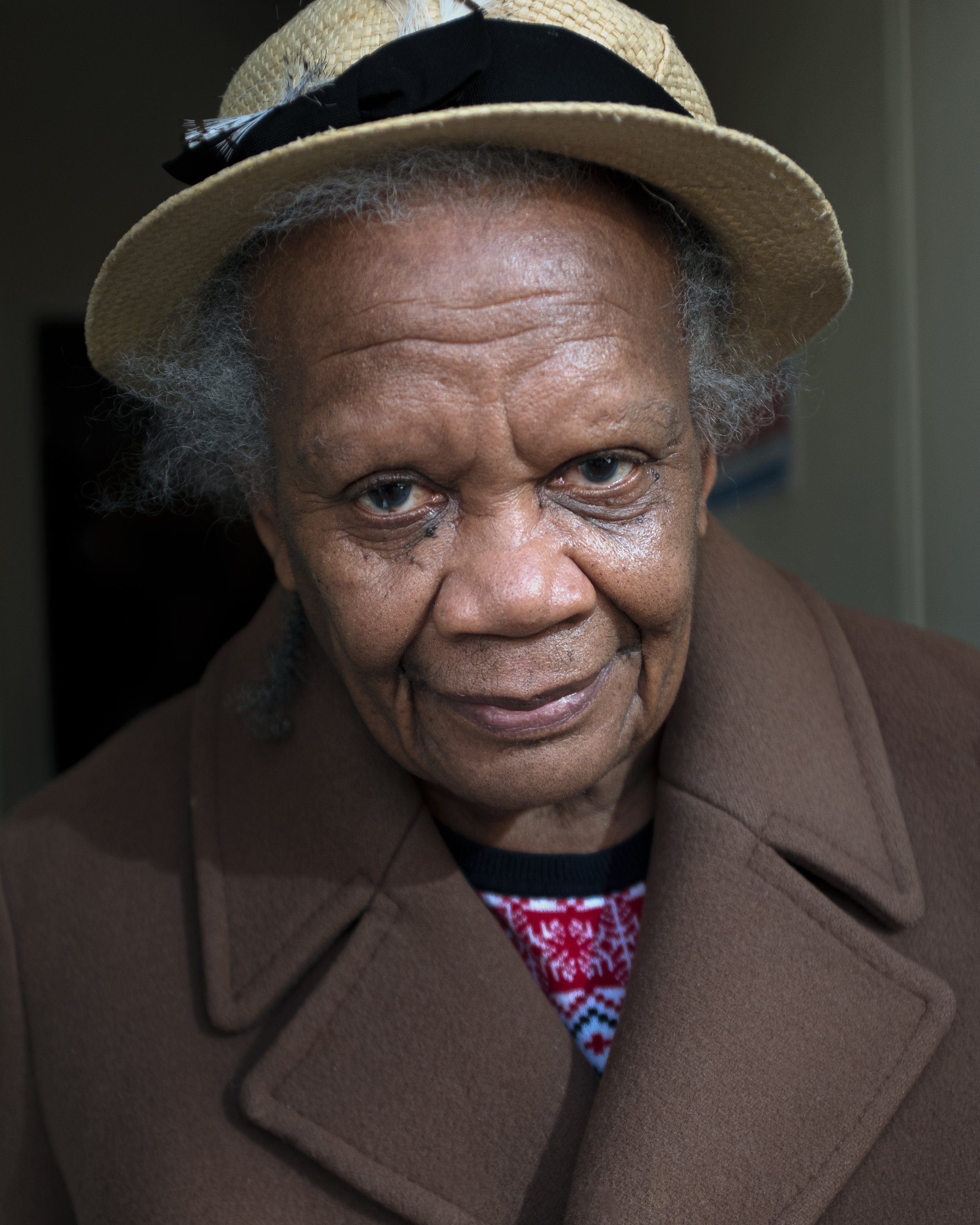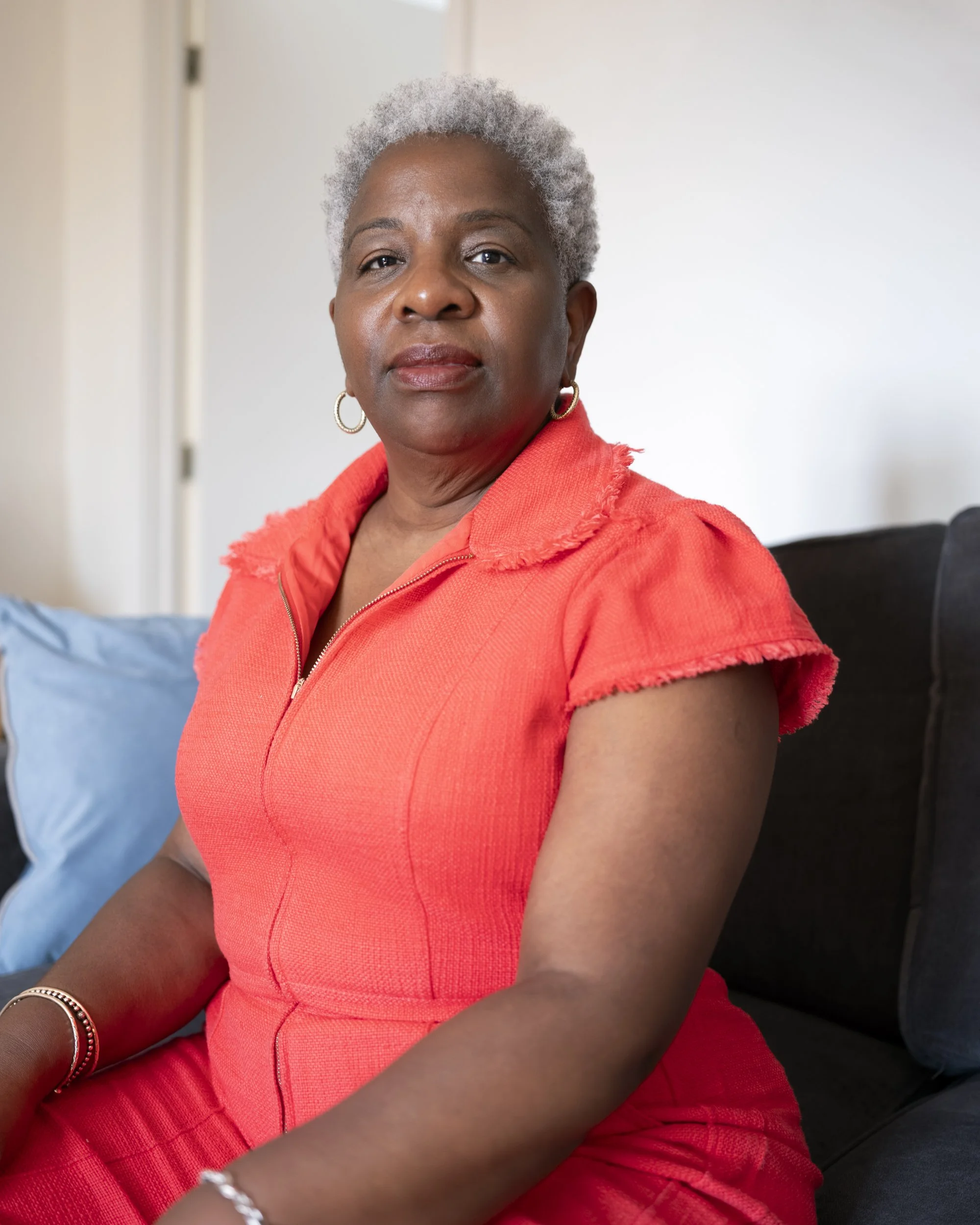Britain called and we answered
Real-life stories of the Caribbean diaspora.
‘Britain Called & We Answered’ is an ongoing project documenting the accomplishments and contributions of Caribbean immigrants who came to England to start a new life in the 1950s, 1960s, and 1970s.
In partnership with the charity Positive Network, the series has been featured in several publications, including Dazed, Creative Review, It's Nice That, The Guardian, and The British Culture Archive.
The work has also been displayed at the Houses of Parliament and poster sites, libraries, and council offices around South London as part of the Windrush 75 commemoration.
Posters were displayed across South London.
Carmen
Carmen has lived in the same house in Balham for nearly 70 years.
Carmen was born in 1934 in Clarendon, Jamaica. She grew up in the countryside, where her father and his brother managed citrus production in the region. The Lawson brothers (Carmen's maiden name) were well-known locally and among the main employers in the area.
School was basic. Children had to pay for their own books and pencils. If you didn't have a pencil, you'd have to wait until your friend finished to borrow hers. Life was tough, but because Carmen's family was relatively well-off, she didn't have it quite as hard.
When Carmen was 17, she would jump at any chance to visit Kingston, the nearby capital, despite her mother's protestations. She'd tell her mother she was going to visit her aunt, when, in fact, she just wanted to experience the excitement of the city. Kingston in those days was lively and safe. Nobody troubled you, and Carmen thought it was a beautiful place.
She will never forget her first time walking down a Kingston street with houses playing music so loudly that you could "dance off" their music without ever stepping in. Her favourite song back then was "Mona Lisa" by Nat King Cole.
She said that those days are long gone in Kingston. It's a dangerous place now. She showed me a photo of her cousin, a qualified doctor, who was shot dead while sitting in his car there only a few years ago.
On one of her trips to Kingston, Carmen was walking through what was then called Racecourse Park (now National Heroes Park) when a boy called out, "Where are you going, good-looking?" She sucked her teeth and replied, "Why are you going for me?" Later, when she walked back, he was waiting for her. His name was Keith. He was a city boy and knew straight away she was a 'country bumpkin', but he liked her looks.
On their first date, they went to the theatre to see Rose Marie, a popular Western. Back then, Jamaicans loved Westerns and country music, and you are still just as likely to hear Jim Reeves playing on the radio in Jamaica as you are Bob Marley.
Keith worked as a mechanic for a British company with a factory in Kingston. A few weeks after they started dating, he told Carmen he was going to England to work at the main factory in Stockwell, London. His passage was already booked. Carmen thought she'd never see him again, but as soon as Keith arrived in England, he wrote to her, inviting her to join him.
Her mother was furious. It was the time of the Suez Crisis, and she was convinced Britain would soon be at war. But like many 17-year-olds chasing adventure, Carmen ignored her mum. She boarded a ship called The Royal Mail, which was, unsurprisingly, a mail ship carrying mostly letters and parcels from across the Caribbean. There were only about 25 passengers, but Carmen made friends on the voyage and never once felt seasick.
When Carmen's train pulled into the station in London, she immediately saw Keith on the platform, running alongside the carriages, looking in each window to find her. He was holding a warm coat because he knew she'd be cold.
Carmen shortly before leaving for the UK.
Keith was staying at 24 Tantallon Road in Balham, South London, just one room in a house owned by a Jamaican landlord.
Back then, when unscrupulous landlords heard another Caribbean ship was due, they'd give existing tenants notice because they could charge more to the new arrivals. Soon after Carmen arrived, this happened to them. They were told they had a week to leave.
Keith went to the police station on nearby Cavendish Road to complain. The police said no crime had been committed, and they could do nothing.
Meanwhile, Carmen went looking for a new place. On Balham High Road, she saw two smartly dressed Nigerian men and asked if they knew anyone with rooms to let. One of them, who turned out to be a lawyer, said, "Follow me," and took her to his house on Laitwood Road, introducing her to his three wives.
He showed her a room at the back, but it was a strange setup. To reach the kitchen or bathroom, you had to go outside, walk down the alley in the rain, and re-enter through another door. The room had two single beds pushed together and no headboard, but Carmen was desperate and took it.
She was shocked by the living standards in the UK. She had imagined British people would all be wealthy, but here they were, scrubbing floors and wearing scruffy clothes. Her parents' home in Jamaica had been much nicer than the places she saw in Balham. When she wrote home, she didn't dare mention the conditions to her mum.
When she returned to the first house to pack, the Jamaican landlord had already thrown her suitcase onto the street. He may have been a fellow Jamaican, but first and foremost, he was a greedy landlord.
But life in the new place was kinder. Keith and Carmen got on well with their Nigerian landlord and his wives, who treated Carmen like a daughter. Each wife had a small child, and Carmen would often babysit.
She got work as a dressmaker in a factory on Bishopsgate, run by a German Jewish family. They made coats and Ladybird children's clothes for M&S. On her first day, the foreman put her in front of an industrial sewing machine. To get the job, Carmen claimed she could operate it, but had no idea what she was doing. The cotton tangled immediately, and the machine began to smoke.
Panicking, she confided in the woman beside her, who smiled and said, "Don't worry darling," and showed her how to use it properly. Carmen later found out that this woman was the factory owner. They often joked about that day during the 18 years Carmen worked there.
On her lunch breaks, Carmen shopped at Petticoat Market, buying chicken, vegetables, and potatoes. Back then, there was such a labour shortage that every window had signs looking for dressmakers. If your boss was harsh, you could leave at lunchtime and find a new job by the afternoon. But Carmen liked her employers. They gave jobs to her relatives when they arrived in the UK and even lent them money for the airfare.
Over time, Carmen and Keith moved around Balham. She remembers the signs in windows: "No Irish, No Blacks, No Dogs." She would arrange a viewing by phone, but when the landlord saw her face, they'd claim the room was taken. Sometimes, she'd ring again from a phone box using a posh voice and magically was told the room was still available.
Worse was when landlords said, "It's not me. I'd happily rent to you, but the neighbours wouldn't like it."
Thankfully, the couple didn't have to rent for long. Keith and Carmen joined a Pardner saving scheme, pooling money with friends. They saved enough for a deposit and bought their own house with a mortgage from South Western Building Society. Every week, Carmen went to their office opposite Balham Station to pay the instalments.
It's the same house she lives in today, owned outright.
Carmen has seen Balham change so much in the last 70 years. Her street is gentrified now. Families move in, refurbish the house and move on. Then, a new family comes in and does the same again. Meanwhile, Carmen's home is just as it was.
"Posh, people see me walking with my sticks and wonder what I'm doing here. I tell them: 'My dear, I was living here before you were born.'"
She adores her children and says they are very kind to her. When Keith died about four years ago, her daughter invited her to move in, but Carmen values her independence and her home too much to leave.
Perhaps because she once shared pencils at school, education has always mattered to Carmen. She's glad they came to England so her children could get a good education. She's especially proud of her 17-year-old grandson Solomon, who got a place at one of the best selective schools in the area and is about to start a degree in Edinburgh.
"If I win the lottery tomorrow and give you the money, a man can come and steal it," she says. "But if you get an education, it's in your head. Nobody can steal that."
Recently, she discovered a centre for Caribbean elders just down the road from where she lives. She had no idea it existed until one day, when she was sitting at home watching Loose Women, her daughter called and said, "Put a good dress on, mum. I'm taking you for a cup of tea and to meet some nice people." Carmen enjoys it there, talking about old times with others like her.
"All in all," she says, "I've had a good life. The Lord has been good to me a long time now. Apart from my knees and back, I'm feeling fine. I've had them all done by the surgeons, knees, back and feet - the full MOT. But I'm still going. I'm not giving up. There's life in this old bird yet."
Carmen and Keith.
Henry
Henry was born in 'Snell Hall' village in St Vincent, Grenada. The village was named after slave owner William Snell. 1720-1779.
On June 15th, 1961, Henry took the boat to England. His mum was so upset that her boy was leaving, that she couldn't bare to look when he got on the bus to take him to the port.
Just a few days after arriving, Henry was working as a carpenter for Wandsworth Council. He'd also found somewhere to live in Shepherd's Bush, so he sent for his wife, Marge, to come over from back home in Grenada.
One of Henry's first jobs was doing the 'shuttering' for the Winstanley Estate in Battersea, which was under construction at the time. Henry's job was to build wooden moulds that concrete was poured into to create the walls of the tower blocks.
Henry and Marge had four children together. When she was in her forties, Marge visited her sister in America. After returning, she was at the market when she had a stroke and died. Henry told me that Marge had always suffered from headaches. "My wife was so good that she died early. It's only the good that die young."
Henry is 94 now, and his eldest child is a pensioner. He walks without a stick and always sits on the top floor of the bus. He said, "When people get to my age, they get aches and pains but lucky for me, I don't have any."
Henry doesn't take any medication and never visits the doctor. "I'm happy in my own way, and I don't worry about nothing. The trouble with people is they all want to be rich. All you should want in life is to see the daybreak - that's all you need."
"I had my little job, I worked for Wandsworth Council until I retired - I still get my pension money from the government - what's better than that?"
"Every day, I'm up at 6am. I get a cup of tea and get out of the house. All I want is to keep going."
Henry told me he was in Clapham because he’d been doing a carpentry job. He always keeps his leather holdall in a Sainsbury's bag. "Because if people see you with a leather briefcase, they will want to steal it."
He told me that even though Marge died 47 years ago, he still has conversations with her in his sleep. Last week, she said, "Have you made up your arrangements for your funeral yet." Henry told me that he replied, "I ain't going nowhere."
"I was born in the gutter, and I lay in the gutter smiling, waiting for the water to take me to the big sea."
Despite being in his 90s, Henry always sits on the top floor of the bus.
Hyacinth and Israel
Hyacinth and Israel are from St. Elizabeth, Jamaica. Both of their families were cultivators (farmers).
When Hyacinth was small, her father travelled to England as part of the Windrush generation, working as a carpenter in Brixton.
When she was sixteen, she decided to join him and boarded the SS Arigua, setting sail for England.
Upon arrival, the first thing Hyacinth noticed was how alien British terraced houses looked to her, all attached to one another, as if they were holding each other up. Meeting her father after all their years apart felt just as strange.
She found work as a machinist on Lambeth Walk, quickly adapting from a treadle sewing machine to an electric one.
Israel had planned to go to Cuba like his father and uncle, but in 1956, he changed course when friends began heading to England. He arrived in Kensal Rise and stayed with his sister. Israel couldn't believe how dull Britain was. Everything was so grey, and the smog didn't help. All the cars, houses and shops in Jamaica were clean and bright, whereas everything in London seemed dull and dirty. He thought of returning straight away, but decided to stick it out in England for 5 years, make some money, and go home.
The small Caribbean community around Kensal Rise stuck together, helping one another find rooms and work. Israel was told to go to Euston Station and apply for a job on the railways. He did and became a porter at Watford Junction.
The couple met for the first time in a house in Dalston. Hyacinth was visiting a friend, and Israel was visiting a relative. When they discovered they'd grown up just a few miles apart back home, there was an instant connection. It also transpired that they had arrived in England on the same date, 21/06/56, but on different ships and arriving at different British ports. The pair talked for hours and arranged to go to the pictures at Elephant and Castle. A year on, they married in Kilburn.
Back then, the couple had mixed feelings about the locals. Some were kind, but others were openly hostile. Hyacinth remembers queuing up in shops and watching white people step in front of her as if it were their right, and being told to 'go back where you come from' when she objected.
They lived first in Israel's sister's spare room, then moved into a flat in Stoke Newington. Property in London was much cheaper back then. For Caribbean people, it was often easier to save up and buy a place than rent, since landlords frequently refused to accept people of colour. The couple saved, and together with Israel’s cousin and her husband, bought a house. One family lived upstairs, and the other downstairs. By then, Israel was a van driver for the Post Office delivering parcels all over London, and around this time, Hilary, their first child, was born, followed by two more daughters.
When the kids were small, Hyacinth did machining work from home. But once they were at school, she worked as a home help with Haringey Council, working her way up to the position of Emergency Responder for sheltered housing. She went on to work for the council for 35 years. Israel trained to become a London Cab Driver. The Knowledge came naturally as he already knew the streets from the Post Office. He loved the job and met his share of famous faces: Sammy Davis Jr., Omar Sharif, Sir John Mills, and even Dot Cotton from EastEnders.
Life was going good, their kids grew, and grandkids started to appear. But tragedy struck when, in 2001, Kimberly, their oldest grandchild, died from Sudden Arrhythmic Death Syndrome (SADS). She was just 18 years old.
Hyacinth was devastated, and the stress caused Israel to lose his hair. But families are resilient - Hilary, Kimberly's mum, works with the SADS UK charity to raise funds for defibrillators in schools and colleges, and Hyacinth has completed fun runs to raise money. It may have been 24 years ago, but both Israel and Hyacinth teared up when they showed me the many framed photos of Kimberly displayed all over their house. Hyacinth recently moved their burial plot, so when the time comes, she'll rest near her granddaughter.
After 68 years of marriage, the couple tease each other the way long-term couples do. Hyacinth jokes that she's been stuck with Israel since she was just 18 and that he winds her up. Israel rolls his eyes and says that they get on like 'a cat and a dog'. But then, they both talk about their daughters with unshakeable pride.
Days are spent at the leisure centre, swimming, and at the gym for Israel, and Zumba, yoga, and Pilates for Hyacinth.
Every Wednesday, the whole family comes over. The grandchildren have their own keys. Hyacinth cooks up a meal; something big, like a roast or a curry. I asked if Israel ever cooks, and before he could answer, Hyacinth said, "He can't cook; he burns water."
Hyacinth and Israel came here young. They built a home, raised three daughters and surrounded themselves with family.
They faced the cold, the smog, the stares, the comments, and the grief that no family should carry.
But throughout it all, they carried on. England wasn't always warm, but together, Hyacinth and Israel forged a warmth of their own.
Ralph
Ralph was born in Little London, Westmoreland, Jamaica. He had siblings, but didn't see much of them. In Jamaica, it was common for grandparents to take one child and raise it as their own.
He dreamed of becoming a teacher. While waiting to be old enough to attend teacher training college, he worked at his uncle's bakery. Ralph organised the bread deliveries, calculated consignments, and checked the cash when the vans returned - it was a job he loved.
This all changed when Ralph turned 19, and the call came from the UK for help with the war effort. According to Ralph, in Jamaica, there was God Almighty, and next there was Winston Churchill, so Ralph and his friends immediately signed up to fight for King and Country.
The recruits were put on a ship bound for England. En route, they stopped at a military base in Virginia, USA, where segregation was still enforced. Black American soldiers were housed separately from white troops, with conditions in the Black barracks significantly worse.
However, Ralph and his Jamaican comrades were classified as "temporarily white" and stayed in the white barracks. Ralph suspects it was simply to avoid bureaucratic hassle. The white quarters were comfortable, the food was plentiful, and there were regular dances. Ralph remembers dancing with white American girls but never once seeing a Black American soldier during his stay.
After Virginia, their ship joined a massive convoy crossing the North Atlantic in 1944, just after the D-Day landings.
The ship docked in Liverpool. Ralph was sent for 13 weeks of training at a Butlin's holiday camp in Filey that the military had taken over.
One day, he was sitting on the seafront when a young girl approached and told him she collected stamps, asking if Ralph had any. He didn't, but the next day, he brought her some from his Jamaican friends who had received letters from home.
This gesture sparked a friendship between Ralph and the girls' parents, whom Ralph would come to call Aunt Lil and Uncle Arthur. They invited him to use their holiday house. Later, they welcomed him to stay with them in Scunthorpe.
Ralph said that all the English people he met treated him well. They saw the Jamaicans as coming to help with the war effort and were always welcoming.
The training was comprehensive and turned Ralph from "A harmless little country boy to a soldier prepared to kill for his comrades."
He was stationed at an RAF base and became a motor transport driver. He served as chauffeur to the senior armaments officer of the legendary 617 Squadron, known as the Dambusters. He was later due to be deployed to Okinawa, but the war ended before he was sent.
In 1949, Ralph married Mavis. They met at a dance hall in Boston, near Coningsby Air Base. It was a lively place popular with young people. He loved that Mavis was full of fun and enjoyed dancing. "She wasn't stroppy," he said with a smile. She loved his sense of humour and that he was a good dancer.
They married in Scunthorpe. Of course, his aunt, Lil, and Uncle Arthur attended and later became the godparents of their daughter, Lesley.
Ralph studied accountancy and secured a job at a wholesale grocery firm, advancing through the ranks to retire in 1989 as general manager. After retiring, he served as the membership officer of the Boston Chamber of Commerce for 20 years. He was also well known in Lincolnshire for his skills on the cricket pitch.
That young man who thought the world of Winston Churchill is now 100 years old. He lives alone as Mavis has dementia. When caring for her became too much for Ralph, she moved into a care home, where Ralph visits her every week.
Along with his nightly prayers, Ralph says his longevity is down to doing 1 hour of sit-ups every day, including on his birthday.
Ralph came to the UK to help with the war effort. He decided to stay and went on to have a successful career, raise a family, and be an important part of his local community. He never did become the teacher he had dreamed of being as a young man. However, his daughter, Lesley, became not only a teacher but a headmistress, something that Ralph is incredibly proud of.
Aunt Lil and Uncle Arthur.
Princess AKA ‘Blossom’
Princess Aldridge, AKA Blossom, was born in Trelawny in the Jamaican countryside in 1933
Her dad grew yams, bananas, cocoa, 'dasheen' (Taro plant), and another root vegetable, 'tyre'.
Her parents had children from previous partners, so Blossom had a big family with many siblings and step-siblings.
One of her earliest memories is being around four and starting at 'Quatty School', where you pay the teacher a penny-halfpenny weekly for lessons. (Quatty comes from the fact that a penny-halfpenny is a quarter of a Sixpence)
Her parents sent her there to get her education going before proper school started at seven years old.
She walked to school on rough stone roads; there was no tarmac back then. She enjoyed school, and just one teacher taught everything from arithmetic to gardening.
Around the time she finished school, her mum suddenly passed away. She had previously hit her head, which affected her blood pressure, and she died sometime after the accident.
At the time, this never really sunk in for Blossom - she thought her mum had just gone away to another country. There was no such thing as an undertaker - you died on one day and were buried the next. It was all so sudden that it didn't feel real to the 16-year-old.
At her first job, she learnt embroidery. She could hand sew and use the machine but couldn't get into dressmaking. She left this job and went to Kingston to work as a domestic for a couple from the Cayman Islands, looking after their new baby.
One of Blossom's most vivid memories of Kingston is sneaking into the grounds of Kings House to see Princess Margaret, who was staying there while on a tour of the Caribbean. There was no security then, so Blossom and her friends crept under the fence and into the compound to get a better view.
When her employers decided to return to the Cayman Islands, they asked Blossom to accompany them. Blossom decided against this, so she had to find a new job.
She went to see one of her older brothers who lived in the district of St Thomas to the East of Jamaica. It was through her brother that she met Solomon, who was known as Mike (Many West Indian people have a nickname). She remembers that it was all down to eye contact - they knew immediately that they liked each other.
Mike was a shoemaker, and he had a room in a house near the church in a small community, and Blossom moved in with Mike.
Nobody had a problem with them living together before marriage, but Blossom needed to find work. A few kids were running around, and the pastor permitted her to set up a school in the church. It was sixpence a week, and she had about six kids in her class.
Mike saw the adverts in the Jamaican Gleaner encouraging young people to come to England. And in 1956, he decided to go.
Blossom was due to see him off at the dock but discovered her dad was gravely ill. She said goodbye to Mike and hitch-hiked back to her district on a market truck.
When she got to the hospital, her dad looked so sick that she barely recognised him. He was only 54. He'd had a hernia operation, and the surgeon had left a piece of equipment inside him. In those days, there wasn't a nurse that counted all the tools in and out, and this error caused him to get an infection. He died the following morning, but at least Blossom got to see him one last time.
Blossom continued teaching until Mike wrote, saying that he had a place to stay in London and had found her a job and that she should get a passport and come. In 1957 Blossom boarded The SS Venezuela for the UK.
Mike and his sister were waiting for her at Victoria Station, and luckily, they had a coat for her. It was March, and it was foggy. At 23, this was the first time in her life that Blossom had ever experienced feeling cold.
As they left the station, she looked around and wondered where all the houses were. She thought the houses were factories because of all the chimneys belching smoke from the coal fires. There are no chimneys in Jamaica. For a while, she even thought the chimneys were canons pointing at the sky.
Mike had rented a room at 3 Lammermoor Road in Balham from a West Indian landlord called Mr Robinson. It was just a room with a paraffin heater. There was no carpet, just Lino on the floor.
You had to put a coin in the meter for electricity, and if you wanted a bath or a shower, you had to go to Tooting Baths, where you were only allowed 15 minutes. This was a surprise to Blossom. The adverts about England said the streets were paved with gold, and she wasn't expecting to live in such conditions. Back in Jamaica, Blossom's house was spacious and had its own bathroom. Despite this, being in London and seeing Mike again after their year apart was exciting.
The next day Blossom and Mike took the 155 bus to Colliers Wood to the factory where Mike was already working. The factory worked in metal and made rough components for items like toasters or irons. Once the parts were made, they were sent to another factory for finishing and then would go to another to be made into the final items.
Blossom worked on all sorts of things on the production line and, most of the time had no idea what she was making. She remembers having to weld a small bowl onto a metal plate. Years later, back in Jamaica, she went to church and saw a communion bowl welded into the middle of a plate. It was only upon seeing it all polished up that she finally realised what she had been making all those years before.
It was very hot in the factory, and Blossom had to wear leather gloves to protect her hands against the sharp, rough metal. She worked in the women's section on smaller items, whereas Mike worked in the men's area on larger and heavier products.
During this time, Blossom made a lot of friends. This was before they had children, so the couple often went out. They loved the cinema, and Blossom remembers watching ‘Ben-Hur' at the Classic Cinema in Balham. They paid a shilling to get in.
In 1958 the couple married in Ramsden Road Baptist Church.
They wanted to start a family, but Blossom said that there was no way that she was having babies in a single room, so they looked for flats in the Local paper.
A Self-contained flat was going for £2.50 per week in Louseiville Road, Balham. A Polish couple owned it. Blossom was very well-spoken on the telephone, and she called her potential landlady. They had a pleasant chat and arranged to view the flat that afternoon.
As soon as Blossom got there, the landlady took one look at her and said the flat was gone. Blossom looked her in the eye and said, 'It's not gone; it's because I'm coloured' (In those days, it was common practice to use the now offensive term coloured). The woman had no answer for Blossom; she just shut the door, and Blossom and Mike had to find somewhere else to live.
The same thing happened not long after when Blossom phoned up about a job. She was virtually offered the job after talking on the telephone, but when the boss saw her in the flesh, he said the job had gone.
Eventually, the couple found somewhere to live. By then, Blossom worked as an orderly at The Fountain Hospital in Tooting. (Now the huge St George's teaching hospital). Mike was working as a carpenter, making furniture in a factory where he continued to work until he retired. He also did the sound systems at "House to House" parties which bought in a little extra cash. Blossom would always go to the parties, "It was nice, people you know. It was soft music. No fighting, no knives, everyone dressed up smart."
In 1961 Blossom had her first baby, a boy called Ken, at the Weir Maternity Hospital in Balham (Now a Travis Perkins). She shared a bathroom with two white girls who were also heavily pregnant.
Whenever Blossom had a bath, the pair kept coming into the bathroom to try and look at Blossom's behind to see if she had a tail. In those days, some white people thought that black people had tails. Blossom, who doesn't take nonsense from anyone, wasted no time showing them otherwise by waving her behind in their faces.
Blossom and Mike then had two daughters, Yvonne and Carol.
During this time, Blossom worked nights as an auxiliary nurse. She worked in the geriatric ward, writing reports on the patients - how they slept, if they'd taken any medication, etc. When she got home from work in the morning, Mike, who had been watching the kids, would be getting ready for work.
By then, the landlord said the babies were making too much noise, so she applied for a mortgage from Nationwide, and they got a deposit together using the Pardner scheme. The Pardner scheme originated in Jamaica and involves a group of friends or relatives putting money into a shared pot to pay for large items like cars or house deposits.
The house they bought was in Letchworth Street, Tooting.
Meanwhile, the matron at the hospital was impressed with Blossom's work. She encouraged her to go beyond being an auxiliary and applied to the School of Nursing on Blossom's behalf.
Of the five women who applied then, Blossom was the only one who passed the test. She became a student nurse in 1972
Once she qualified in 1974, Blossom was one of the first nurses to work at the newly opened Charing Cross Hospital in Hammersmith. She worked there until her retirement in 1993.
Blossom was still experiencing racism in the hospital environment.
She remembers getting the bus to work at the hospital. A white woman was sitting next to her. She asked all the other passengers around her if she was going the right way to the hospital. She refused to talk to or even acknowledge Blossom.
Not long after Blossom got to work, the same woman arrived. She was visiting her husband, who Blossom happened to be caring for. The woman recognised Blossom immediately, and there was an awkward silence before Blossom said, "If you'd just spoken to me on the bus, I could have taken you straight to him."
On another occasion, a patient from South Africa was at the hospital. This was during apartheid, and the woman was extremely rude to Blossom.
Blossom noted that during the woman's operation, the nurses, the porter and the doctors who cared for her were all black.
When she came around from the anaesthetic, Blossom said to the woman, "See, we didn't kill you. We helped you." Blossom was pleased to see that the woman's attitude changed after this experience.
In Blossom's words regarding racism, "We tolerate it. I didn't pay them any mind. We meet hell, but things will get better one day at a time."
In 1981 after 20 years of marriage. Blossom and Mark divorced.
Blossom continued to work as a nurse, and some years later, she married Roy. He was also from Jamaica and, like Mike, was also a carpenter. She knew him from the house parties back when she was young. By then, Blossom was in her 50s.
After retiring, the couple decided to move back to Jamaica. It was Roy's idea to go back; he had had enough of the cold British weather. Blossom had lived in London for 41 years. Being married to Roy felt like a new start, and she was happy to return.
They already owned a piece of land Blossom had bought with her brother and built themselves a new house.
Britain is no longer as racist as it was, but preconceptions remain. Blossom invited an English friend over to her new house for a holiday. Her friend admitted that she thought Blossom's house would be a small shack surrounded by dirt and was surprised to see a large home with plenty of space and beautiful gardens.
Blossom is now 91 Her first husband, Mike, and her second husband, Roy, have since passed away, and Blossom lives alone.
Blossom must be careful in Jamaica because, having come from the UK, the locals assume she has a lot of money and try to charge her more at the shops if they hear her London accent.
All those years ago, when she was looking for a flat or trying to get a job, people made assumptions about her based on her accent. Ironically, something similar happens to her now when she goes shopping in Jamaica.
Despite this small inconvenience, Blossom loves living in Jamaica. "I'm glad I came to England, but I'm also glad I returned home."
Caswell
Caswell Martin was born in 1944 in Antiqua. His dad was a farmer who grew sugar cane and sweet potatoes.
His two elder sisters had gone to London to work as nurses at the Homerton Hospital. Encouraged by his mum, who said there were more opportunities in England, Caswell decided to join them.
In Antiqua, he'd worked as a joiner and quickly got a job doing the same at a factory in Stoke Newington. After work, he would go to the gym with a friend who was into bodybuilding. This got Caswell into wrestling, and he realised he was good at it. Caswell was so good that he nearly competed at the 1968 Mexico Olympic Games. He and another wrestler, Ron Grinstead, had an equal number of points, so a match was organised to decide who would go. The match never happened, and for some unknown reason, Ron was sent instead of Caswell. This was devastating for the young wrestler.
A friend told him to forget amateur wrestling and go professional instead, so Caswell went to see Dale Martin, a wrestling promoter based in Brixton. Dale taught him everything he needed to know about professional wrestling. (There's quite a difference between amateur and professional.)
Caswell became known as Cast Iron Caswell. This was in the 1970s, when wrestling was in its heyday. Every Saturday afternoon, wrestling was shown on ITV's World of Sport and was hugely popular.
Caswell said the money was good, and you'd get paid more if your bouts were televised or at prestigious venues like the Royal Albert Hall. Although most of the fights took place at places like Battersea Town Hall, Walthamstow Assembly Hall, Fairfield Halls in Croydon, etc.
I asked him if bouts were ever fixed, and he said sometimes they were. Gamblers would ask wrestlers to throw a match during a specific round, and if the price was right, many wrestlers obliged.
He loved the sport and got to see the world thanks to wrestling. He's travelled all over the UK and Europe and fought many times in Japan.
Caswell didn't retire from wrestling. It was the sport itself that seemed to retire. By the mid-90s, the nation's love of traditional British wrestling had fizzled out. Caswell had a good run, but 22 years of wrestling and over 1100 bouts have taken a toll on his body. He's got bad arthritis, but he has no regrets, especially as it was thanks to wrestling that he met his Austrian wife, Andrea. They were introduced after a match in Vienna.
The couple live in the East End of London with a grown-up daughter. Despite joking that she's a wrestling souvenir bought back from Europe, Andrea loves living in London, and the couple have been happily married for over 30 years.
Janet
Janet was born in 1935 in 'Kitty', a neighbourhood of Georgetown, Guyana.
Her dad owned some land as well as the village shop.
Janet did well at school. She was also sporty and loved tennis, athletics and cycling.
She went on to work for a printing company called 'B.G. Lithographic", where she did print finishing and putting together leaflets and booklets.
The company had a sports team where Janet regularly competed in track and field events and often won medals.
An accident damaged her knee, so she could no longer compete. Janet came to England on the SS Ascania in 1961. Janet’s older sister, known as 'Baby', was already in London and working as a machinist. She had a job and somewhere to stay lined up for Janet.
SS Ascania
Janet was told that the streets of 'The Motherland' were paved in gold. She was disappointed when she arrived on a freezing cold smoggy day. She wasn't expecting to see so much poverty in England either. Her parents had a nice house and land, and back in Guyana, the thought of paying to keep warm was unthinkable.
Despite this, being in her early twenties, Janet loved the excitement of living in London. She has always been into music and, in those early days, often attended house parties. It was a lot of fun, and she made many friends.
She then got work as a nurse at St Ebba's Hospital in Epsom, which was a hospital for the mentally ill. It was around this time that she met John. He was from Nigeria and was a trained mechanic living in Tooting. The pair married and had their honeymoon in Paris. The couple had 3 daughters and a son.
John went on to become a bus driver,
When the kids were small, Janet stayed at home. She would often take them on day trips to museums and the zoo. She encouraged them to share her love of sports. Several cups and medals won by her kids are displayed at her house.
Janet used to love going to Wimbledon to watch tennis. (Her daughter was one of the first black ball girls at Wimbledon).
The couple on holiday in Mexico.
Once the kids got older, Janet returned to work and got a job at M&S. Firstly in the womenswear department and then in the food hall. Before going to work, she always left little snacks out for the kids so they had something nice to come home to when they returned from school.
Her first pay packet at M&S coincided with the opening of McDonald's in Croydon. This was one of the first in the country, and she remembers how novel and exciting it was for her and the kids to visit this strange American store.
Back then, shops were all closed on Sundays, so on a Saturday afternoon, the staff at the M&S got to buy all the unsold food at a big discount, so Janet was able to buy lots of treats for her family.
Janet retired after 21 years at M&S and has lived in the same SW London house for nearly 40. Her estate once had a pub frequented by the National Front, and there were a lot of racists in the area. Janet remembers back in the 80s, her neighbours opening their windows and playing recordings of the racist comedian Jim Davidson at full volume.
Janet never took the racists that seriously. She never understood how they could look down on her when they all had dead-end jobs and lived in virtual poverty. Janet was well-educated from a good family and had come to England as a young woman purely because it was an exciting opportunity for a girl in her twenties. Not because she had to come to earn money. The area is much more cosmopolitan now, and attitudes are thankfully changing in Britain now.
Janet used to love knitting, but arthritis has put a stop to that. She still loves watching sports and always looks forward to seeing athletics and tennis on TV.
Janet is now 88. She has vascular dementia and is cared for by her daughters, Pearl and Beverley. Pearl was a huge help with this interview.
Janet may struggle to remember everything, but she still has her sense of humour. "When I first came to England, All I used to do was go to house parties. Nowadays, all I seem to do is go to funerals.”
Janet’s caught Pearl was a huge help with this interview
violet and dolly
Violet is from Clarendon to the south of Jamaica. She came to the UK 60 years ago and worked as a nurse for most of her life.
Dolly is 94 from St Thomas, also in Jamaica. Before retiring, she worked as a dressmaker.
The pair was on their way to church when I took this shot. Although they attend different churches, they take the time to catch up while they wait for their bus.
Mabel
Mabel Brown is 95 years old and has a better memory than many people half her age. She was born on March 24, 1930, in the parish of St. Ann, Jamaica, and still recalls the stories her grandparents shared about life on the island from before she was born.
She remembers being told about the wealthy white people who lived in big houses and owned the sugar estates. When their friends visited from England, they'd get with the girls working in the cane fields, only to abandon them once their holidays ended. Some of those girls were left pregnant. Mabel said this explains why many people in the area were of mixed race.
Her grandfather told her about a plantation worker whose hand got stuck in a machine. Dismantling the machine to release him would have wasted time and money, so they let it run, and the man lost his hand.
Her uncle worked on the plantation. When he'd visit the family, he'd bring tins of raw, unrefined sugar that had turned into a syrup with a rum-like flavour. Mabel's mum would mix a spoonful with fresh lime juice and ice, and according to Mabel, it was the most delicious drink that she ever had, and she can still remember the taste 85 years later.
Mabel's childhood was full of love. Her family was self-sufficient and grew everything they needed. They had chickens and pigs, grew yams, corn, mangoes, grapefruit, and even their own coffee, which they dried on the patio in the sun. The only thing they didn't have was a goat because, in Mabel's words, "when you have a goat, you have nothing because they eat anything and everything."
She was raised by her mother and her paternal grandmother, Theodora. Her grandmother had lost her only daughter when she was young, so she doted on Mabel. Mabel adored her grandmother and says that she's been a huge influence on her life. Mabel can still remember her now, standing in her garden dressed in long sleeves and big skirts like 'old-time people'.
Mabel had a Christian upbringing. Her grandmother took her to Church led by a white Rector from Kent in England. She remembers the packed congregations and that the Rector was a good man. "We had no luxuries, but he'd often visit us at home and sit with us and drink tea"
Back then, Jamaica held the UK in the highest regard. Just before the famous sea evacuation of Dunkirk during World War II, King George VI called for a national day of prayer. Upon reading this in the newspapers, Mabel remembers everyone in Jamaica fervently praying and is certain that their prayers helped the evacuation to be a success.
One morning, when Mabel was 15, her mum was in the kitchen preparing some beef soup for lunch. They only got to eat meat once a week, so this was a good day. Her mum went into the garden to gather some vegetables. After a while, everyone wondered where she was, so Mabel went to look and found that she had died amongst the flowers. Mabel was devastated. As was common in Jamaica, the funeral was held the next day, and Mabel was so distraught that she jumped into the grave. Her mother was only 45.
Her grandmother was unwell from a goitre operation and couldn't take her in, so Mabel moved to Kingston to live with her Aunt Root. But life in Kingston didn't suit her. Her aunt and cousin loved going to dances and the cinema, which Mabel, a God-fearing girl, saw as sinful. She knew her mother and grandmother wouldn't dream of going to such places, so while they went to 'rub-up' dances, Mabel stayed home with her embroidery and Bible.
One night when they were out dancing and Mabel was at home, the boy from the house next door came to the fence with some mangoes. He said that they were for Mabel's aunt, but Mabel could instantly see that he was just finding an excuse to talk to her. She said, "Who do you think you are, you piss-tail boy, trying to talk to me?" and left him standing there with his mangoes.
Mabel worked for a wealthy and influential Cuban family who treated her well. They taught her to answer phones and wait tables at the big receptions they had at their residence. She even became fluent in Spanish (until she moved to England and forgot most of it). All the money she earned was meant to be saved by her aunt. But when Mabel asked for some to buy a sewing machine, she learned it was all gone.
Disillusioned by the loss of all her earnings, she found a new job and a place of her own.
One day, on her way back from the shops, she heard whistling behind her. It was the same; 'Piss-tail boy'. It transpired that his name was Augustus, and this time, Mabel didn't chase him off. They became friends, and eventually, a couple.
She could tell he was in love with her, and Augustus begged Mabel to move in with him, but she refused. He confessed that he'd had a terrible childhood and that he was only happy when he and Mabel were together.
Shortly after, Mabel got a telegram from her family saying that her uncle was unwell. Mabel thought she would be away in the country for some time, so she gave her landlord notice, packed up all her stuff and left it all at Augustus's for safekeeping. However, it transpired that her uncle wasn't unwell at all. Augustus had set the whole thing up - Mabel was furious, but he charmed her and said, "Well, your stuff is at my place now, so you might as well move in"
They remained a couple, and things were going well. Mabel had two children, a boy and a girl. Around this time, she got a letter from her grandmother thanking her for a small gift that Mabel had sent her. In the letter, her grandmother said, "Next week, I will be going home". Sure enough, during the following week, Mabel's grandmother died. Mabel still has the letter; she keeps it in her Bible. It's one of her most precious possessions.
Augustus saw the newspaper adverts calling for workers to help rebuild post-war Britain. So he went with his friends, hoping to make his fortune in London. A few months later, Mabel received a letter from a friend saying Augustus was depressed. His friends had all gone to work in Manchester, and he was alone and in a bad way. Concerned, she left the children with family and boarded a ship to England. This was 1955.
Mabel was 25. On the two-week voyage, she made a lifelong friend, Letti, who passed away just last year.
She arrived on an unusually cold August day and was shocked by how grim post-war England was. Chimneys belching smoke, bomb sites and tatty houses. She had no idea how poor the locals would be and was reminded of the line from a poem, 'The Last Buccaneer' by Charles Kingsley. "Oh, England is a pleasant place for them that's rich and high; But England is a cruel place for such poor folks as I"
She was horrified when she saw the tiny room that Augustus was renting in Batavia Road in New Cross. It didn't even have a garden. So many people lived in the house, and they all shared one bathroom and one tiny stove in the kitchen. She remembers that she'd have to put a coin in the meter to get the stove to work, and if she didn't use up the whole allowance, one of the other lodgers would be very quick to go into the kitchen and use it up themselves.
Mabel got a job straight away working as a machinist making flour bags in a factory near the Blackwall Tunnel. She took Augustus to the doctors and demanded that they treat him for his depression.
Mabel encountered more problems when, just as she always had in Jamaica, she went to Church on Sunday. Upon arriving at the local Church, she sat down but was told to get out - they didn't want 'her kind' in there. This was something that lots of Caribbean and African people faced when arriving in 'The Motherland'. The white congregation were far from welcoming - often refusing to sit next to their fellow churchgoers purely because of the colour of their skin. Many resorted to setting up their own churches, known as BMC (Black Majority Churches), which still thrive in the big cities around Britain today.
Having Mabel around, combined with the medication, seemed to lift Augustus's depression. Gus (as Mabel calls him) got better and secured a job at the Overseas League Hotel in Central London. Gus was always an immaculately dressed man. Mabel remembers that he could spend ages just adjusting his tie. Perhaps it was because of this that the hotel sent him to the Victor Sylvester School of Dance to learn ballroom dancing. His job was to partner with the unaccompanied women at the many functions the hotel would host for foreign dignitaries.
Mabel was pregnant around this time. She was getting on the 36 bus on Ladywell Road when the conductor rang the bell too early and the bus jolted forward, causing Mabel to fall. She was taken to the hospital, and baby Lorna was born prematurely. The nurses said the baby was too small and that she should go home and leave it with them, but Mabel refused to be parted from Lorna and insisted on taking her home. She nursed Lorna back to health with barley water. "It cleans and builds you," she says. "If it's good enough for the tennis players, it's good enough for me."
These were good times, the family would often go out on day trips and enjoyed visiting craft fairs and motor shows. At a craft fair, they bought a tufting machine and started a successful home business making candlewick bedspreads, which were all the rage back then.
In 1972, they bought a double-fronted house in Hither Green. They were the first black people in the street, and most of her new neighbours were very nice, but when they bought a new car, a Calypso red Vauxhall Viva. Someone scratched the bonnet with a nail. Mabel doesn't know if this was down to racism or jealousy.
Not wanting a repeat of her earlier experience, Mabel wrote to the local Baptist church before attending, reminding them that "Jesus Christ loves everybody,". She also wrote about the English minister in Jamaica who visited her grandmother and who would sit with them and drink tea. "He had no prejudice, but why are England's churches so different?"
A few days later, there was a knock on her door. It was an elderly white lady called Miss Stoner. She was so friendly and said, "You are welcome at our Church. You must come."
That was 50 years ago, and Mabel has been a part of the church community ever since. She went on to become a Sunday school teacher and youth leader, taking kids on day trips. She recalls taking twenty children on an outing. Half were Black and half were white. When the conductor asked each child for a fare, they all pointed to her saying, "Mummy's paying!" The conductor looked confused, especially when Mabel joked, "And I've only got one husband too!"
Mabel worked as a seamstress first making Donkey Jackets for the M1 Motorway construction workers, then uniforms for Group 4, Rolls-Royce, and the BBC. The fabric was beautiful, and Mabel used the off-cuts to make her grandchildren's school jackets. One teacher even remarked on how beautifully made the uniforms were.
She once had a terrible dream that Augustus would fall seriously ill. She told him, and he put his arms around her and replied, "Putus, why would that happen to me?" (Putus is a nickname meaning 'Sweetheart') Unfortunately, Mabel's dream became a reality. Gus began suffering from severe head pain; he felt that his brain had become too big for his skull, eventually insisting that a dentist remove all his teeth in an attempt to relieve it. He was diagnosed with schizophrenia.
He became a different man. Sometimes violent, often withdrawn, but always erratic and unpredictable. "There were times when I looked at him, I'd think: this isn't my husband." He was eventually admitted to Royal Bethlehem Hospital, then Mayday Hospital. He ended up in a care home, where he passed away several years ago.
On his better days, he was still the kind, gentle Gus she knew and loved. Mabel remembers being in the hospital after an operation and hearing Jim Reeves's "I Love You Because You Understand" on the hospital radio. When the song ended, the DJ announced it was dedicated to her from Gus.
Gus's illness meant that Mabel lost virtually everything. She lost her house and ended up renting a single room in Catford before moving into the flat she lives in today, which she loves. It has a beautiful garden where she used to grow all her vegetables, so many that she would give them away. At 95, she can't garden as she once did, but the flowers she tends are still thriving. Her grandmother's garden was just the same.
She loves to sit by the window and watch the world go by. Her children have all grown up, and she has grandkids and great-grandkids, some living in the UK and others in America.
Mabel is content. She had her Gus for some of her life, and she has Jesus for all of it. Like her grandmother, she has found her Bible to be a great comfort and a source of understanding about the ways of the world.
Mabel's neighbours are kind and always offer to help. One family cooks for her every Saturday because Mabel once looked after their mother. "What you give out, you get back. Whether you're Black or white—love people, and they'll love you back."
As for her plans? "I'm going to heaven,” Mabel said with utter confidence. She's already packed a suitcase with her funeral clothes for when, like her grandmother, Mabel 'Goes home'.
Richie
William Richardson was born on 13th February 1933 in Meten-Meer-Zorg, a small town on the Guyanese coast from which the famous Demerara sugar is derived.
'Richardson' is his grandfather's surname on his mother's side of the family. Richie's parents were very young when his mum fell pregnant, so he was named Richardson rather than after his father - Andrews. Richie only discovered this as an adult when he had to get all his documentation together before travelling to England.
He was always known as ‘Christmas’ anyway. When he was at school, he always laughed and joked, and he got the nickname ‘Father Christmas.’ This was eventually shortened to just ‘Christmas.’ When Richie came to England, people started calling him Richard again. However, if he ever bumps into an old friend from Guyana, he’s back to being called Christmas.
Richie left school at 14 and worked for an Indian mechanic who owned a nearby garage. When slavery was abolished, plantation owners hired workers from India as indentured labourers. Since then, there has been a sizeable Indian population in the area. (Richie has Indian and Chinese ancestors.)
Richie has always been confident that if he can watch somebody do something, then after a while, he will be able to do it himself. "If he can do it, then I can - that's how I learn."
Despite being the youngest of the boys working in the garage, he carefully watched his boss repair the vehicles and quickly learned to do the work himself. Once the boss saw this, he took Richie under his wing and taught him every aspect of being a mechanic.
He worked on all classes of vehicles, including bulldozers, trucks, cars, and tractors.
Around this time, Richie's mother left Guyana and went to work in England. Initially, Richie thought she was going on a holiday. But he didn't see her again for several years until she sent for him and his brothers.
They all lived together in her house in Thornton Heath in South London, and a few years later, the family saved up enough to send for Richie's dad.
Richie's mum had a good job working as a supervisor at the Roehampton Hospital. She got Richie a job in the CSSD (Central Sterile Services Department), a part of the hospital where all the medical devices and equipment are sterilised.
One of the hospital nurses, who was friends with Richie's mum, was having problems with her car. It was in the middle of winter. According to Richie, Britain had proper winters back then: "All you get nowadays is a strong breeze and cold."
The car, a VW Beetle, was covered in snow and wouldn't start. The hospital had a workshop, but the men working there could not get the engine to turn over. Richie's mum told the nurse to let Richie take a look. He borrowed some tools from his brother Simon and managed to fix it.
The nurse was impressed and told her friends. Word of mouth spread, and Richie started to repair cars on street corners and in a neighbour's shed.
His brother then told Richie about an Irish friend who was a mechanic and had a large garage in Tooting with some extra space. This man was also called Richie, and the two Richies agreed to share the garage. The Irish Richie was purely a mechanic, whereas the Guyanese Richie, thanks to his old Indian boss back home, could do Panel beating, welding, and spraying. So Richie helped the Irishman out with this. They became good friends and often went to dances and pubs all over London. Richie also loved to play Chinese Checkers and the one-arm bandits in the 'Banditshop' in Tooting.
The garage, which he called 'Starlight Motors', was a success. Richie quit his hospital job and became a full-time mechanic. Apart from his short stint at the hospital, Richie has always worked for himself since coming to England. "If you can work without a boss, it's a gift."
Back then, he also liked to drink 'High-Wine', which comes from Demerara and is an extremely strong spirit. 'It give me that 'kick', and it makes me work more.' Then, one day, he decided to stop drinking and smoking and hasn't done either since.
Richie also set up Starlight Cars, a minicab company on Selkirk Road in Tooting. Around then, Richie married Ulaline, a woman he knew from school in Guyana. They were always good friends, and they reconnected and married in London, where she worked as a nurse. They never had kids together. In Richie's words, "Ulaline tried, but she was unable to make a child." She passed away in 2004 at the age of 69.
Richie is a sociable man and has many friends, many of which were Irish. "I don't see an Englishman, an Irishman, a German or an African; I see a human being, a person, an individual."
Richie regards everyone under his roof as his 'brothers and sisters.' He refers to this as 'African style,' which comes from the fact that most traditional African societies did not have words for uncle, aunt, cousin, nephew, or niece in their language. Everyone was considered a brother or sister. Richie says, "However you twist it and turn it, we are all brothers and sisters—all human beings in this world."
Richie is now 91 and lives in the heart of Tooting. He still does his own shopping, cooking, and daily exercises. He enjoys watching TV: "Anything that looks nice on the screen." His favourite show is Judge Judy, and he enjoys Westerns as he did as a boy back in the cinema in Guyana.
He has no regrets about coming to England. He likes his flat—it's comfortable. He added that he's been happy in all the places he's lived in in London. He has no plans for the future: "When you get to my age, you can't plan for anything." He still plays the lottery because "You never know."
Alongside the picture of Richie's mother are many old photos of kids, which Richie revealed were his. When I asked how many children he has, he laughed, "Man, I can't count them all. They are from back in Guyana before I married." He added, "I'm not afraid and am proud to say so. I treated women well, but back then, I was a sugar boy,' and you will need a bigger camera to get that story recorded."
Richie exercises every day.
agnes
Agnes with her ‘Great-grans’
Agnes longed to see her big brother George again. He'd left Guyana for the UK when she was 11. So in 1959, when Agnes was 19, she boarded the SS Venezuela and set sail for England.
Agnes remembers the boat was filled with people from all over the West Indies, Jamaicans, Barbadians, St Lucians, amongst others. Some were going to meet their parents, their partners or other relatives. Some were going to study and some to work.
Agnes enjoyed the journey; she was a friendly and sociable 19-year-old and exchanged many backstories with those she met while crossing the Atlantic. She shared a cabin with a girl her age, Velma, from Guyana. Velma was to become her best friend, and they remained so for over 60 years until Velma recently passed away.
When she arrived in London, her brother George was waiting for her at Victoria Station. Although she had not seen him for eight years, she recognised him immediately.
George, his wife, and their children would share their home in Balham with Agnes for 11 years.
Within a week of arriving in England, Agnes was escorted by her Sister-In-Law to the Labour Exchange in pursuit of a job.
Agnes's first job was in a laundry operating the steamer. This did not last long, as she was terrified of the huge machinery.
Her next role was in a factory, assembling parts, for things, like irons and toasters. While working at the factory, she made another of her lifelong best friends, Lucille, aka 'Miss Lou'. Now deceased.
Agnes then wrote a job speculative letter to The Fountain Hospital. A small hospital for children with mental disorders. She secured a position as a Nurse. The Fountain Hospital went on to become the huge St George's Teaching Hospital that dominates Tooting today.
After a few years, Agnes took her nursing skills to St James' Hospital in Balham, where she worked in an operating theatre.
At first, she found seeing the operations hard to take, "It was a bit frightening, but eventually I got used to it."
During the '60s, West Indian immigrants would host parties in one another's houses. It was at a house party that Agnes met her husband, Marvin. A qualified teacher from Guyana, who, owing to the discrimination in England at the time, could only secure building work.
Unbeknownst to Agnes, Marvin had noticed her back in Guyana while she was out with friends. He had liked her immediately and could even recall the pink dress she had been wearing, but he didn't make his feelings known at the time, as she was only 17.
Now she was older, and they were in London, Marvin wasted no time getting to know her. They courted for a while and later married at Wandsworth Town Hall. She and Marvin had a good marriage and went on to have four children.
Agnes and Marvin were married at Wandsworth Town Hall.
Agnes continued to work, and as the children grew, she qualified as a Residential Social Worker.
This was a challenging job, but she met lots of interesting people. An old resident, an Irish lady, told her something she never forgot while discussing their children, "When your kids are small, they wear out your hands, and when they are big, they wear out your heart".
In 2020 during the pandemic, Marvin passed away. They'd been happily married for 60 years. Agnes misses him every day but is philosophical. "He's gone on ahead of me." Agnes keeps Marvin's photo beside her favourite chair in her South London home. She often looks at the picture while listening to her favourite radio station, Smooth Fm.
Agnes loves her family. She now has "Grans" and "Great-grans" To them, she is simply "Nan". This shot of Agnes and her great-grandchildren was taken on her 83rd birthday when her whole family came together to celebrate with her.
Agnes has no regrets about making the journey from Guyana to Britain. "You meet up with good, you meet up with the bad, you meet up with indifference. It's down to you to make your own life."
(Thanks to Agnes's daughter Claudette for her help with this interview)
Agnes with her ‘grans’. RIP Agnes 1014
Monica
Monica often gets the bus to Trafalgar Square to sit on her favourite bench. She loves the square because there is always something going on. It also gives her a chance to do her scratch cards.
Monica is 77 and was born in St Lucia. In 1960 when she was 18, she came to the UK on the ship 'Bianca C.' Monica was seasick for most of the 3-week voyage. It could have been worse, because a year later, the ship sank off the coast of Grenada.
Life wasn't easy when she first arrived in the UK. She saw the signs in the windows, “No blacks, no Irish and no dogs" and the chilblains were horrible.
She got a civil service job and, eventually, became the Prime Ministers messenger in Number 10 Downing Street.
She worked for Tory PM, John Major and Labour PM, Tony Blair. She said they were always nice to her, "Because I was always nice to them."
Tony Blair introduced her to Mandela. She remembers waiting in the hallway, and before she even saw him, she immediately recognised 'Papa Mandelas' voice. He signed her book for her.
There was a lunch at Number 10 to celebrate ex-PM Ted Heaths' 80th birthday. Mr. Major asked Monica if she would like to meet 'Her Majesty,' and Monica was introduced to The Queen.
Monica told me that the Queen was softly spoken and asked, 'How long have you been here?' Monica wasn't sure if she meant how long you have been in the job or how long you have been in the UK. She can't remember her answer because she was so nervous - she just curtseyed as the Queen replied, "I hope you enjoy your stay."
She said the rudest visitor was Vladimir Putin. He walked past her. He said, 'Goodbye,' but didn't look at her once.
Monica met many famous people like Shirley Bassey and Cliff Richard, and she enjoyed the parties on the lawn at the back of Number 10. She said there was no Covid then, so the parties were no problem.
Monica has two sons and 5 grandkids and owns her house in East Ham.
When she was at school back in St Lucia. The girls hoping to come to the UK had to write down what they wanted to achieve when they got here. Monica wrote that she would love to meet the Queen. The teacher laughed and said, 'You never will.'
Levi and Sylvia
Levi was born over 100 years ago in Mount Salus, in the district of St Andrew, in the Jamaican countryside.
He had a happy childhood in a loving family, with one brother and six sisters. Levi's father was a farmer who grew a variety of crops. According to Levi, "Whatever his hands found to do, he did it."
As soon as he reached school age, Levi would walk a mile and a half to Mannings Hill School. He used to love playing with his school friends on the journey there and back. When he finished school, he joined his father and helped out on the farm.
It was a small neighbourhood; everybody knew each other and attended the same church. One of the congregation was Sylvia, and she and Levi became a couple. According to Levi, there were lots of things that he liked about Sylvia. Sylvia liked the fact that Levi was a gentle, quiet man. They married in 1957.
Levi worked on orange and sugar cane farms in the USA for a couple of years before coming to England with two family friends in 1961.
He remembers it being freezing when he first arrived in London. This was before The Clean Air Act, and the pollution was terrible. Levi recalled that men with lanterns would walk in front of buses to guide the drivers through the smog. Levi saw the signs, "No Blacks, No Irish, No Dogs," and often experienced racism when trying to find places to live and work.
They found accommodation in Battersea, and it was basic, to say the least. The three men had to share a single room. There were regular power cuts, no central heating, just a small paraffin heater in the corner.
On top of this, Levi desperately missed Sylvia and their three young kids. But he hoped that coming to England was a way of building a better life for his family. He knew that if he worked hard, he'd save enough to send for them so they could all be together again.
In the 60s, there was plenty of work in London, and Levi did many different jobs. He worked in factories and on building sites, and after a year, he had saved up enough to send for Sylvia. She left their three children with their grandparents, and once she found work in London, it was only a short time before the couple got enough together to send for their children.
Around this time, the couple also bought their family home. A house in Wandsworth that they still live in today. They love the area. It's changed a lot over the years. It has become more diverse and, thankfully, less racist. It's close to the church, which both Sylvia and Levi regularly attend. Faith has been a big part of the couple's life. Levi was a Sunday School teacher back in Jamaica, and since becoming a Christian in his early teens, says that "God has always been my rock."
Levi worked in the United Biscuit Factory in Isleworth for many years. He loved this job and regularly baked at home. He and Sylvia would make Caribbean Patties and Carrot cakes for all their family. This includes four children, nine grandchildren, ten great-grandchildren and three great-great-grandchildren. The couple also fostered several kids over the years, which they found immensely rewarding.
The couple have no regrets about coming to England. They own their own home and still live independently. They recently celebrated their 66th wedding anniversary, but to Levi, it feels like he's been married to Sylvia for just a few months because "The love is still going on between us."
ESTher
Esther is originally from the Caribbean and now lives in London where she works as a performing artist.
As you can see, Esther also loves fashion.
Jess
Jess was born in Jamaica in 1938.
Her village, Accompong, was created by runaway enslaved people who established a fortified stronghold in the 17th century. Known as the ‘Maroon people, ’ a name based on the Spanish word “cimarrones," meaning "wild ones", they successfully fought off the British. This led to the signing of a peace treaty in 1739, granting them semi-sovereignty over the area. Accompong has always been a peaceful and safe place with virtually no crime. Jess’s family owned a farm, and she had an idyllic childhood. She would ride a mule to school and eat fruit off the trees.
When Jess left school at 16, she got a job in a dressmaking shop in Kingston and sent money home to her parents. The work was hard, but it didn’t bother Jess because, as she told me, ‘back then I was young and strong’. She heard stories of her friends who had travelled to the UK and, when she turned 18, decided that she wanted her own adventure. She convinced her dad to sell a couple of cows to pay for her passage to England. Her parents were distraught that their daughter was leaving. According to Jess, they ‘hid away’ on the day in 1959 that she boarded the Boeing 707, which flew first to Canada and then on to London Airport.
Jess wasn’t keen on London at first and missed her parents terribly. She thought the houses were factories because of the smoke coming from the chimneys. Everything looked so dirty, and the conditions were bad. She saw the signs in the windows and experienced racism first-hand; landlords and employees would turn people away just because they were black. She wanted to return to Jamaica as soon as possible, but wouldn’t dream of doing so until she was independent and could make something of herself.
Jess stayed with her uncle in Brixton and got a job working on the railway at Wimbledon Park. It was so cold cleaning the trains early in the morning. She once fell face-first into the snow - everything was so different from what she was used to back in Jamaica. Jess didn’t enjoy the work much, but in her words, “You got to do something, anything, to make ends meet” Eventually, the cold got too much for her and she decided to apply for a job as a nurse at St James’s Hospital in Balham.
She enjoyed the work and loved meeting and caring for the patients. After a few years, St James’s closed down. The only other hospital that was employing people at the time was St Stephen’s across the river in Fulham. To get there, Jess had to learn to drive, which she did. She went on to work as a nurse for 32 years until St Stephen’s also closed down.
Jess in Balham Grove around 1970.
During this time, Jess met Edgar in Balham. He was also from Jamaica and worked on the buses. They married in 1970 and had a daughter, Anne-Marie.
However, Edgar was always torn between life with Jess and his daughter in England and his family in Jamaica and America. After a few years, he deserted them both and left England for good.
Jess was heartbroken, but she had Anne-Marie to raise, so she had to just carry on. By then, Jess’s sister was also working in England, first as a caterer and later as a dressmaker.
She was also in a similar situation to Jess, as her husband had also left her and the kids. The two women decided to pool their resources and save up to buy a house. They worked every hour they could and eventually saved up enough to get a deposit and a mortgage to buy 18 Leander Road in Brixton.
On the day she bought the house, she heard that her father had died. Jess just got on a plane and flew straight back to Jamaica. She arrived the next day and organised the funeral. She remembers crying throughout the flight to Jamaica and also on the way back to England.
But later, “he dreamt her“- as Jess describes it, her father came to her in a dream and said, ‘come, stop your crying, you must be strong’ This comforted Jess and eventually she got used to knowing that he was not coming back.
Times were hard. In the 1980s, interest rates skyrocketed to 16%, but the sisters worked hard and never missed a mortgage payment. Eventually, they owned the house outright and lived there for 27 years. After the hospital in Fulham closed, Jess worked as a messenger for the Home Office in Victoria. She enjoyed this job and worked there for 15 years before retirement.
Sadly, it’s funerals that keep Jess busy nowadays. One by one, her friends who also crossed the Atlantic to come to Britain are passing away. It’s the end of a generation that contributed so much to this country despite often facing adversity and hostility.
Jess’s sister died two years ago, and now, at 78, Jess lives alone in Tooting, South London. She keeps active, growing vegetables in her garden and listening to Jim Reeves whenever she’s at home or out driving in her immaculate car. Her daughter lives in America. However, Jess still gets to see her and her grandchildren every January for the Maroon festival back in her town in Jamaica, when all her family comes together.
This festival celebrates the tenacity and bravery of those escaped enslaved people who fought and won their independence against the British back in the 17th century. Jess began life as a young country girl who rode a mule before travelling alone to the UK. Over the next 60 years, she bought a house, worked for the NHS, learned to drive and raised a daughter on her own. Tenacity is obviously something that Jess has inherited from her ancestors.
Jess loves Jim Reeves
Arnold Ebenezer Tomlinson
Arnold Ebenezer Tomlinson was born in the parish of Westmoreland, Jamaica in 1923. He grew up on a farm with his 7 brothers and sisters. His dad grew sugar cane and kept donkeys; Arnold would help on the farm after school.
He came to England in 1956. He remembers being shocked at how cold it was on the dock as he disembarked at Southampton. He got lodgings in Battersea and a job working at a nearby factory. Once he got settled, he sent for his wife. Arnold did many jobs back then, including working in the canteen at London Airport (Now Heathrow). He used to peel the potatoes and mash them up. However, he spent most of his working life as a painter and decorator for Southwark Council.
When he wasn't working, Arnold enjoyed going to house parties. He never really went to the pubs because he wasn't much of a drinker. "I'm not a pub man. I liked to go dancing."
The couple had a son and saved enough to buy a house in Stockwell. Arnold was the first Tomlinson to come from Jamaica to England. He led the way for other family members. He took in his nephew, who came to England after his father died. He also helped his two brothers get established in London. Arnold has outlived them all.
Arnold and his wife divorced in 1979. In 2000, a friend introduced him to his new wife, Mervelee. They married at the Peckham Registry office and now live in Bermondsey.
Arnold always loved gardening. He'd make the front garden look pretty with flowers and grow vegetables at the back. It's too much for him now, so Mervelee has taken over the task. He also loves a flutter on the horses. He used to go to the bookies himself, but now when there's a big race or fight, Mervelee places the bets for him. Every day, Arnold makes breakfast. He does toast and tea and boils eggs. He no longer eats the eggs himself but cooks them for Mervelee.
Despite being 100 in just a few weeks, Arnold has perfect vision. He doesn't even need reading glasses to read his daily paper which he reads from cover to cover while drinking Baldwins Sarsaparilla (A soft drink).
Looking back at his 65 years of living in England. Arnold thinks the country has treated him 'good and bad.' But when he weighs it all up, he feels that the good outweighs the bad.
Thelma
Thelma was born in St Andrew, Barbados in 1932.
She had 5 brothers and two sisters. Her mum died in childbirth when she was just 8. Back then, people didn't know much about contraception, and Thelma thinks that giving birth to all those babies eventually became too much for her mother.
Thelma was a bright girl and did well at school. Once she got her shorthand and typewriting certificates, she went on to do secretarial work within the Civil Service in Barbados, but the posts were only temporary.
She'd always been told that the streets of England were 'paved with gold' and that 'The motherland' was a place of opportunity. So when she heard that the UK Government was recruiting people to work on the buses, instead of waiting to get a permanent post in Barbados, she decided to join up.
So in 1956, aged 23, Thelma got the ship from Bridgetown to Southampton (11 days) and then a coach up to London.
Thelma was disappointed when she first arrived in the UK. It was freezing cold, and the place where she had to stay was awful.
She remembers seeing the signs in the windows, "No blacks, no Irish, no dogs." Some people, even those in the church that she attended, were rude because of the colour of her skin. It certainly wasn't the warm welcome she was told she would get.
She managed to get a job straight away as a conductor on the bus.
Running up and down the stairs with the ticket machine strapped to her was hard work. The bag she wore to carry all the coins became heavy as the day progressed, and she was exhausted by the end of her shift.
Sometimes, passengers would drop their coins on the floor when paying their fare rather than risk touching a black person's hand.
Thelma's stint on the buses was short-lived because she then got secretarial work for the government at Millbank in Westminster.
She enjoyed being a civil servant because once in the organisation, you could move around and work in many different departments, so the job was always interesting.
Thelma went on to spend nearly 30 years working for the Service. She took voluntary redundancy during the recession of the late 80s. She did temp work until she got her pension when she was 60.
Despite many obstacles, Thelma has done well in England. She bought her house and raised her kids, and is also a grandmother.
Her husband passed away 17 years ago. She still misses him, but in Thelma's words, 'What can you do?'
Thelma says it's not easy being 91 in modern Britain. Everything is online nowadays, and many shops have stopped taking cash. The high street banks are all closing their branches, which is a real problem for older people. Those bank adverts on TV saying, "We are by your side," always make Thelma laugh.
Thelma would find it difficult to live in Barbados now as the heat makes her feet swell up, but she enjoys visiting from time to time.
Despite its shortcomings, London is where her family is, so London is her home.
Philip
Phillip is originally from British Dominica and was a trained carpenter. He told me, "I can take a piece of a tree and turn it into a cabinet."
When he was young, many of his friends left British Dominica for America as soon as possible. Phillip stayed because his work was 'going good' and he had 'plenty girlfriends.' However, when he was 24, he got one of them pregnant. As soon as he discovered this, he found his passport and got on the first boat to England. This was around 1953.
Phillip sent money back home to help pay for his daughter's upbringing but stopped when he found out that the money was being spent on other things and he lost all contact with her.
In the 70's he was playing darts in a local pub when a woman turned up and started talking about his past. Phillip didn't understand how this woman knew so much about his life until she told him that she was his daughter. Phillip told me, 'It was lucky I had strong legs because I nearly fainted when I realised who it was - she looked like my sister.'
Phillip's daughter lived in America and had come to the UK to search for Phillip. She had a rough idea of where he lived and had heard that he was into darts, so was going into different South London pubs hoping to find him. Eventually, she got lucky. After this meeting, they saw each other every day until she returned to America, where she still lives as a retired accountant. Despite the distance between them, Phillip and his daughter have remained close, and she calls him every Sunday to check that he's okay.
Phillip no longer plays darts as he damaged his shoulder when he was the victim of a racist attack in Brixton in the 80s. Phillip told me that it was lucky there was thick snow on the ground as it cushioned his skull as the attacker repeatedly banged it against the pavement. Phillip was saved by a passer-by, a guy from Malta who dragged the man off of him. A few years ago, Phillip bumped into the Maltese guy and got the chance to thank him for saving his life.
Phillip is 92, and said, "I just do my things and always stay outside - it's where the fresh air is. My friends just sit at home and get depressed, and then they are dead."
He added that you should also always live according to your age and that many men give themselves stress and worry when they get older because they "Chop out their family, and go out and get a young bird." he shook his head and said, "Why would I do that? I was very active on the sexual side when I was young. But I don't make a fool of myself trying to get a younger bird anymore. It makes no sense."
Phillip told me that he always feeds himself. He cooks English and West Indian food but always has a salad on the side to 'balance his intestines'
He never eats the 'chips in the paper' anymore. He packed up smoking when he retired and stopped going to pubs. "When you climb up in age - don't live beyond it - live according to the circumstances that you are in."
He told me that he sleeps well. Has no regrets and no problems. He said there are no pills in his house.
He said with pride that he had never had a penny from the state in his whole life. "I've never had sick benefit or this benefit or that benefit.". Phillip raised his walking stick and added, "You see people going around with NHS walking sticks, but not me. I paid for this stick with my own money.”
I joked that as an ex-carpenter, why hadn't he made his own stick? He looked at me in all seriousness and said, "I don't have the facilities anymore; otherwise, I most certainly would have made it."
Phillip and his daughter when they we reunited.
Stella
Stella has a great sense of humour. As I attempted to take her photo, she said, "Take your time and hurry up." She then told me in a whisper, "I'm 89 but don't tell anybody."
Stella came to England from Guyana in 1955. She enjoyed the journey across the Atlantic. It took 2 weeks, and every night, they would show movies in the lounge. On board the ship were families, single men and women and many children. Everyone was excited about starting a new life in England.
Her husband, Cecil, had already come to England. He was working as a carpenter and living in Tooting. Stella left their son with his parents until she got settled.
Stella wasn't sure about England at first but it was her sense of humour that helped get her through those early years. A white woman once looked at her hands and said, "Oh, look at that, you wear a wedding ring just like us". Stella replied, "We normally wear our rings through our noses but put them on our fingers before we get off the banana boat."
Stella and Cecil lived in a single room in Tooting. Cecil worked, and Stella trained to become a nurse. The couple also had a baby daughter called Wendy
Stella then sent for her son, but her in-laws had grown attached to him and wouldn't let him come. Stella joked that although many English people think that people in the Caribbean lived in mud huts, her in-laws had a big house with 6 bedrooms. They argued that there was no way that they were going to send their grandson to live in a single room in South London. So Stella's son remained in Guyana with his grandparents and still lives there.
Once Stella passed her nursing exams, she worked in the infectious disease ward at St Georges Hospital in Tooting.
She said that the hospital had a strict hygiene policy. You'd scrub your hands, go into the ward, put on overalls, and then scrub your hands again. There were no disposable surgical gloves in those days. She said you had to go through the same process on the way out. She said that all the hand scrubbing made her hands sore.
The nurses were given castor oil cream to soothe their hands, but it had a strong smell that Stella was self-conscious about on the bus ride home. The whole time Stella was a nurse, there was never any cross-infection.
Stella's daughter Wendy became a teacher. Something that Stella was incredibly proud of.
Wendy went on to have five children who often visit Stella. Stella feels blessed that she has her grandkids around her. She says when they leave the house after a visit, 'The silence is deafening.'
Cecil died in 2009. He loved gardening and would grow veg in the back and flowers in the front. Stella remembers that back then, everyone in their Tooting street used to pop in and out of each other’s houses, sharing plants, seeds, and vegetables. It was a friendly, close-knit community.
Cecil planted two beautiful rose bushes in the front garden. In later years, when looking after the garden became too much, Stella had it paved but made sure the builders left Cecil’s roses untouched. Every summer, they still bloom without fail.
RIP Stella 2025
Stella at her recent 90th birthday.
elvy
Elvy holds a photo of herself on the SS Ascania on her voyage to the UK.
Elvezia, known to everyone as Elvy or Mrs M, was born in 1935 in the village of New Castle, St Kitts and Nevis.
Her first memory dates back to when she was just three years old. A new school had opened, and to celebrate, the church organised a parade. Elvy remembers the drums beating, the Union Jack waving as they marched to the new classrooms.
Like all Caribbean kids back then, her schooling was mainly focused on 'The Motherland'. She studied Shakespeare and British history, and could recite the names of every English king and queen. The kids often sang the National Anthem in class. To young Elvy, it felt like the UK was the centre of the universe.
After leaving school, Elvy worked as a bookkeeper. At the time, Britain was recruiting Caribbean workers to help with its post-war labour shortages. Friends of hers were leaving, and her aunt offered to pay the £65 passage. In 1958, she set sail on the SS Ascania. After docking in Southampton, she travelled to Birmingham, where her brother Frederick had already settled and found her a room.
Her first impression of England was bleak. "It was awful," she said. The sky was grey, the clothing was drab, and the food was just meat and two veg. Gone were the bright colours and lively flavours of home. Politeness seemed absent too; in Nevis, you said "good morning" to everyone you passed in the street, but in England, people ignored her or snapped back with "what's good about it?"
Elvy trained and worked as a nurse. As the eldest of seven kids, caring for others came naturally, but she faced racism daily. Some patients refused to let her touch them, saying her blackness could rub off or that Caribbean people were "savages." What struck her most was the ignorance. She'd had English culture and history drummed into her from birth, yet the British knew nothing about the Caribbean at all. She often wanted to return home, but stayed thanks to the camaraderie of the other black nurses who shared food, music, and memories of their homelands.
In 1961, Elvy moved to Leicester, where she worked at Hillcrest Hospital. At a christening, she met James. At first, she didn't like him much because of his beard. She told him it was a 'no-no', so the very next day, he shaved it off. They married and remained a devoted couple until James's death from cancer at the age of 69.
Life in Leicester was not easy. Elvy remembers visiting church and being told she might prefer a "more suitable congregation up the road." She laughs about it now, but admits how painful it was.
Her response was to throw herself into community life. In 1969, she helped run a Saturday school for Caribbean kids. In the early 1980s, she founded the Leicester Caribbean Carnival, which she chaired for seventeen years. Under her leadership, it grew into the largest outside London, attracting more than 80,000 people and recently celebrated its fortieth year.
Elvy has always had a strong sense of justice, and if she sees something unfair or wrong, she's never afraid to speak up. When she saw an all-white Christmas display in Lewis’s department store, she marched inside and complained until the manager changed it. At Leicester College, she objected to the catering curriculum, which only taught French cuisine. Why, she asked, should that be the case when so many Caribbean and Asian students were enrolled? To her surprise, the head of the course listened. Caribbean and Asian cookery classes were introduced, and Elvy trained as a teacher so that she could run them herself.
Her work started to gain recognition. In 1998, she met Prince Charles when she was voted a community pioneer in Leicester. Three years later, she received an Honorary Doctorate from the University of Leicester for her service to the city. She has given many talks in schools and community centres about Black history, determined that the future generations should know their heritage.
Now aged ninety, Elvy is the head of a big family. She has five kids, 19 grans, and 22 great-grans. She loves reading, crocheting, embroidery, and cooking. She misses her regular trips back to Nevis, but health problems and high insurance costs have made travel impossible.
Reflecting on her eventful life, she sums up her philosophy simply: don't look back in anger, but always look forward in hope.
Max
For as long as he can remember, Max has always wanted to play music.
Max was born in Trinidad in 1929 and was one of 12 kids. His dad was a headmaster, and his mum was a teacher. They lived in a large house in the capital, Port of Spain. Neither of Max's parents were in the slightest bit musical. They, like the majority of Max's siblings, were academic people. The house had a piano, and one of Max's earliest memories is reaching up to 'tinkle away' on the keys trying to make tunes. Max could play by ear. If he heard a piece of music, he could work out how to replicate it on the piano. He didn't just love the piano. He tried every instrument he could lay his hands on, including the cornet, saxophone, and clarinet. He even had a few violin lessons.
As soon as he left school, he started a band, The Max Cherrie Quintet, where Max played the piano. The band did well and got work at functions and at local clubs.
However, Max always wanted to travel and had intended to go to New York. However, while walking in the town, he saw the Italian passenger liner, 'Ascania', docked in the harbour. It was due to set sail for England, and Max, impatient to travel, decided to go to England first and then on to New York after.
He packed his bags and, just before he boarded, decided to take a steel drum with him. It was an impulse thing. He was a pianist and had never played the steel drum before, but he thought it might be a bit of a novelty. It was certainly a lot more portable than a piano.
When he arrived in the UK, he couldn't believe the vastness of London. It was June, so at least the weather wasn't too much of a shock for him. He got a room in Maida Vale with a friend who had already settled in London.
Max started looking around for work as a pianist. The artist, musician and impresario Boscoe Holder was taking a dance troupe to Geneva and wanted something different to accompany them. Max told him that he had a steel drum and got the job.
The only problem was that Max hadn't yet learnt to play the drum. He hadn't even touched it since boarding the boat back in Trinidad. He had just a week to learn before the group left for Geneva. Fortunately, Max's ability to play by ear meant he had no problem getting acquainted with this new instrument.
Once they'd arrived in Geneva, they played in a nightclub called Maxime's. The dance troupe were a mixture of people from Nigeria, Jamaica and Trinidad. It was like a little family, and Max had a great time. He loved Switzerland. It was a beautiful place, and the people were so friendly.
Once back in England, Max often found gigs by going to 'The Harmony Inn' cafe in Archer Street, Soho.
The Harmony Inn was an all-night greasy spoon frequented by everyone in the London music scene, along with several Soho gangsters. It was next door to the Musicians Union and where one would find out on the musical grapevine who was looking for a pianist, a drummer, a horn player etc.
All there musicians met up at Soho’s Harmony Inn
It was here that Max met up with Russel Henderson. He was a pianist and had come to London from Trinidad a year before. He told Max that there was a club in nearby Berwick Street called 'Heathers" that was looking for a pianist. It was run by a German woman (Heather), which was very unusual so soon after the war.
The clientele were mainly businessmen having a cocktail with their secretaries before they got the train home to their wives.
He enjoyed the work, and it was here that Max 'teamed up' with a German barmaid who worked at the club. She was a dancer. Towards the end of the war, the German high command sent dancers to Paris to try to keep up the soldiers' morale. When Paris was liberated, the Germans fled. Max's girlfriend stayed and hid with some French friends before eventually making her way to London.
By then, Max had moved in with his elder brother Ralph who also played the steel drum. He had just bought a house in Maida Vale. Houses back then were, according to Max, 'As cheap as chips.' His brother had only paid a couple of hundred pounds for a whole house, and he let Max live in the basement flat. Although wages were small back then, living was cheap. Coming from the West Indies meant that Max had the advantage of eating foods that English people didn't. He would go to the butchers and get things like pigs' tails and trotters for free. He would cook them Caribbean style, and they'd be delicious.
Max met up again with Russel Henderson. He was starting a steel band with Sterling Betancourt, and they needed a third member. Max agreed, and 'The Russ Henderson Trio' was formed. They travelled all over Britain playing the steel drums.
During this time, Max developed the technique of playing the drum with one hand and shaking maracas- or in Trinidadian parlance- 'shak-shak' with the other. This has since become a standard in the world of steel bands.
Things were going well, so Max got a small building society loan and following his brother's example, he bought his own house.
Around this time, Max met his future wife, Margaret. She was from Leicester and was one of the dancers that worked at one of the many venues where Max performed. Max and Margaret married in 1956 in Westbourne Grove and went on to have 2 kids, Paul and Maxine.
It wasn't long before Max decided to set up his own band, 'The Cherry Pickers.'
This was a good decision because this was at the height of the variety scene in Britain, so there was lots of work all over the country. The Cherry Pickers performed in shows alongside comedians like Frankie Howard, Spike Milligan and Harry Secombe. After the show, they'd all go drinking. Max said he'd never forget Spike Milligan having everyone in fits of laughter at one of the after-show parties. The upper classes also seemed to love the sound of the steel pan, and the trio did high-society events like hunt balls and debutante parties. At such events, Max met Princess Michael of Kent and Princess Margaret, both fans of steel bands.
As well as playing the steel drum, Max continued working as a pianist in nightclubs all over London. He also worked as a musician on P&O cruises in the '70s. Max has always loved to travel, so this was a great gig for him. It was also great for Margaret because performers were allowed to bring their partners, so she really enjoyed these cruise holidays.
When Max's son Paul grew up, he joined the band too. Paul still plays in the band and also works in artist management, looking after a wide range of performers.
When Max's daughter Maxine got into music college in Manchester. Max went to help her look for student digs. He didn't like the look of the places on offer, so he decided to buy a house for her to live in and rent out the other rooms to students. The one he bought was much nicer than the student digs and was only £25,000. Maxine is now a full-time music teacher but still performs in The Cherry Pickers.
Back in London, Max's marriage wasn't going so well, and he left the marital home. He moved to Manchester when a friend said he had an empty house that Max could rent for just £45 per week. Once the students had left the house he had bought, Max moved there, and he still lives in Manchester today.
Once they had parted, Max and his wife got on much better than when they were living together as a married couple. They often went on holiday together to places like Benidorm, Corfu, and Italy and remained good friends. Being Catholic, Max never considered divorce even though they were separated.
In 1998 Margaret was diagnosed with pancreatic cancer. During this time, she and Max got much closer and had a big holiday planned in Trinidad. Sadly, the cancer was aggressive, and she passed away before they got to go.
For years Max had known a lady in Manchester named Val. Initially, It was never anything more than a friendship, but gradually they became romantically involved and married in 2003.
Val was 15 years younger than Max, who was in his 70s then. He often joked that Val would look after him when he got old. This wasn't to be because Val got Alzheimer's, and Max ended up looking after her. As the disease progressed, Val would get confused and sometimes walk out of the house and wander off. Max would follow her in the car to make sure she was safe and that she didn't get lost.
The couple had some great times together. They went on holiday all over Europe and Canada thanks to Max's love of travelling. She passed away in 2017.
Max is 92 now and lives in an assisted care apartment but is still very independent. He does his own cooking, shopping and cleaning, and he still loves to travel. After deciding not to go to New York over 70 years ago, he finally visited the city with his son Paul in 2014.
Arthritis has meant that Max now finds it very difficult to play the piano, but he still plays the drums. The Cherrie Pickers have been going for 50 years now, and Max still plays the drum with one hand and the 'Shak Shak' with his other.
Recently, Max has been travelling with Paul around Britain to schools where he gives talks about his eventful life as well as demonstrating his steel drum. He has also taken up singing in his daughter's choir. He really enjoys this new way of expressing himself musically.
One of the downsides of living so long is that you go to a lot of funerals. He's lost two wives and outlived all his brothers, sisters, and friends.
He says there's no particular secret to his longevity. He feels that there's no point in getting stressed about anything and never quarrels with anyone. He joked that his wives would quarrel with him, but he would never quarrel back.
He hasn't smoked for over 32 years. He gave up when he was 60. He likes pasta, rice, and spicy food but doesn't eat vegetables. He still enjoys a drink or two and always has 3 sugars in his coffee with full-fat milk.
He enjoys going to Trinidad on holiday but would never go back there to live. He's glad he decided to come to England over 70 years ago and has no regrets. He's also glad that he took that steel drum along with him. After all, it has shaped his and his whole family's life.
Veronica
Veronica came to England from Jamaica when she was 9. Her mum was just 25 and had given birth to Veronica when she was a teenager and still at school.
Everyone knew Veronica's mum as Pearl, and she was a talented seamstress. Veronica's dad, Charlie, worked for British Rail. He was also a skilled carpenter and picture framer and could make and repair shoes as a hobby. They settled in Clapham in SW London.
For newly arrived West Indian families, inherent racism from the banks and the fact that they had no history in England meant that getting a bank account was very difficult. Because of this, many people from the Caribbean set up 'Pardner' Schemes.
The Pardner system was initially brought to Jamaica by enslaved Africans and used to purchase freedom.
The scheme is based around a group of friends, neighbours or relatives agreeing to contribute money into the pot each week over a fixed term. Each month, a member of the scheme gets the whole pot which means they get a lump sum to help pay for a deposit on a flat, set up a business or get a car or similar. This scheme is based entirely on trust, and only people with a good reputation are allowed to participate.
Veronica's family used the Pardner scheme a lot in those early days in the UK.
When Veronica was small back in Jamaica, she fell from a verandah and injured her head. Her family didn't think her injury looked that bad and just gave her some sugared water (A Jamaican cure-all). They never took her to the hospital.
When she came to school in England, the teachers noticed something wasn't quite right and advised her to see a doctor. The doctor said that she had damage to the back of her skull, restricting the blood supply to her brain. The facilities in London meant that Veronica started getting the medical treatment she needed.
She had a seizure in her late teens and then had an operation to put a stent into the arteries in her neck head to improve the blood flow to her brain, which seemed to help at the time.
After school, Veronica worked in a factory in Battersea that made nurses' uniforms.
In her early twenties, when she was still living at home, Veronica got pregnant and had a baby girl. The relationship with the baby's dad didn't work out, so her mum helped her with the baby.
Although they were no longer a couple, the baby's dad would often call around in his bright yellow Triumph Dolomite and remained a part of Veronica and his daughter's life.
A few years later, Veronica met Winston at a house party. He was also from Jamaica and worked in a plastics factory in South London. They had a son and, in 1978, decided to get married.
Veronica's mum, Pearl, who by then was known as 'Auntie P', made the wedding and the bridesmaids' dresses. It was considered bad luck for Veronica's 7-year-old daughter Michelle to be a bridesmaid. Michelle remembers being jealous of her cousins getting dressed up on the day of her mum's wedding.
The pair married in St Barnabas Church on Clapham Common, and Winston bought up Michelle as his own daughter. Her real dad was still very much on the scene. In fact, he was good friends with Winston.
Veronica got on very well with Winston's mum. Her mother-in-law loved cooking and taught Veronica how to bake. Veronica was a quick learner and perfected the art of bun making and baking Caribbean Black Cake.
For many years Veronica worked as an Auxiliary nurse at Chelsea Hospital. She remained happily married to Winston for 37 years until he passed away in 2015.
Winston's death had a devastating effect on her, and she was 'quite lost' for a while, but a friend helped her through it and reintroduced her to crocheting, which she did when she was younger.
As Veronica got older, the accident she had as a child started to affect her cognitive function, and she had another seizure in 2021. She managed to get through it, but it affected her memory. The doctors said that Veronica should have had regular check-ups since that first operation when she was a teenager. Perhaps through some bureaucratic error, she received no aftercare support from the NHS and was left to get on with her life as best as she could.
Veronica retired from nursing at 60 and now lives alone. She crochets all the time and finds it relaxing and therapeutic. She also visits a local community centre where she meets other Caribbean elders, many of which are also retired nurses. They, along with her family have been a great support to her.
Veronica still loves baking cakes, and according to her daughter Michelle, who helped me with this interview, she 'still makes the best bun in Battersea'.
RIP Veronica, 2024.
Gloria
Gloria was born in Jamaica in 1943. She came to the UK when she was just 15 years old. She says the reason she looks for good for a 76-year-old is that she ’no smoke, no drink and no bleaching’ (bleaching means -staying up late).
Gloria has had quite an eventful life. She used to be a model and appeared on several Reggae album covers. In the late 60’s she worked at Bobby Moores’ leather coat factory in Liverpool Street. She told me that the England legend would often come into the factory and that he was a 'decent man'.
She was working in Harrods when it was bombed by the IRA in 1983. Luckily she was in the canteen at the time on one of the upper floors so was unharmed. She’s worked for the Ministry of Defence and was working as a chef in Wandsworth prison in the 90’s during the infamous riots. Again, she was lucky that she was in a part of the prison that wasn’t affected.
She now owns ‘Gloria’s’ in Tooting Market which specialises in Caribbean groceries. The market is changing with lots of new trendy food stalls coming in but Gloria has her regulars and is doing good.
She loves living in the UK - ‘You will not find another country like this. If you are livin’ in England - You are livin’ good! - there’s nothing better than the English- I’m not going to ever live nowhere else’.
RIP Gloria ‘Miss G’ 1943-2022
Gloria is on the right.
Manley
Manley was born in St Elizabeth, Jamaica in 1950.
When he was 8, his dad left for England and got a job working at a Lyons bakery in South London. A couple of years later, Manley's mum also left for England and got work in the ‘Tri-Ang’ toy factory in nearby Morden.
Manley and his three younger brothers went to live in the Jamaican countryside with their grandparents. He went to school "A little bit" It was strict, and they did a lot of caning in those days.
He also helped out on his grandparent's farm. There were hardly any vehicles in Jamaica back then, so they used donkeys to take the produce to the market to sell.
Manley’s grandfather.
Over in London, Manley's mum and dad had managed to save enough money to get a house and send for their sons. So, in 1964, the four boys were flown to England into London Airport. (Heathrow). An air hostess looked after the boys on the flight. Manley remembers that they didn’t eat much because the British food on the plane looked strange to them.
It was a cold British Winter with thick snow, and Manley remembers the milk being frozen in the bottles on the doorstep. He remembers the smog and the Teddy Boys riding around on their scooters.
Manley and his brothers went to School in Colliers Wood in SW London. He and his brothers were the only black kids there. The new school took a bit of getting used to and initially, there were a few fights, "You had to fend for yourself", but Manley made friends quickly. Like in Jamaica, the cane 'was in force' at this school too.
School got Manley into football. He and his new mates used to cross the river to Stamford Bridge to watch Chelsea play, and he still supports them today.
One of his aunty's husbands, who lived in Lewisham, had a Mini. They all used to all squeeze into the tiny car and go to Southend on Sea for an outing. He used to love going on all the fairground rides. It was a great childhood.
Manley (On the right) and his brothers just before they flew to England.
Manley left school at 16. He had learnt how to use a lathe and became an engineer. He worked for many years at Smiths Meters in Mitcham and knew how to make a gas meter from scratch. Manley's surname was Robinson, but everyone at work called him 'Robbo'.
Over the years, he had 19 jobs in total. Back then, you could walk out of a job and into another the next day. Most of the places are gone now. (A Lidl supermarket now stands on the site of Smiths Meters). Manley only ever worked in engineering - he knew how to take a car apart and put it back together again but not any more because they are full of electronics nowadays.
Life was good then. Manley gave his mum and dad a bit of rent out of his wages. He got paid in a little brown envelope and earned around 8 shillings per hour (50p). If he was lucky, he got a pay rise of 1p or 2p per hour.
He'd work all week and then go to dances. They were all over South London. The Brixton Town Hall dance, The Norwood Suite as well as house dances, with 100 people crowded into the room. There was never any trouble, and nobody got drunk. People would have these little glasses of whiskey or rum with a big lump of ice topped up with a splash of orange juice or whatever. Often the dance would go on all night. Sometimes he'd go from the dance straight to work. If he was lucky, he'd 'link up with a girl or get a 'rub up' dance,
Manley's wife Jenny was also from Jamaica, and just like Manley, she came to England in 1964. Manley was driving to work in his dad's Austin Cambridge when he first spotted her standing at a bus stop. From then on, he'd take the same route past the bus stop hoping to see her again. One day, he did, and he asked if she wanted a lift.
After dating for about a year, they married at Upper Tooting Methodist church.
The couple went on to have 3 daughters, grandchildren and great-grandchildren. They have been married for 50 years.
Manley has retired now. He's doing okay. He got a private pension from one of his engineering jobs and has lived in his house for 41 years.
He has a genetic condition that means he can no longer use his legs. He started to slow down when he was around fifty. The symptoms gradually worsened as he got older. The condition also affected his brother and his paternal grandmother. She spent much of her life unable to leave her chair, but lived to over 100.
For someone who used to love dancing, swimming, and playing squash (not very well, he joked), Manley is philosophical about his condition. "It's just a thing that runs in the family, and there's nothing I can do about it."
He calls his walker his 'third leg' and uses it to get about. "I've got to keep moving; exercise is what it's all about."
Manley goes out in his adapted car and tries to do as much as possible. He has always gone to church. He went with his mum from when he was small until she passed away aged 89, and he still goes to the local church every Sunday.
He likes to watch football on the TV and, for a treat, will make himself a 'Jamaican Guinness Punch.' A bottle of Original Guinness (Not draft) mixed with Nutrament (A milk-based energy drink) and shaken well with a large splash of rum.
Manley said that the last 69 years he’s spent living in England has been pretty good, and that he doesn't have too much to grumble about.
A few years ago, he took his mum on a long holiday to Jamaica. While they were there, they visited her sister who was celebrating her 80th birthday. It was great that his mum got to see her sister again because about a year or so later, both women passed away on exactly the same day - one in Jamaica and one in London.
Some Jamaicans dream of going back to the Caribbean when they retire, but not Manley, “I wouldn’t go back there to live, end of story. South London is my home.”
Betsy
Betsy came to Britain from Jamaica in 1960. She was just 16 and travelled all by herself. She flew in to Gatwick Airport and was put on the train to London where her Aunty was waiting for her at Victoria Station.
She got a job at a small factory in Old Street. They made sailor suits for little boys which were all the rage at the time.
After about 5 years, she got a job at a coat factory off Balham Grove and it was around this time that she met her husband Martin.
Life was going good, they had four children and managed to buy their council flat.
Early one morning Betsy and Martin were driving along Balham Hill when a drunk driver pulled out right in front of them. Martin was killed in the crash and Betsy was badly injured and spent 3 months on her back in Hospital. Martin was just 39.
Having 4 kids and no husband meant that Betsy had to work. Once she’d recovered, she got a job as an orderly at the Maudsley Hospital which treated people with severe mental health issues. She said that this was a very unpredictable job as some of the patients were highly volatile.
One day, she was doing the lunches and was pushing her trolley down a corridor, when a patient ran out of a room and put his arm around her. He squeezed her tightly, grinned and asked if she was okay. Betsy was terrified. She could see in his eyes that the situation could go badly wrong if she didn’t stay calm. She managed to control her voice and said, ‘Yes son, I’m completely fine.’
Eventually, some nurses led him away but Betsy had to sit down because she was so scared.
Betty is 78 now and retired. She has lots of grandchildren and has moved from Balham to Mitcham.
She has hip problems from the accident and still gets flashbacks from time to time. She said that even though it happened years ago, ‘It never really goes away.’ Despite this, Betsy remains a cheerful and upbeat person, ‘You just get on with what you have to do.’
John
John was born in Richmond, Jamaica, in 1935. He was one of 10 kids and had to share a bed with his brothers. His family lived close to the school, which was good because John loved school.
Once he’d completed his 'Senior Certificate of Education', which is the same as A levels in the UK, his parents then sent him to college at Buxton High School in Kingston, where he boarded.
After college, he got work in the accountant's office of the 'Citrus Growers Association of Jamaica.’ All the citrus growers in the country would bring their fruit to the warehouse, where it was packed and inspected. It was John's job to work out the value of each shipment before it was exported to the UK.
John said that Kingston was a fantastic place to live during that time, it was safe, and there weren't all the guns and violence that there is today. John enjoyed his job, and while working there, he met Audrey, his future wife.
He was keen to go to university but would have to pay for this in Jamaica. Whereas in England, back then, University education was free.
Audrey wasn't too pleased about him going, but John felt that England offered him more opportunities than staying in Jamaica.
He booked a flight to England through the Chinese travel service. In Jamaica, there is a large Chinese population. When slavery was abolished, plantation owners hired cheap Chinese workers to do the work of former slaves. Jamaica now has Chinese newspapers, schools, cemeteries, a Chinese freemasons association and even a 'Miss Chinese Jamaican' Beauty Pageant every year.
John flew into London airport (Now Heathrow) in 1961. The British houses all looked so strange to him. Everything was so grey and he remembers the fog. He said it was so thick that you could barely see at night. He thought it was wonderful when it snowed and would spend ages making snowmen. He didn't realise that he should have worn gloves and got chilblains. It was all so exciting and new. He missed his mum terribly, but she would write to him weekly in those lightweight blue airmail letters.
Initially, he stayed in a Hostel near Victoria Station. Then John went to live with an old school friend Oswald, who had come to England 5 years earlier and had a house in Balham with a spare room. They became lifelong friends, and he was the best man at John's wedding. They remained close until he recently passed away from Alzheimer's.
John got a job working behind the counter at the post office in Tooting.
Shortly after, Audrey came over and lived with an aunt in Clapham. She got a good office job and ended up working for Wandsworth Council.
After a couple of years, she and John married at St Anselm's Catholic Church in Tooting Bec. John was a Catholic, but Audrey was Church of England, so to get married in the Catholic Church, she had to get instructions from the priest about 'how to treat a husband well and how to behave as wife' (John joked that she has since completely ignored all this)
The couple got a mortgage from Greater London Council. In those days, the council would help people buy places. The couple still live in the same house today where they raised two sons who are now adults, with their own families.
Back then, the Post Office was state-owned, which meant John was a civil servant and could transfer to other jobs in the service while keeping his pension. In 1975 he became a VAT inspector in Shaftesbury Avenue in the West End of London, directly opposite Chinatown.
He would get the Northern line tube from Balham to Leicester Square every day and worked there for 20 years. He loved the job and was promoted to a senior officer. This position meant that he was allowed to retire at 60. John jokes that his bosses must be kicking themselves for the mistake of retiring people at 60 because he's now had a work pension for over 25 years.
He was always a member of the Labour Party and would help out by delivering leaflets and canvassing. The local MP, Siobhain McDonagh, said, "John, you are doing all this work. Why don't you become a councillor?"
John applied, and in the council elections, he won.
At 63, John became a councillor and worked mainly on the planning committee. There would be many long meetings to decide whether or not to approve a specific development.
Sometimes it was stressful because he'd have to reject some applications. It was also rewarding when he'd be out on the streets and see some of the buildings he had approved at the planning stage. John gave the go ahead to the construction of the Lidl Supermarket in Tooting. His wife shops there and says, "You can't go wrong with Lidl".
John is glad that he came to live in England. He has experienced racism. The worse time was in the 1980s when he and Audrey would worry about about their kids going out to play. His boys once got their bikes taken from them on Tooting Common by Skinheads.
He was a councillor for 20 years and became an honorary Alderman of London. "I've made my own luck. I don't sit around and complain about things like racism. It exists, but you must deal with it when facing it. You have to make more effort, but you must prove yourself."
John certainly proved himself because, in 2007, he became the Mayor of Merton.
At 87, John has retired from politics. But just like he has always done, he still canvasses and does leaflet drops on behalf of the Labour Party every Sunday. To him, it's the grassroots stuff that is important. He enjoys it.
He goes to a Keep fit class 3 days a week, and his wife insists he keeps the house up to scratch with painting and fixing things up. He's currently enjoying reading Michelle Obama's latest book.
John never did go to university as planned when he first came to the UK. Judging by all that he's achieved in the last 63 years, it's hardly held him back.
RIP John, 2023.
Marjory
Marjory was on her way home from the shops when I asked if I could take her photo. ‘Yes, dear’ she said.
She was born in Barbados but has lived in Balham for most of her life.
I asked her how The UK has treated her? She paused for a long time before answering and said, ‘England is what you make of it’. Before I could respond, she walked off.
FLOWER
When Isabella was born, her big brother said she was as pretty as a flower. The name stuck, and 86 years later, everyone still calls her Flower.
Flower was born in Guyana. Her maiden name, Quain, is Irish—her great-grandfather was Irish but returned to Ireland, and the family lost touch. Because of this, many of her relatives have very light skin.
At 25, Flower moved to the UK to work as a nurse. It was 1961. She took the SS Kenya, stopping at several Caribbean islands before heading to the UK. Everyone got seasick, but she made many friends.
During the voyage, the ship was diverted to a small port in Portugal. When all the passengers got off to walk around, the locals were terrified because they’d never seen so many black faces before. Flower and her friends thought this was hilarious.
Once in the UK, she trained at Waddon Hospital near Croydon. She lived in staff quarters and every morning, the strict-but-friendly Scottish matron inspected the new nurses who had to stand to attention while she checked their starched uniforms, shiny shoes, and neatly trimmed nails. There were eight new nurses, including Flower, who were from Jamaica, St. Vincent, and Ireland.
Flower and another nurse trained in an orthopaedic ward, and she remembers the two of them trying not to laugh when a patient’s shaking hand kept rubbing her thigh. The matron watched, ensuring they stayed professional.
After passing her SEN exam, she was told she’d be paid £9 a month. She cried—it was so little. But over time, her salary improved.
When Waddon Hospital closed in 1984, she moved to Balham, working at St. James Hospital (later demolished) before ending up at St. George’s in Tooting. She preferred smaller hospitals like Waddon and St. James, where she could get to know the staff and patients.
She met her husband at a dance party but said he was “naughty man.” They never had children—Flower’s back was damaged from years of nursing, leading to multiple miscarriages. He left years ago, and she doesn’t know (or care) where he is. “I was always busy with my work,” she told me.
Flower loved being a nurse. She’s retired now, owns her own flat, and spends her time doing crosswords and watching the news.
At 60, she adopted her great-nephew when he was just 36 weeks old. He’s now 24, has a sports degree, and works as a manager at a local leisure centre. Flower is his mum, and is so proud of the man he has become.
RIP flower 1936-2025
Stan
When his dad left Jamaica to get work in England, Stan was sent to live with his grandparents in St Elizabeth to the SW of the island.
His grandfather passed away shortly after, so Stan was bought up by his grandmother, who owned a shop and his auntie, who worked in nearby Appleton, where they make the famous rum.
Stan did well at school and wasn't a naughty boy - 'You can't be naughty when you have Jamaican parents' But by the time he'd got to 17, he'd become too much of a handful for his grandmother, so he was sent to England to live with his dad.
Stan took the boat from Kingston to Italy and then had to get the train across Europe back to London.
His dad lived in a house in Balham with his new wife. (He had had split up with Stan's mum). Stan moved in with them and got on well with his dad's new partner.
Stan hoped to continue his education, but his dad told him to get a job. So he started out working for a firm doing the sweeping up. He then got a job in a factory that made batteries before getting a job at Royal Mail. His round was on Lavender Hill in Battersea, and he loved the job. He got to know the residents and would often help out if they wanted their shopping carrying or needed their milk bringing it.
Battersea changed so much during the time that Stan worked there. He saw the start of the gentrification of the area with new people and shops moving in. During his time as a postman, Battersea Power station, which always belched smoke from its iconic chimneys, shut down for good. The Power Station is now a shopping centre.
Stan said that most people were friendly, but there was also racism back then.
The Teddy Boys were the worst. They'd always be on the lookout for targets. He remembers being on his round and emptying letters from a Pillar Box when a group approached him. Stan said something, and as soon as they heard his accent, one of them said “Let's not bother; he's Jamaican.” Jamaicans had a reputation for fighting back, so they left him alone.
Stan also used to love football, but the National Front and the racists amongst the fans at Chelsea FC put him and a lot of his black friends off from going.
One day, he was helping a friend fix a car and saw "a lovely young girl walk by." He said, "I haven't seen you around here before. Do you want to maybe come to the pictures one day?" Her name was Jennifer, and they went to see a film at the Odeon cinema at Clapham South which has since closed down and is now a wine merchants.
After 3 years of dating, the couple got married and have just celebrated their 53rd wedding anniversary. They have 2 grown-up kids and 2 grandkids.
Stan has always been a member of the Labour Party and used to go to the conferences. At one of these, he met Gordon Brown MP who went on to be Prime Minister.
He retired from Royal Mail after 45 years of service. He got a tie and cufflinks as a leaving present.
Stan has always been interested in politics and the local community, so once he'd retired, he decided to put his name forward as a local councillor. He was selected, and in the council elections, he won and helped turn the area from Conservative to Labour.
Campaigning in politics is about talking to the public and knocking on people's doors when canvassing. All those years as a postman going door to door meant that Stan was a natural, and he went on to win the next election too.
Stan retired from politics but not before becoming deputy mayor between 2017-2018. He'd give out citizenships, go to openings, and visit elderly people and hospitals.
Stan loved being a councillor. It was challenging and stressful sometimes, but Stan found it so satisfying when his work meant he could make a difference and help local people, Just like he did over 50 years ago as a young postman when he'd help the residents out on his round.
Edith
Edith was born in Freetown, Sierra Leone. She was one of six children. Her mother was a nurse, and her dad was a director at a shipping company.
She had a good childhood and remembers all the fresh food and beautiful weather in Freetown. When she was small, she loved playing sports, especially tennis.
One of her earliest memories is of her mother making her a makeshift tennis racquet by affixing a piece of board to a stick so Edith could play.
Edith and her sisters came to the UK with their mum, who had decided to take her nursing skills to the UK and had a job waiting for her at Newcastle Hospital.
Upon arriving in England, she attended school in Sunderland and then at Monkwearmouth College. She remembers that people were curious when they saw a black person and would stare when they saw her in her hot pants. However, she does not recall experiencing any racism. Everyone was friendly to her.
Edith in her hot pants when she studied in the north of England.
She studied law at Newcastle University, which was much more cosmopolitan as it had international students from all over the world. Edith enjoyed her time there and made lots of friends.
Once she had completed her degree, Edith came to London. Her first job was as a court clerk at The Old Bailey.
She then saw an advert looking for someone to work in the legal department at the Union of Communication Workers (originally the Post Office Workers Union). She didn't expect to get the job as she was the only non-white candidate, but she got the highest marks in the exam and was successful.
She enjoyed the job and did well. After working there for a few years, a vacancy opened up for a Legal Administrator in the Legal Services Department at the CWU. Edith had to go to the TUC head offices (Trade Union Congress) and take another exam, which she passed. After an interview, she got the job. Edith went on to work there for 44 years and was given an Honorary Member of the Union for her Long Service.
Through her work at the union, Edith would attend Labour Party conferences and became a member herself. She started canvassing for the party and, on the recommendation of the local MP, stood as a councillor. Edith won and became the councillor for Lavender Fields Ward in Merton in 1998.
She must've made a good councillor because, in 2002, she was elected as Merton's first black female Mayor. This was the Queen's Golden Jubilee year, so Edith and all London Mayors were invited to a banquet at Addington Palace, where she met Queen Elizabeth.
In 2002, Edith was elected as Merton’s first female black mayor.
Edith met the Queen again in 2012 when Edith was awarded an MBE for her charity and community work - Edith also works as a Magistrate. (Edith was surprised when the Queen remembered her back from the banquet despite it being ten years previous)
In her spare time, Edith loves to swim. She’s been a member of the David Lloyd Leisure Club for over 25 years and has raised thousands of pounds doing sponsored swims for all the Mayor of Merton’s Charities.
Edith still loves tennis. Although she had to give up playing singles due to tennis elbow, she still plays doubles whenever she gets the time.
When she was Mayor in 2002, she was invited to Wimbledon to watch the tennis in the royal box and was seated next to the Duke of Kent. Tennis legend Venus Williams was on the court at the time, and her sister Serena and mum were watching in the box with the chairman of Wimbledon Tennis; she asked him, 'Who is that black lady sitting next to royalty?' He replied, 'She's the mayor of Merton.'
Serena was surprised that a black woman was Mayor and went to talk to Edith. They had a long chat and became friends. Since then, Edith and the Williams sisters have met for lunch whenever they come to Wimbledon. Whenever avid tennis fan Edith goes to watch the US Open in Flushing Meadows, New York, they take Edith out to dinner.
When 4-year-old Edith was in Sierra Leone playing tennis with a racquet made from a piece of board attached to a stick, who could have imagined that she would go on to become a Mayor and magistrate, get an MBE, meet the Queen of England, and become friends with two of the world's greatest tennis players?
Edith at the US open with her friend Venus Williams.
Gloria
Gloria is 87 and was heading to Holy Trinity Church on Clapham Common when I took this shot.
She was born in Jamaica and came to live in Coventry when she was small because her dad, who was in the RAF, was based there.
She worked for most of her life in The Department of Social Security as a clerical officer. She had four daughters, but sadly, one died at 56 from brain cancer.
One of her daughters bought her the walking stick after she had a fall. Gloria was wearing her high-heels at the time and tripped when she was rushing to cross the road. She loved those high-heels and told me that she would be wearing them today if she hadn’t had that fall.
Gloria’s wedding in Coventry.
Hector
'I like to start early before the sun gets too hot - I take my time and enjoy the work’
Hector is 73. He’s originally from Jamaica but has lived in Battersea for most of his adult life.
Before retiring, he worked for British Rail. After years of renting a place to live, he managed to save enough to get a mortgage on the house pictured above where he has lived for the past 30 years.
Hector now owns the house. He told me that he does all the decorating himself, 'I like to start early before the sun gets too hot - I take my time and enjoy the work’. He told me that his road has changed quite a bit over the years. He used to have a lot of West-Indian families as neighbours, but Hector, his wife and grown-up daughter, are now one of the last. ‘My friends all sold up years ago when the house prices started going up - but we didn’t want to leave’. Hector's decision to stay was quite a good one because the prices have continued to rise, and his house is currently worth around £1.7m. Hector's not selling up any time soon though, ‘It’s my home and it’s got my soul in it’ he said with a smile before going back to working on his windows.
Yvonne
Yvonne came from Guyana to the UK when she was 12 or 'Something like that.'
She went to Overhill school in Plough Lane, Battersea.
After leaving school, she got a job at the Decca factory in New Malden. She worked on the wiring for radar systems that would end up in aeroplanes and boats. (Decca did electronics before they got into making records).
It was complicated and fiddly work. One day, the then Prince Charles visited the factory and started talking to Yvonne. She can't remember what he said because she was so nervous. She does remember the photographers all wanting her to look up at the Prince, but she was too busy concentrating on her work.
She had a copy of the newspaper clipping in her shopping trolley and showed it to me. She said that the Prince seemed nice.
She used to go back to Guyana every year to see her relatives, but not for the last few because 'The Covid clip our wings.'
Yvonne is 77 and she loves to dress well - her coat is a Burberry. She also loves to sing at the local Methodist church near her home in Balham.
She has two daughters, and even though, 'They got their own fish frying,' they come to visit her when they can.
Yvonne’s work was fiddly and she had to concentrate.
Victor
In 1954 Victor came from Barbados to the UK on the 'SS Columbia.' He was just 20 years old.
It was tough being black in Britain back then. He'd turn up to a job interview and would be told, "The job has gone." He heard one of his prospective employers say, "Why'd d'you send him here? You didn't tell me he was black."
Eventually, Victor got a job as a carpenter, but not long after, he was called up for National Service and sent to Cyprus, where he served as a medical orderly.
After returning to England, he continued to work as a carpenter and saved up enough to buy a house close to Wandsworth Common in South London. Back in the early 60s, homes were cheap in the area. One of his new neighbours said nobody wanted to live in Wandsworth. 'The snooty-nosed people want to get through it as quick as possible on their way from the city to their country houses.'
According to Victor, Wandsworth is the best part of London - it has the most hospitals, the most schools and the best railway station, saying, 'you can get anywhere from Clapham Junction.' He added that Wandsworth has the only reference library in the UK that opens on a Sunday. Victor used to enjoy reading, but his real passion was dancing. He loved ballroom and did lessons at a dance school in New Cross. He'd do the Waltz, the Tango, the Rumba, the Foxtrot and the Pasodoble and can still remember some of the moves.
Víctor is now 88 and confessed that lately, he's got lazy, just sitting around the house and not going out much. He told me he has spine cancer and gets a regular chemotherapy injection in St Georges hospital. I said the treatment must be exhausting, and it's not surprising that he isn't doing much. He replied not at all; 'The chemo doesn't affect me; I was just being lazy,' He added, "My sons quarrel with me. They say I have to stay active."
So Victor has started doing his regular walks again. He walks across Wandsworth Common to the railway bridge and back. He takes it slow and kindly stopped for a few minutes to let me take this shot.
ESThER
Esther came to England in 1964. She worked at West Middlesex Hospital as a ward orderly. For over 40 years, she turned the patients in the beds, dealt with the bedpans, and kept the ward clean. She spent much of her life living in Battersea but now she’s retired, has a nice little bungalow in Mitcham.
Richard
Richard outside The British Museum.
Richard came to the UK from Jamaica 70 years ago when he was just 5-years old. His dad was a carpenter, and the family set up home in Birmingham. Richard still remembers his dad keeping chickens in the back garden just like everybody did back home. His dad would put the chicken in a box with a hole in it, so the chicken's head stuck out. He'd then cut off the head and wait for the fluttering to die down before plucking the feathers. Richard remembers eating the same chicken that night.
Richard was the only black kid at school (swipe). His actual first name is Rashford but the school decided to give him the English name Richard. He’s never since heard anyone else called Rashford until recently when he heard the surname of the Manchester United footballer Marcus Rashford. Richard enjoyed school, he said it was brilliant when he was small because young kids don't see race..'The problems only start when kids get older.'
As a teenager, he was a good footballer. He did trials for Coventry. Sadly, his dad, who was a strict man and kept Richard on the straight and narrow, died young, and after that, Richard 'went a bit wild' and messed up his football career. Sir Jimmy Hill, the manager in those days, dropped him because he wasn't taking the training seriously enough.
Richard was also an apprentice aeronautics inspector, but without his dad around, he messed that up too.
Richard loved nightlife and moved down to London. In Lewisham,South London, he got chatting to reggae singer Desmond Decker and his backing band 'The Aces.' They said that Richard could drive the van, and after a while, he became their roadie and travelled all over Europe with the band. Unsurprisingly, he had a lot of fun. He met Mick Jagger and The Tremolos, and through the band, met his wife June, a nurse, who was the sister of the reggae singer Carl St Clair.
Richard said that the trouble with working with stars is that you develop a star's lifestyle, even though you are just a roadie on a roadies wages.
'You are in Carnaby Street, and someone in the band buys an expensive shirt, and you do the same. The trouble is that they can afford it, and you can't'. After coming home from another tour with no money because he'd spent it all, he got 'a civilian job' working as an engineer on London Transport. He did this for 24 years before getting his current position at the British Museum, where he has worked for the last 28.
Even his time here has been eventful. Once Nelson Mandela did a tour of the museum that ended with an inspiring speech. As he was leaving, Richard got a chance to talk to Mr. Mandela. He told him that it was such an honour to meet him and that he wished that he could remember all the things he had said in his speech. Mr. Mandela nodded, shook Richard's hand, and left. A few weeks later, Richard received a brown envelope containing a transcript of the speech.
In the 70 years that he’s lived in Britain, Richard has never been back to Jamaica - judging by the above, he probably just hasn't had the time.
Richard at school in Birmingham. RIP Richard, 2023.
Alicia
In 1961, 25-year old Alicia came to the UK to work as a nurse. The fare from Guyana was £83. (About £2,000 today). Alicia's mum took on extra work to help pay for her daughters passage. The voyage took 2 weeks, but Alicia never felt sea-sick.
While she got settled in the UK, Alicia’s 4 kids stayed in Guyana with her parents and husband.
As soon as she started earning, she sent money back home and if she could afford it, would send extra for sweets for the kids.
Alicia did her initial training at Stoke Mandeville. She passed a post-grad course in burns Surgery and then went on to qualify as a State Enrolled Nurse.
Alicia then moved to Battersea and worked at St. Georges Hospital in Tooting.
By then, her children and husband had come over and she had also had her 5th child, a baby girl.
Her husband didn’t like the responsibility of family life and went off, leaving Alicia to look after her 5 kids alone.
She would finish a dayshift at St. George’s, and then rush home to cook for her kids before heading off to nearby Bolingbroke Hospital for the nightshift.
It was exhausting, but it was the only way that she could afford to support her children - “Gods mercy helped me do all the work, and I never once got sick.”
Her kids would moan about having to wear the hand-sewn pinafore dresses that Alicia made. They wanted the pleated skirts like the other girls, but Alicia had plans for the money that she was earning and had to stick to a tight budget. (Continued in comments).
She couldn’t get a council house. So she saved up and tried to buy a house in Battersea. There was one going for £3000 but no bank would give her a mortgage because the basic pay of the nurse was too low. Somehow, Alicia managed to get a mortgage from the council, and she bought the house.
She and the kids lived upstairs, and to help make ends meet, she rented out the ground floor to students from the nearby college. In those days, there was no tenancy agreement, so if anyone asked who they were, she’d say that the tenants were family.
Alicia lived in the house for over 20 years and when her kids were grown-up, sold up and bought a smaller house in Croydon for cash.
When Alicia started out as a nurse, the finance officer at the hospital said, ‘You married women don’t need to bother paying into a pension.’
Alicia’s husband was unreliable and never paid any bills, so she ignored this advice and paid into her pension. This was a shrewd move because it allowed her to retire at 55 and she now has a superannuated pension alongside her state one.
Alicia is 86 now. I bet not many people can say that they moved to a new country at 25, bought up 5 kids by themselves, own their home outright and have a good pension. That’s all while working as a nurse in a South London hospital. But I guess not many people are like Alicia.
Audley
One of Audley's first memories was at a funeral when he was just two years old. This was in Kingston, Jamaica, and Audley remembers seeing everyone standing around the grave. He asked his mum, "Why is everyone crying?". She replied, "Because daddy is dead."
Audley's father, a foreman who worked in construction, had died young from kidney failure.
In 1956, Audley's mum and a friend decided to take advantage of the British Government's scheme to address the labour shortage in the UK and travelled by ship to find work in England.
The voyage was on an Italian cruise liner. For much of the time, the women stayed in their cabin because most passengers were young men who would pester them. There was also a mutiny on board because the Jamaican passengers hated the Italian food. A compromise was reached when some passengers went into the kitchen and taught the crew how to cook food the Caribbean way.
Audley and his two sisters stayed in Jamaica with their aunt Mae and uncle Fitzy, who had fought for Britain in the RAF during WW2 and lived in the hamlet of Porus in the Jamaican countryside.
Audley's mum found work as a seamstress and a room to rent in Peckham. After two years of saving up for their flight, she sent for her children.
Audley doesn't remember much of the plane journey but remembers the small room he, his two sisters and his mum had to share when they first arrived.
Audley was the first black Child at his infant school. He said he didn't experience any racism whatsoever amongst such young children.
The Housing Act states that children of the opposite sex should not share a room beyond the age of 11. When Audley reached this age, his mum, with the help of the family doctor, wrote to Wandsworth Council, who gave them a council house to rent. Audley got his own bedroom. Not sharing a room with his mum and sisters was a luxury. It meant he had to walk 3 miles to school each day, but this was a small price to pay for finally having somewhere nice to live.
Audley then went to senior school. There were other West Indian kids there, and he remembers that all black kids were automatically put into the bottom stream regardless of ability.
When he tried to join the Sea Cadets, he got one of his first experiences of direct racism - they took one look at him and said no, even though he lived directly opposite their clubhouse. He told his mum, who said not to worry and that he should join The Woodcraft Folk instead. The Woodcraft Folk is an organisation that teaches young people about nature, the environment and outdoor life. Audley loved his time there and went on many camping trips.
Audley enjoyed school and took advantage of all the extracurricular activities offered.
He represented London on an outward-bound course in the Lake District and came top of the class. He also took part in the Duke of Edinburgh award. In his teenage years, he joined the aeromodelling club and built model planes. He learnt to use a lathe at the metal-work club and made the metal tube frame for his go-cart. He would also take old bicycles apart, rebuild them from the parts, respray them, and sell them on.
To help support himself, Audley had a paper round from the age of 11 and, from 13, also worked in a petrol station.
When he was 15, he started clubbing and often stayed out until late on weekends. His mum gave him a lot more freedom than his sisters. As long as he went to school, which he always did (Audley had a near-perfect attendance record), she didn't mind if he went out.
He loved going to Ronnie Scotts Jazz Club on their Thursday Soul Nights in Soho. They welcomed black people, but cab drivers rarely did, so he and his mates often walked the 7 miles back to Wandsworth.
At 16, he became a Mod. He bought a Lambretta scooter and stripped it down. He rebuilt it, rebored the engine, and fitted a fuel injector to make it go faster. He often rode his Lambretta to Margate on Bank Holidays with 100s of Mods who gathered there from all over Britain.
Audley was a Mod.
After the scooter, he got a Renault 8, rebuilt it, and fitted a powerful Gordini engine. He often drove it on the famous 'Chelsea Cruise' along the King's Road.
There were many opportunities for young people to learn skills in the 60s & 70s, and Audley made the most of them.
Black teenagers weren't allowed into clubs much then, so Audley would go to house parties on weekends. He loved music, built his own sound system in his bedroom, and started DJing. He brought his own van to transport the equipment around.
Audley always wanted to be an architect from the age of 12. He thinks maybe it's because his mum used to tell him about his dad working in the construction industry. He knew nothing about the profession but felt in his blood that it was something he wanted to do.
His sister had a job as a telephonist. She found out that George Wimpey (Britain's largest construction company back then) was looking for apprentices in their indenture training scheme partly funded by the government. She told Audley to apply.
This course was designed to train students to learn Technical Drawing skills, prepare them for industry, and become architectural technicians. They only took 8 candidates per year, and after a successful interview, Audley became one of them. That tip from his sister was about to change Audley's life forever.
The starting wage was £7 per week. As well as doing the apprenticeship, the students were sent on block release for 6 weeks each term to Twickenham College of Technology to work towards the academic qualifications needed. While at the college, Audley had a career interview where he said he wanted to be an architect. The tutor replied, "I wanted to be an architect and didn't make it, so there's no way that someone like you will" This made Audley more determined than ever to succeed.
From this, he went on to do the Higher National Diploma.
Once he got his HNC, he applied for a place at the private Architectural Association School (AA) in Bedford Square in the heart of London. He chose the AA school because he wanted to stay and study in London so he could continue going to clubs.
He didn't know at the time that the AA was the world's leading Architectural school. He got a place and a scholarship from the ILEA.
This was an international school, and some of the other students had incredibly wealthy parents. He remembers one student who often flew back to New York on the weekend on Concorde. Meanwhile, Audley had a part-time job in the AA material shop to help pay his way through the course.
He settled in well at the school and would use his AA membership card to get into places as a photographer. He had a camera and would go to concerts and pretend it was a press pass. This got him into the press pit, where he saw the legendary Bob Marley concert at the Rainbow in North London.
His DJ'ing was going well. He played mainly soul and reggae. Bryan Ferry was a guest at a party he played at in Notting Hill. He also DJ'd at many parties for the Kingston University fashion degree course students.
He became mates with Bertie, the caretaker at the AA. He struck a deal with him to use the school's cafe on a Friday night, and he would bring in his sound system and set up a club.
He only got away with this a few times because he was called into the office of Alvin Boyarsky, the chairman of the AA, who said, "Audley, I hear that you are using the AA as a nightclub. Do you want to run a nightclub, or do you want to be an architect? If it's the former, do it elsewhere because you are not doing it here."
This was Audley's wake-up call, and he buckled down and got on with the coursework. When he qualified, he became the UK's first West Indian Architect.
He was 31 years old and set up his own practice in the kitchen of his flat in Streatham. A client said, "We can't give you work if you work from home." So, Audley took the plunge and opened an office near Vauxhall Station in South London.
The first project he produced all the drawings himself for was the design of the 'Mr Alex' Hair Salon in Electric Lane in Brixton. The grand opening was quite an event, with the singer Billy Ocean as the guest of honour. Unfortunately, this also coincided with the first night of the 1985 Brixton riots. The entrance shutters were pulled down, and Audley remembers guests in the salon watching from the upstairs window as looters ran away carrying TVs on their shoulders from the Curry's electrical store opposite. TVs weren't flat screens in those days - they were big, heavy things, so the looters struggled to carry them.
Mr Alex hair salon. The exposed ducting was cutting edge back then.
His company grew. It was Britain's first black-led architectural practice.
Initially, getting the best jobs was difficult because Audley experienced quite a lot of racism when it came to commissioning work. He noticed that he would only get small scraps of land to work on, whereas other white practices were getting much bigger and more exciting projects. Audley feels that because of his colour, he has had to work twice as hard as his white counterparts. Fortunately, hard work has never been a problem for Audley because right from his school days, he's always had tremendous energy.
Over the years, he has produced innovative and award-winning work. His practice pioneered Britain's first low-energy housing scheme in 1994, where each house energy bill only cost £170 per year.
He designed Britain's first social housing scheme for rough sleepers. Princess Diana, the patron of the Centrepoint Charity that commissioned the project, opened this, and Audley got to meet her.
He pioneered the use of sedum roofs in social housing. Among many other awards, his practice has won two National Social Housing Awards, The Grand Design Magazine Awards and The Sunday Times British Home Awards.
Having spent his early years sharing a single room with his whole family, he knows how important it is for ordinary people to have a decent place to live. Because of this, he particularly enjoys working on social housing schemes. To Audley, having somewhere to live is a fundamental human right, and he feels privileged to work in a field where he can assist people in doing this.
He also volunteered on an advisory development board for housing associations for thirteen years until he retired last year.
Audley believes the future is in manufacturing offsite modular housing with as little environmental impact as possible. Perhaps this harks back to his Woodcraft days; sustainability and building in an environmentally friendly way are central to all of Audley's work.
Once he has completed a project. Audley likes to visit his social housing schemes after the tenants have moved in to see how they are settling in. On one occasion, after ringing the doorbell of a flat that he designed, a woman answered the door. When he told her that he was the architect, she started sobbing, flung her arms around him and said, "Thank you so much - you don't know how much you've changed my family's life."
To Audley, it's always great to get recognition by winning awards, but it's encounters with tenants like the above that have made all those years of hard work and persistence worthwhile.
Audley outside one of his early developments.
Merlita
Merlita is originally from Barbados. She has worked most of her life as a nurse in South London. She is married with four kids and her husband works on the busses.
“When I was at the airport in Barbados all the other nurses cried except me. My mother made me take two coats even though it was so hot while we waited for the plane. None of the other girls had coats and they were all freezing by the time we got to NY and then the UK. I gave a coat to one of the girls and she became the girl that my brother married.
We did not get the welcome we expected. I was surprised to see the signs in the windows saying, ‘No Blacks, no Irish and no dogs.’ Britain is worse now than when we arrived - The hardship, the murders, the killing of the youngsters. When we first came to this country, we used to leave our front door open when you were sitting in your living room - you don’t have to think of fear. Now when you walk on the street it’s frightening. You can be walking at night and you hear a voice say, “Hello” - It’s just somebody speaking on their mobile phone - but it scares you.”
Joyce
When Joyce was four, her mum gave her a doll. She then hugged her, said goodbye, and left Jamaica for England to look for work.
Her mum and dad were separated, and Joyce stayed in Kingston with her dad. In Joyce's neighbourhood, there were lots of Chinese and Indian people who had settled in Jamaica to work as labourers after the abolition of slavery. Joyce's family rented their apartment from a family of Chinese shopkeepers who owned some of the nearby properties. Joyce remembers them teaching her how to make kites from bamboo and tissue paper. They'd then take them to the National Arena to fly.
Her mum wrote to her often and sent photos of her life in England.
After four years, her mum had saved up enough for Joyce's airline ticket. Joyce got the plane by herself, and the stewardess looked after her. This was June 1966, and Joyce was 9.
As the plane came in to land, Joyce was surprised at how green the countryside was. She thought Britain would be all white and covered in snow because of the postcards her mum had sent.
Her mum lived in Melksham, Wiltshire and worked at the nearby Bowyers sausage factory. She had remarried and had two small children. Joyce's new stepdad came to collect her from the airport. This was the first time she had ever met him.
When Joyce first saw her mum, she barely recognised her. It had been nearly five years. Joyce thought her mum would be just like she was in the photos she had been sent, where she was dressed up in her best clothes for the photographer. The woman who came to the door had two small kids and was wearing a headscarf and apron.
Joyce remembers feeling awkward when she first met her mum. It wasn't like you see in the films where everyone hugs. Once her mum started asking about people that Joyce knew from Jamaica, she became more sure that it was her mum and started to relax.
At Joyce's new school, there was some name-calling from the kids, adults, and, once, even a policeman. This led to a lot of fighting initially, but there were also lovely people there, and Joyce made some good friends.
There was a white boy at school that Joyce liked, and he also liked her. He said it was a shame she was black because he would've loved to have dated her. It was doubly hard for the black girls at school because the black boys knew how strict their parents were, so they dated white girls instead.
The black kids were only expected to get work in factories. Joyce didn't do her homework once, and the teacher said, you will never get a job at this rate. Joyce wondered why the teacher was making such a fuss if she would only end up doing factory work anyway. Despite her teachers' negativity, Joyce got an office job in the ledger department of Unigate Foods when she finished school.
After work, Joyce barely went out because her parents were strict Christians. Joyce wanted her independence, so she moved to London to live with her auntie in Brixton.
Joyce moved to London to get her independence.
She had a good reference from Unigate and got an office job in Clerkenwell in the office of Hugins Cash Registers.
She then got a job working at Freeman's mail-order catalogue. It was office work, and mainly on the telephone. She'd chat on the phone with the reps and have a laugh. When they came to the office, they'd say, "Where's Joyce?" Some would walk out the door when they realised she was black.
Joyce often walked past a barber shop on her way home from work. One of the barbers would always try to talk to her. At first, she ignored him, but 'things progressed', and eventually, they became a couple. His name was Osmand, and he was from Manchester, Jamaica.
They married in the 'New Testament Church of God' in Brixton. They had two kids, but the marriage didn't work out, and the couple split.
Shortly after, Joyce pulled her back and had to see an osteopath. While being treated, the osteopath kept stopping to answer the phone. Joyce said that he needed a receptionist and that she was looking for a job. She went on to work there for 25 years and will be retiring soon.
Her kids are now grown up, and she also has a 16-year-old granddaughter, who Joyce told me proudly, is a boxer.
Joyce isn't interested in getting a new partner and joked that her daughters probably wouldn't allow it anyway. At a family party, a man once put his arm around her and said, "Hello, my darling" Her daughter came over and said, "Get your hands off her; she's not your darling; she's my mum."
Peter
Peter was born in Barbados in 1943.
In the early 60s, London Transport advertised in the Caribbean for bus drivers and Peter applied for the job.
He and 17 other young men were flown from Barbados to Gatwick in 1964.
London Transport had arranged digs for them. They all stayed in a big house with three beds in each room and were given old army blankets to keep warm.
The training was intense. Peter said it was a bit like going to military school.
Every morning the rookie bus drivers had to line up on parade for inspection at the training centre in Chiswick.
In those days, buses just had basic hydraulic brakes, so the drivers were trained on a skid pan which was a large area of tarmac covered in oil and grease to replicate icy conditions.
The buses were driven fast around the skid pan and were then made to skid. The driver then had to regain control of the vehicle.
Peter said it was a lot of fun and the training must’ve worked, because he never had a crash during his 40 years of service.
I would like to have spoken with Peter for longer, but ironically, his bus came and we had to say goodbye.
The Skid pan in Chiswick.
esther
After arriving in England from the Caribbean as a young woman, Esther worked most of her life as a nurse in Wandsworth.
She is now retired and attends a centre in South London frequented by many ex-nurses from the Caribbean.
Whenever they play music, Esther will always be the first and often the only person up on her feet dancing.
She now has dementia, so she doesn’t say a great deal. She did tell me that she was named Esther after a queen in the Bible. After I took this shot, she said, ‘Merci beaucoup’
JOY
The first time Joy saw her parents, she was 8 years old.
She was born in St. George's, Grenada, and, with her big sister, lived with her grandparents. Her parents had answered 'the call' and gone to the UK when she was a baby, so she had no memory of them at all.
Joy remembers how green and vibrant Grenada was. Her grandparents lived in a simple hut, and she loved listening to the sound of the rain on the galvanised roof. Joy knew her parents were saving to pay for her passage to England, so life felt a bit like being in a waiting room. She always knew her home was temporary and that life would begin again across the Atlantic.
Joy remembers the blue airmail letters her mum sent and the occasional barrel that arrived by ship. These barrels were stuffed with provisions and clothes, and took weeks to come. By the time they arrived, the shoes her mum had packed for her kids were often too small.
Joy's sister went first, and Joy cried for days because she missed her so much. 6 months later, her aunt took Joy to have her passport photo taken.
8-year-old Joy boarded the flight alone. Her grandmother waved goodbye from the tarmac. She remembers the massive seat feeling overwhelming and being sick with nerves, but the stewardess looked after her.
At Heathrow, she finally met her parents. The meeting was formal and awkward. Her mum handed her a coat and they headed home. She remembers the tall buildings on the journey; the rest was a blur.
Her parents lived in a flat in Hackney. When she saw her sister again, they cried and hugged - they'd missed each other so much. Joy then discovered she had three younger brothers and a baby sister. It was a lot to take in.
Her mum expected Joy to help immediately. First, she had to learn British money - the £'s, shillings, and pence, which were different from the decimal West Indian dollar. She had to master this so she could shop and do laundry. She remembers pushing the trolley of clothes to the launderette, her mum insisting she add a capful of Dettol to the wash because "other people use the machines."
Joy didn't like her parents much. Her mum was strict, and her dad would just say, "Do as your mother says."
At her new school, the biggest challenge was language. Grenadians spoke English, but her accent and vocabulary were different, and she struggled with the way Londoners spoke.
Being young, she adapted quickly, liked school, and grew to love her new siblings. As the older girls, she and her sister were responsible for chores and caring for their brothers and sister - Taking them to school, shopping, peeling potatoes and taking out the bins, while the boys were free to play.
Her mum cooked every meal, always serving dad first, even if he wasn't working. Then the kids ate, and she had whatever was left. She was a brilliant cook, kept the kids well-dressed and fed, while working full-time as a nurse.
On Sundays, she dressed the kids for church and sent them off while she stayed behind to cook. Afterwards, their dad made them go to the park so he could be alone with their mum. No matter how long they stayed out, he'd ask, "Why are you back so early?"
Joy's mum had traditional values. Like many from that generation, she believed strictness brought out the best in kids and rarely displayed affection.
When she was an adult, Joy once asked her mum, "Why didn't you hug us?" and her mum replied, "Why don't we start now?" After that, something softened between them, and Joy saw her mum did love her, but just didn't express it in a way she recognised back then.
Like her mum, Joy has worked hard and achieved a lot. She owns a successful business, Early Rise Childcare, that employs six and cares for up to 40 kids. She adores them all and treats them with the hugs, encouragement, and belief that she feels every child deserves. Sometimes, when she's out, a grown man or woman will call out "Miss Joy" as they still remember her from when they were kids.
Joy has inherited her mother's values. Hard work, responsibility, and community, but she's added her own warmth and affection. In doing so, she gives to others what she waited so long to receive herself.
Being young, Joy adapted quickly to life in London.
